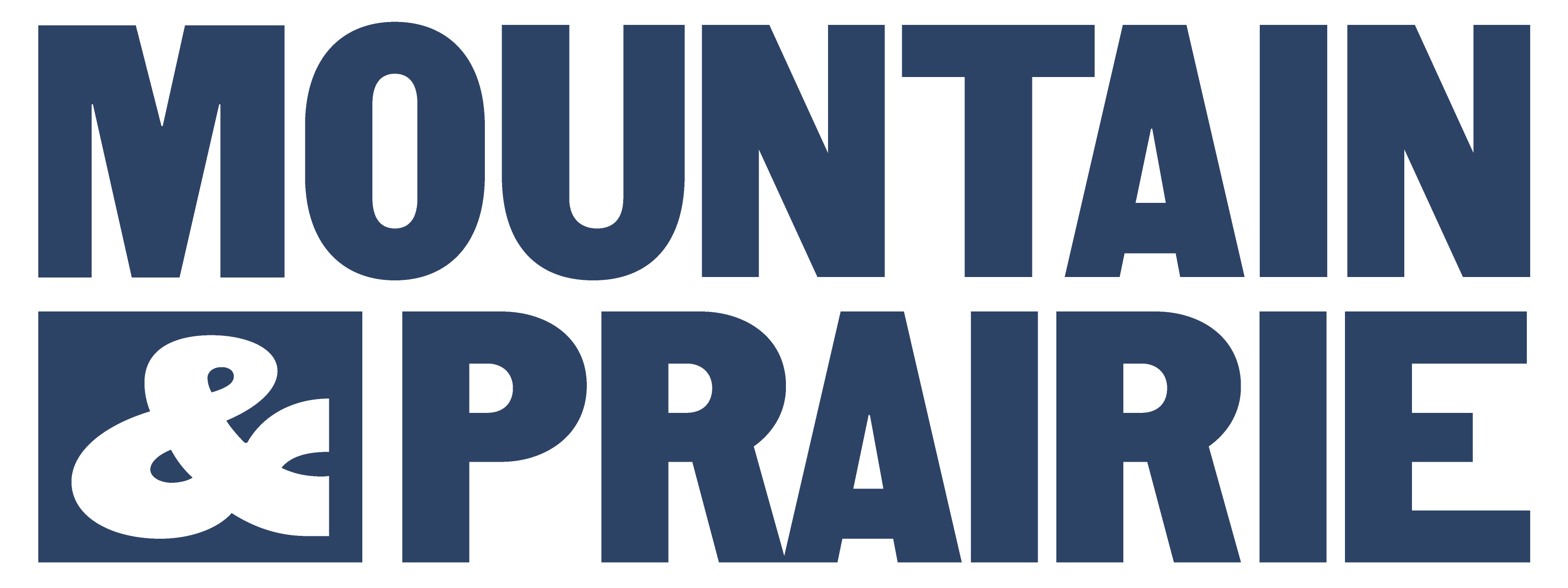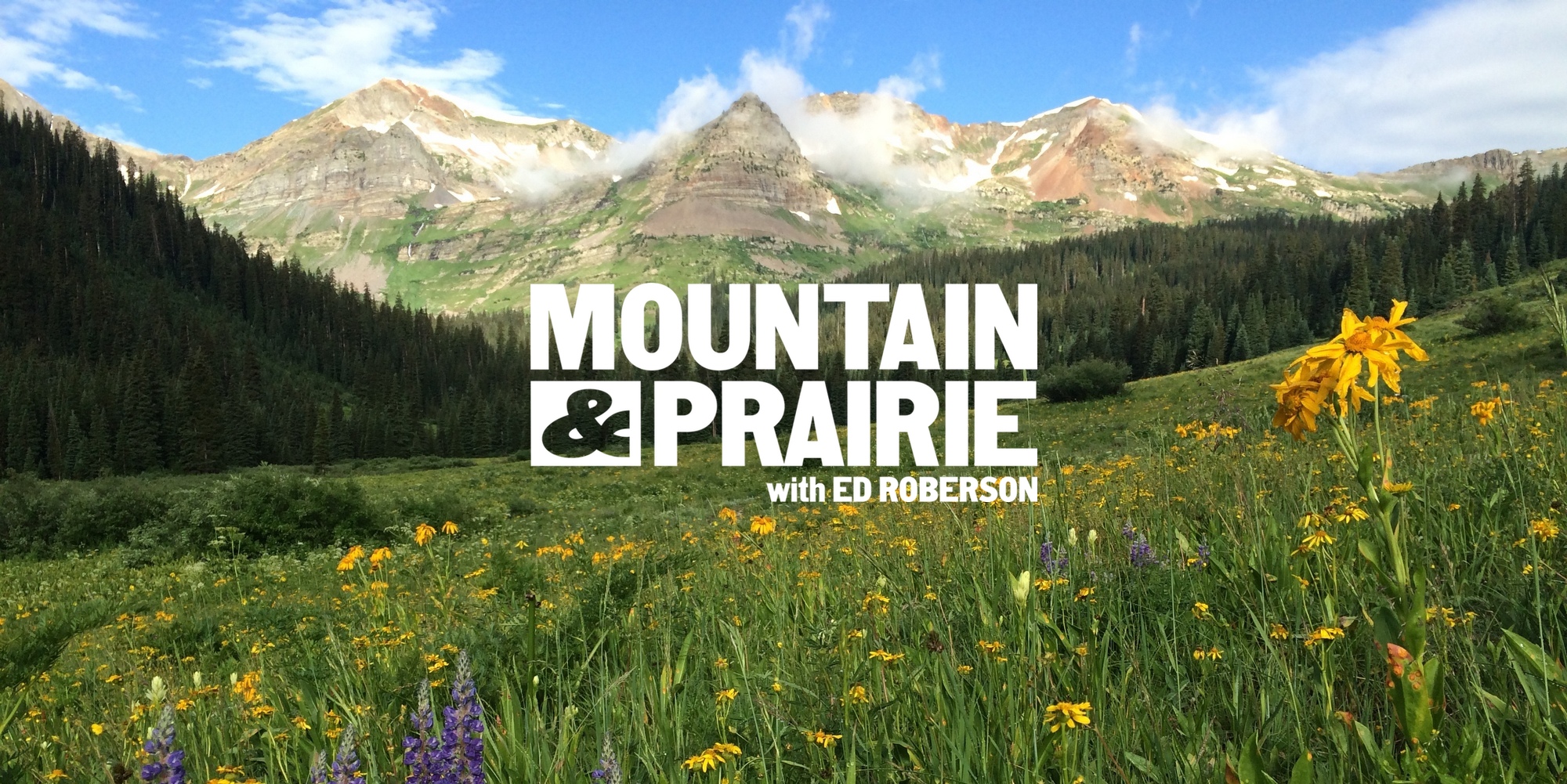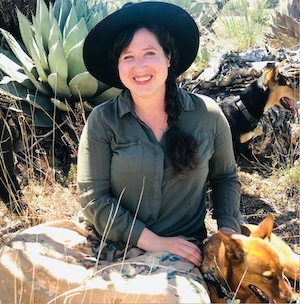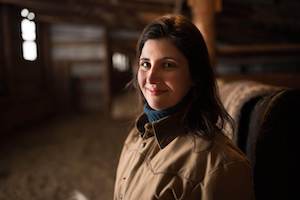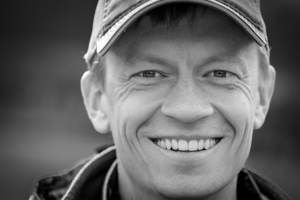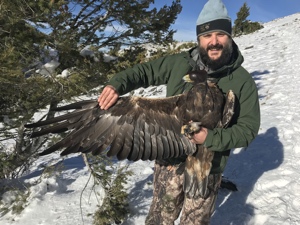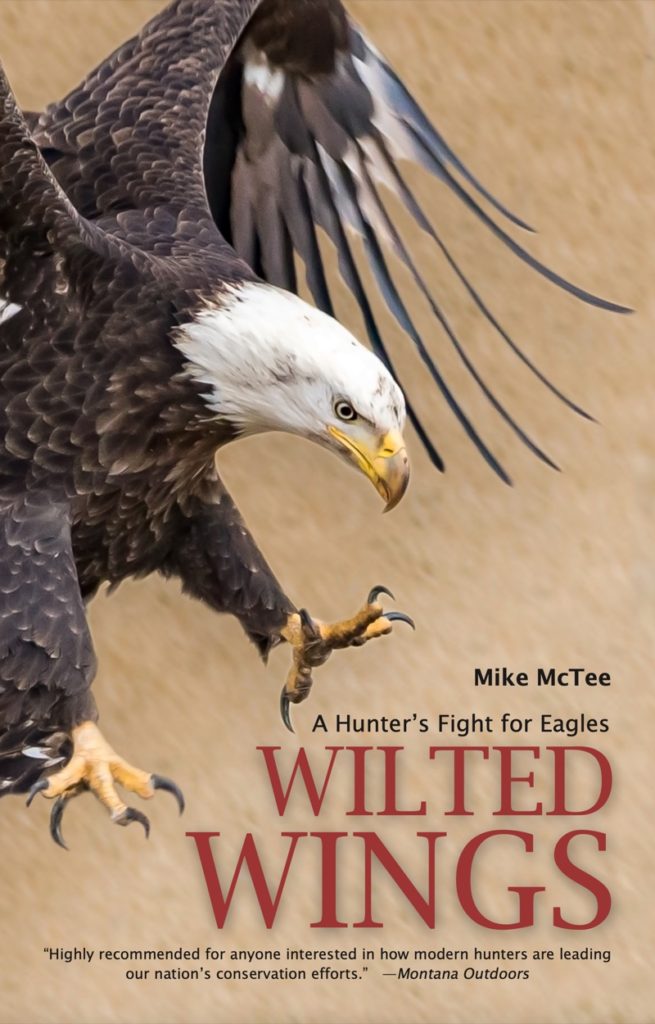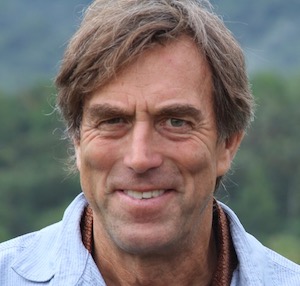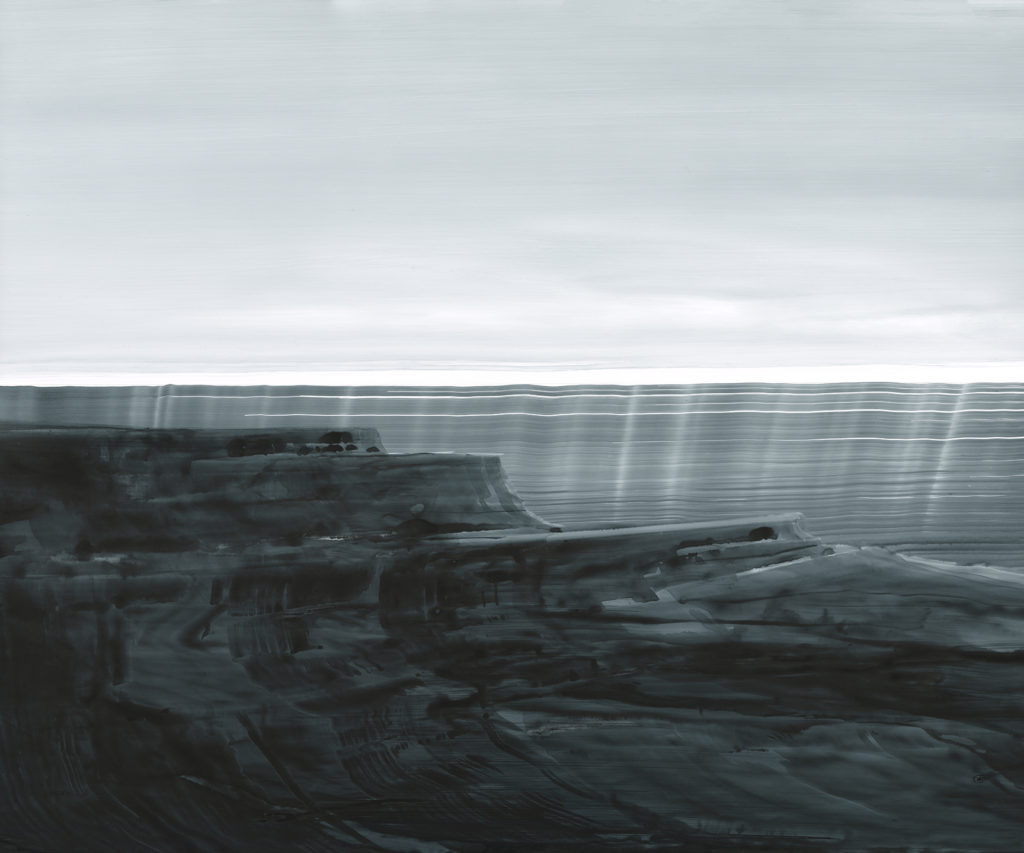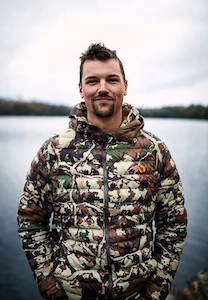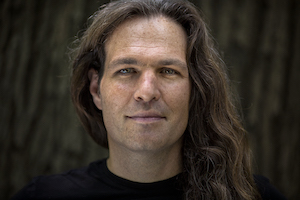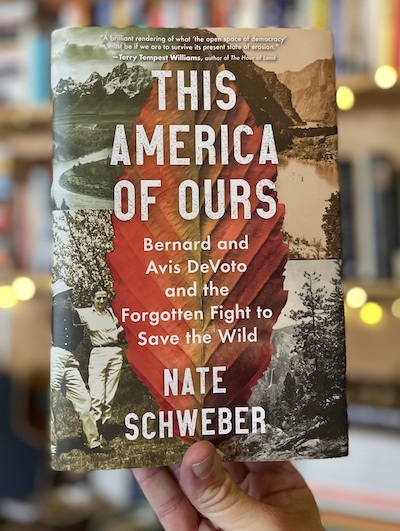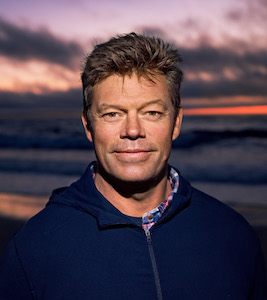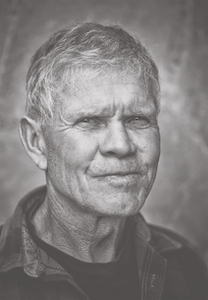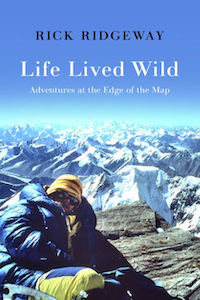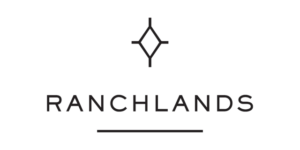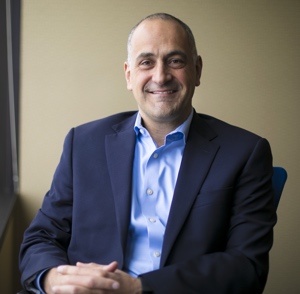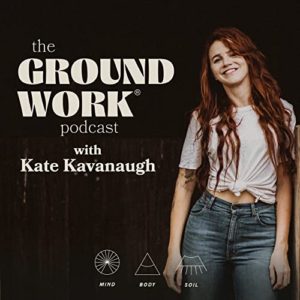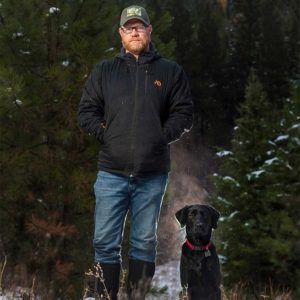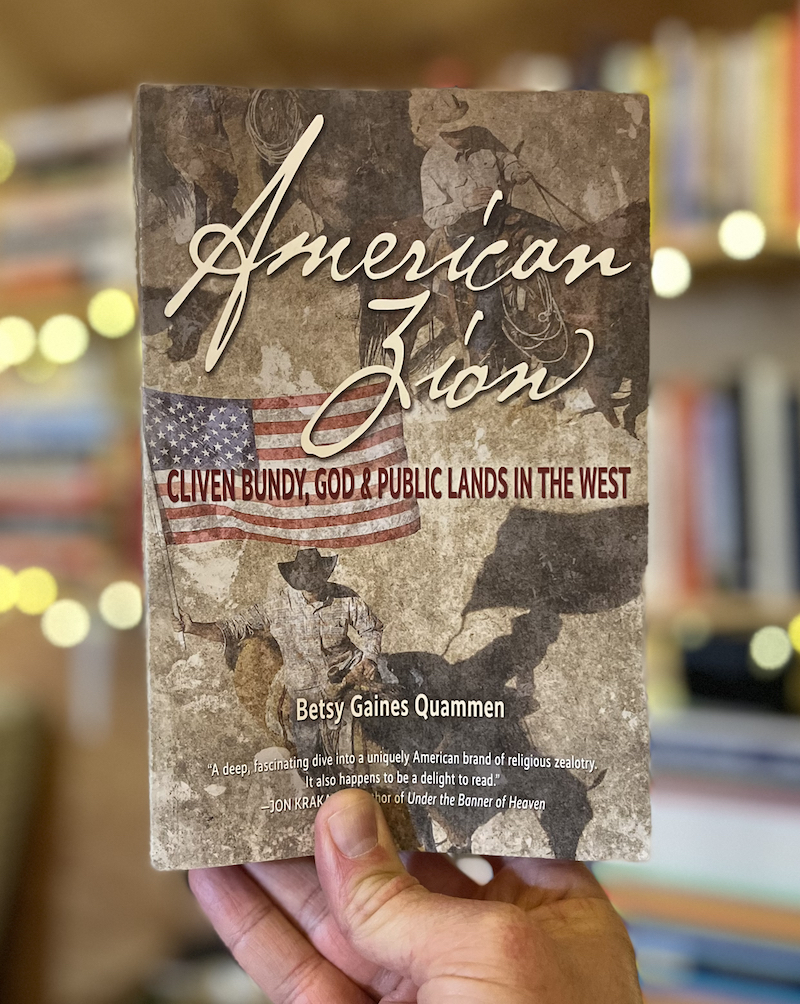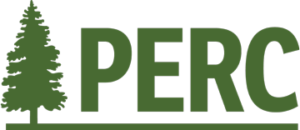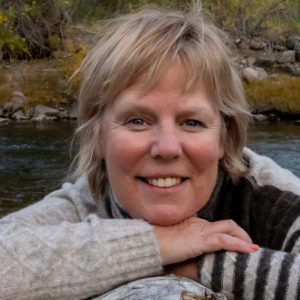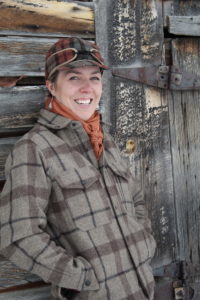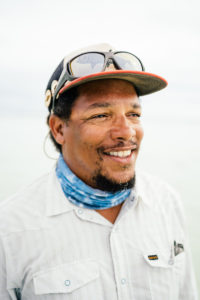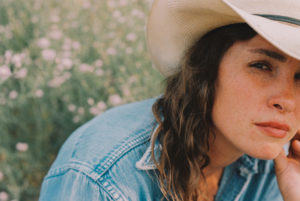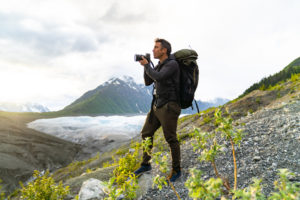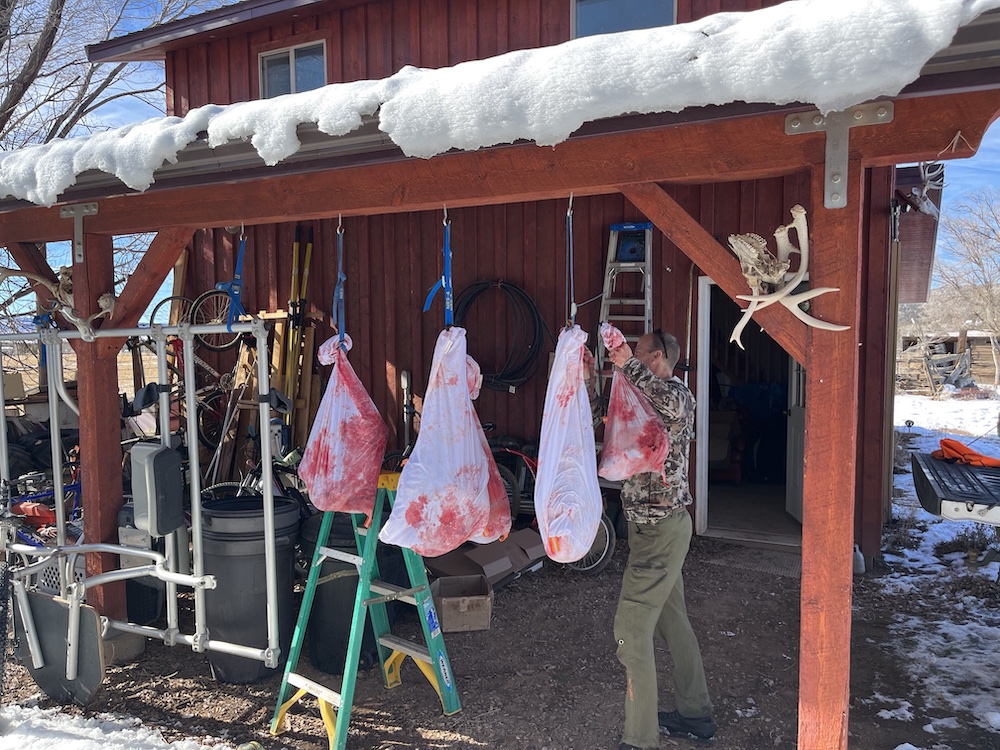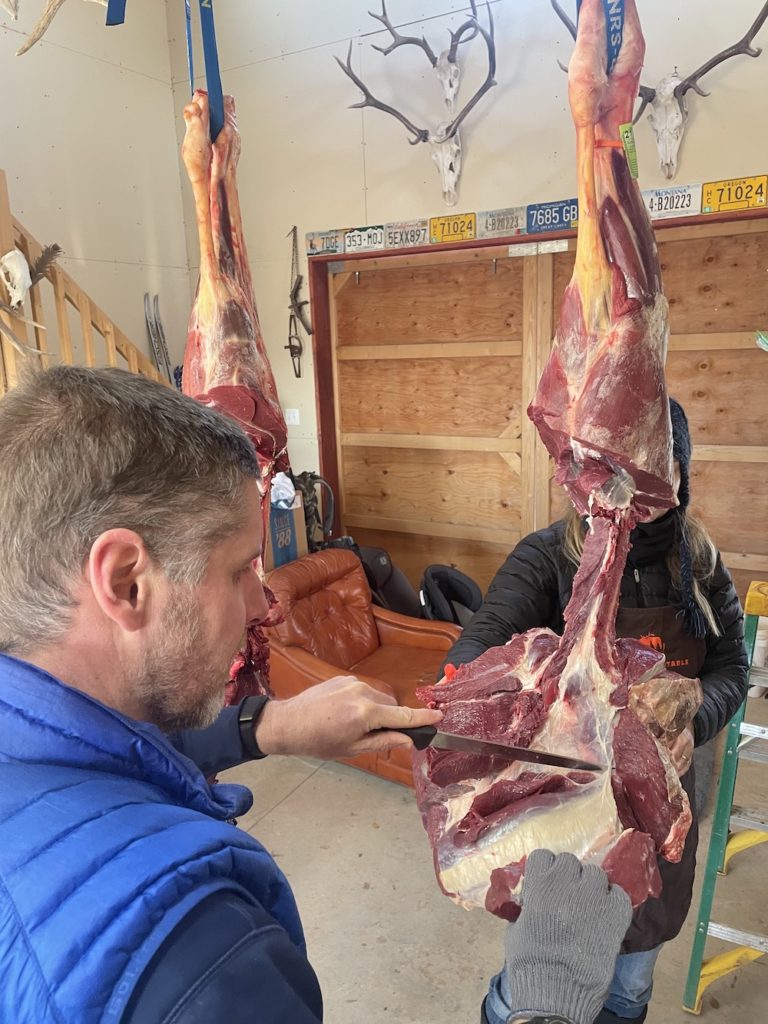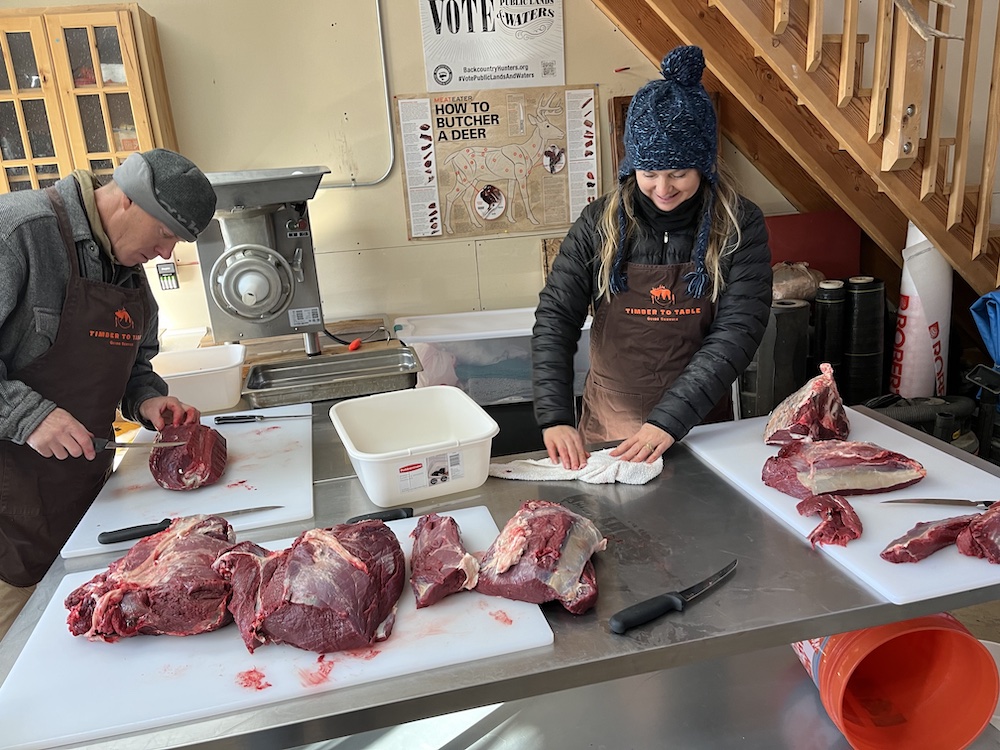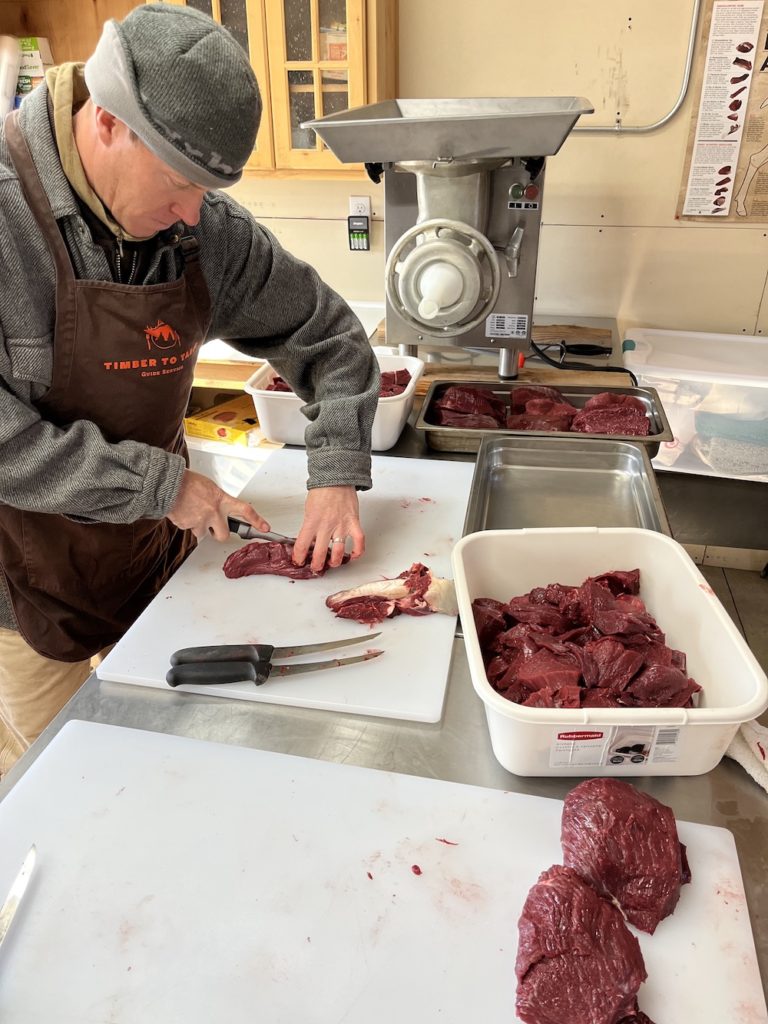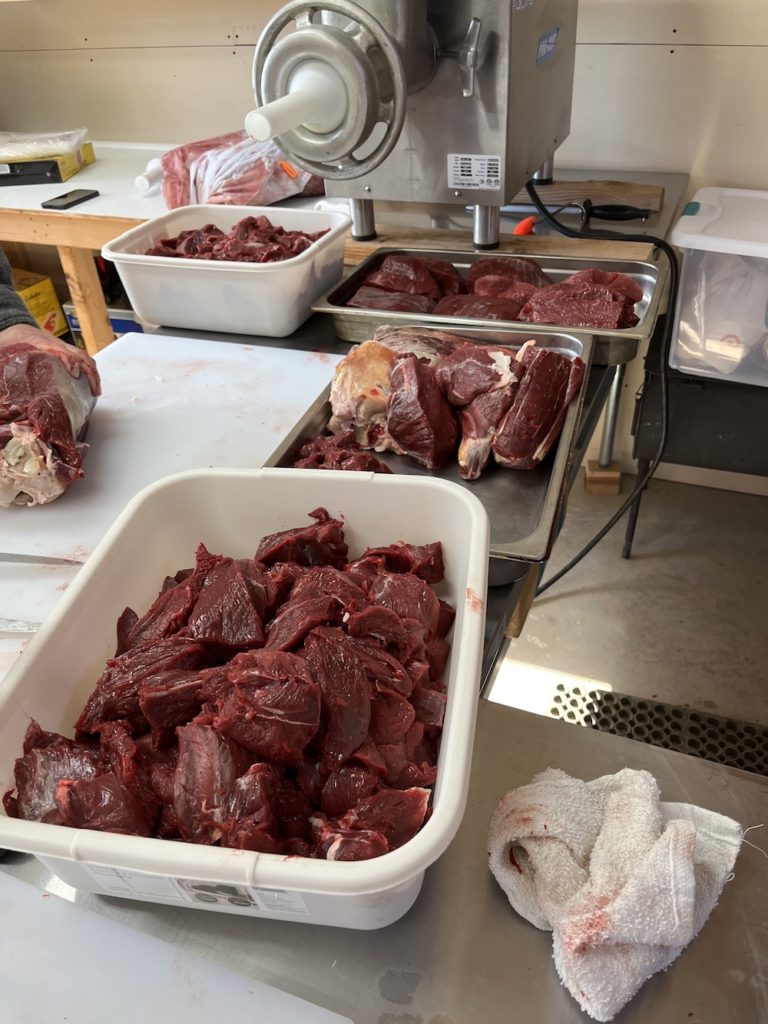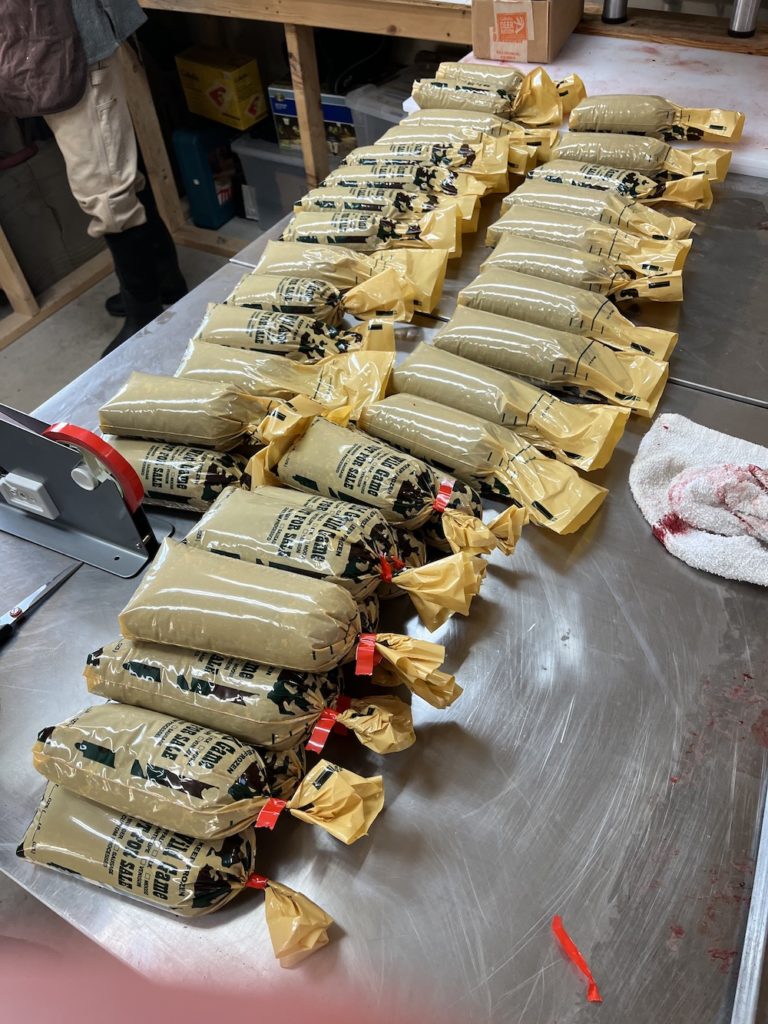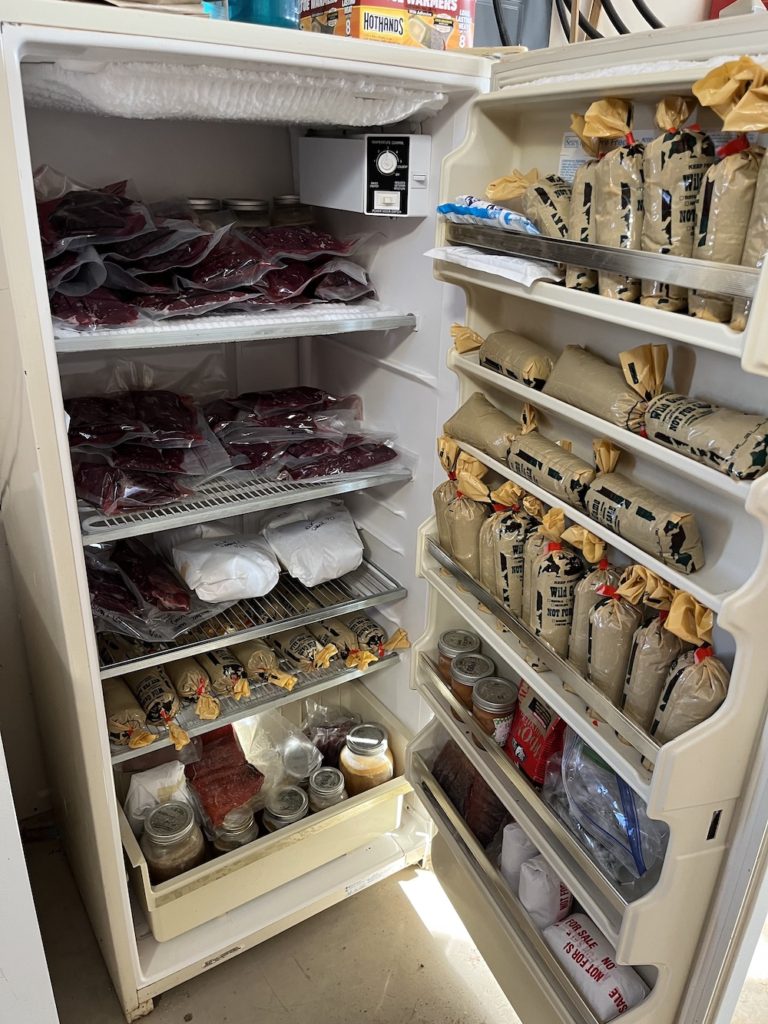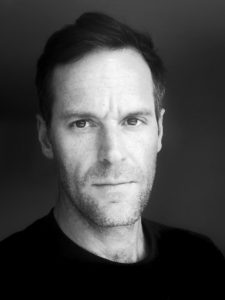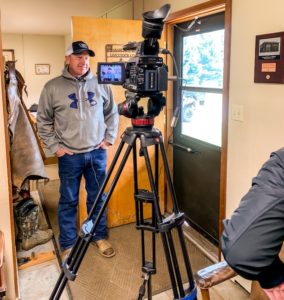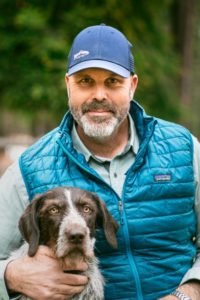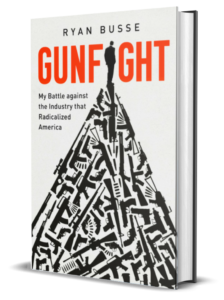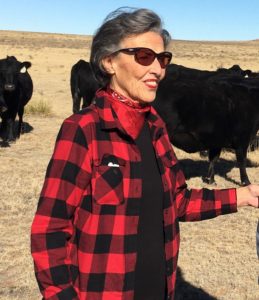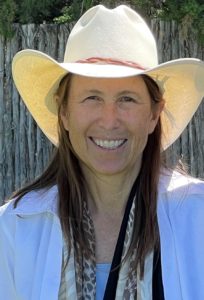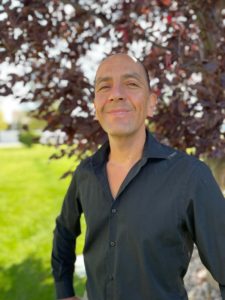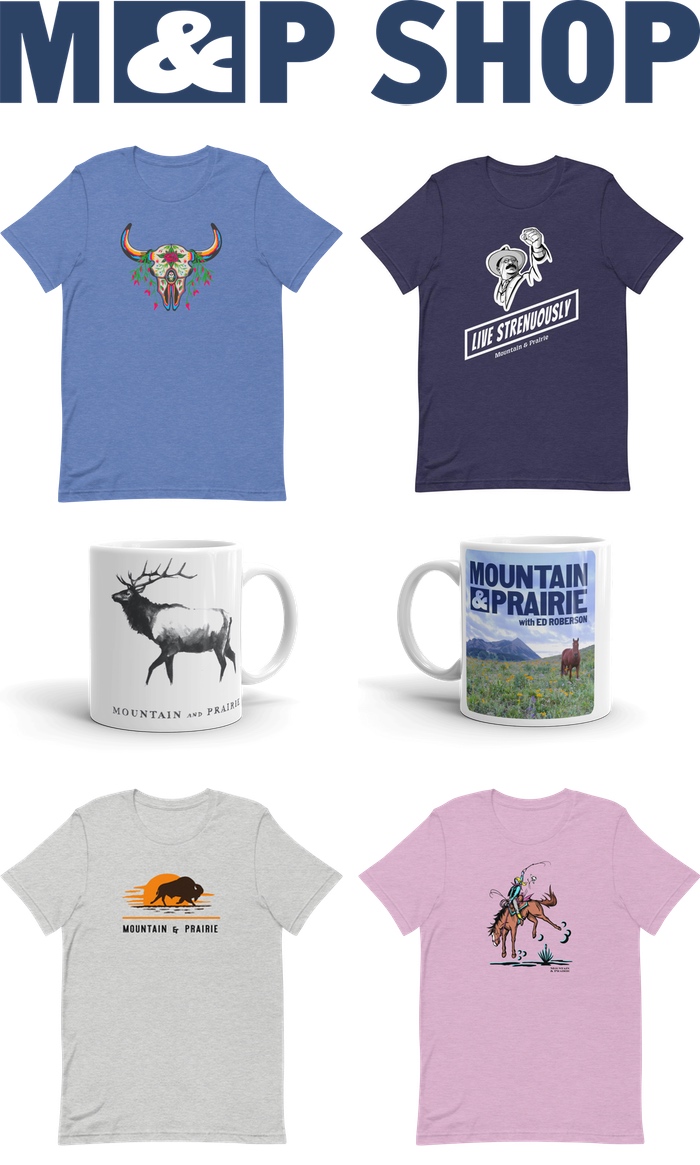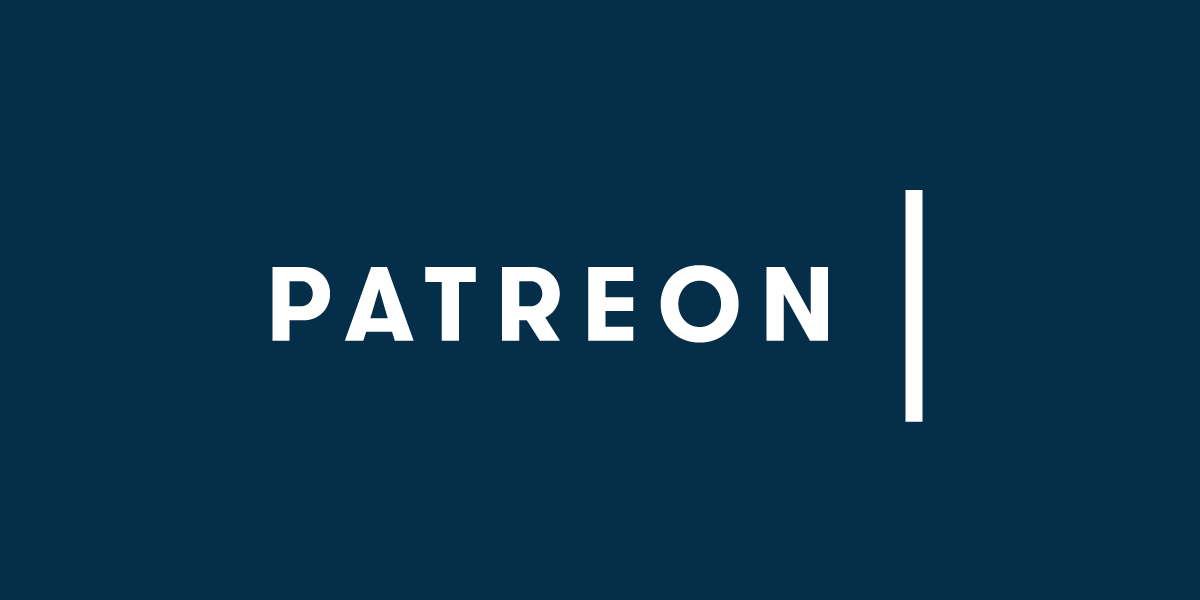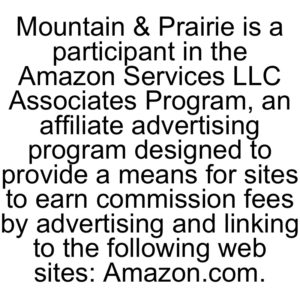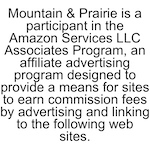Francesca Claverie – A Borderlands Conservation Success Story
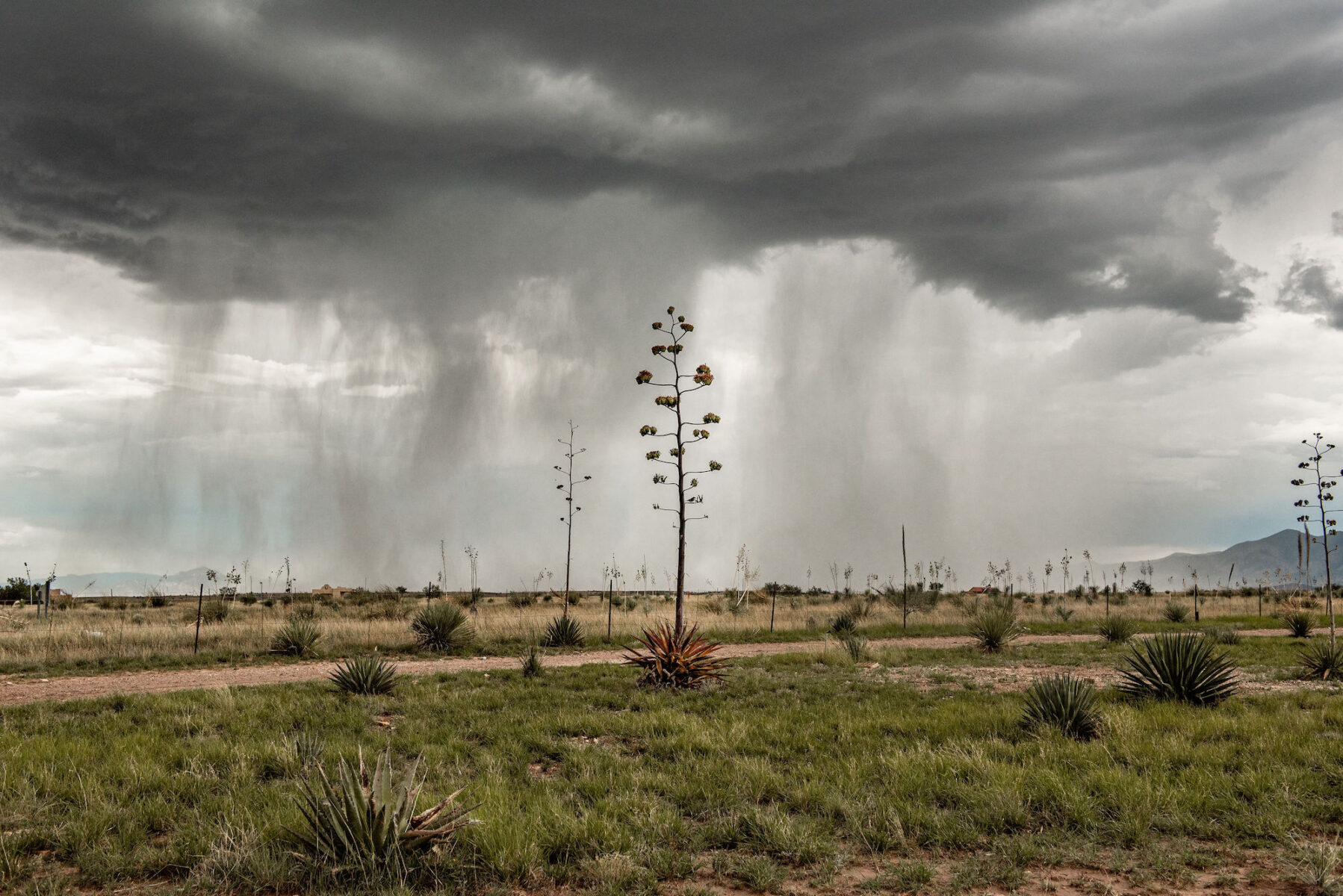
Francesca Claverie is the Native Plant Program Manager at the Borderlands Restoration Network. Based in the southern Arizona town of Patagonia, the Borderlands Restoration Network’s mission is “to grow a restorative economy by rebuilding healthy ecosystems, restoring habitat for plants and wildlife, and reconnecting our border communities to the land through shared learning.” Through binational partnerships and community-led innovation, Francesca and her team are making progress toward solving many border-specific conservation challenges– challenges that are often not very well known to those of us living far from the border.
We could easily spend five or six hours discussing Francesca’s various conservation projects, but for this hour-long conversation, we zoned in one particularly innovative project that spans the US-Mexico border called Bacanora for Bats: Binational Conservation and Sustainable Agave Spirits. The project is focused on conserving agave plants– plants that are a critical food source for specific migrating bat populations and are simultaneously under a great deal of pressure because of the booming tequila and Bacanora industries. As you’ll hear her explain, Francesca and her team have implemented a one-of-a-kind system that allows for continued economic prosperity from agave production, but not at the expense of the bat populations. It’s a perfect example of a community-driven, win-win conservation solution.
A little more than two years ago, the project was awarded the Salazar Center’s Connectivity Challenge prize– a $100,000 award that Francesca and her binational team have used to implement this innovative conservation solution. So we obviously talk about how those funds have been put to use and some of the successes that have resulted from the prize. We also discuss some of the unexpected opportunities and challenges that have arisen during the project, and how changing political administrations on both sides of the border have affected her work. We go into great detail about bats, the ecology of agave plants, and specific challenges that come with working across borders. Francesca also has a fascinating personal and professional trajectory, so we talk about her childhood spent on the California-Mexico border and how she decided to pursue conservation as a career. She also offers up some excellent book recommendations and some wise parting words.
I was so inspired by Francesca and her work along the border, and I believe there are lessons in this conversation that can be applied by anyone working in the conservation sector. Thanks to Francesca for taking the time to chat, and thank you for listening.
Header photo by Kayla Lewis, headshot courtesy of Francesca Claverie
LISTEN & DOWNLOAD:
Download on Apple Podcasts
Download on Spotify
Download on Google Podcasts
Download on Overcast
—
EPISODE PARTNER:
This episode is brought to you in partnership with Colorado State University’s Salazar Center for North American Conservation.
This conversation scratches the surface of some of the topics that will be covered in greater depth at the Salazar Center’s fourth annual International Symposium on Conservation Impact, which will be held next week – the week of October 3, 2022 – in Denver and online. The symposium will explore how conservation efforts that span boundaries like the US-Mexico border can drive binational cooperation as well as better outcomes for people and nature. An all-star lineup of conservation researchers, practitioners, policymakers, and funders will highlight opportunities for and barriers to conservation in the border region, climate change impacts, the role of Indigenous leadership, and learnings from the region’s distinct history and biogeography.
Listeners can learn more at salazarcenter.colostate.edu and receive $25 off symposium registration with the code “25OffReg”.
RESOURCES:
Topics Discussed:
- 4:30 – Overview of the Borderlands Restoration Network
- 9:30 – Application to the Connectivity Challenge
- 11:40 – Agave, Bats, and Pollination
- 20:40 – How the bat pollination issue came to Borderlands Restoration Network’s attention
- 27:00 – Certification program for Bacanora
- 36:20 – How the Connectivity Challenge funds have been invested
- 38:55 – Unexpected challenges and opportunities
- 41:20 – How different US administrations affect these border projects
- 47:20 – Francesca’s personal and professional background
- 53:45 – Other borderland projects that are showing great promise
- 57:30 – Favorite books
- 1:02:25 – Parting words
- 1:04:30 – Connect with the Borderlands Restoration Network
Information Referenced:
- Borderlands Restoration Network
- Salazar Center for North American Conservation
- Connectivity Challenge
- Borderlands Restoration Network Pitch Video
- Dr. Rod Pulliam
- Agave
- Lesser Long-nosed Bat
- Saguaro cactus
- Bat Conservation International
- Colectivo Sonora Silvestre
- Universidad de Sonora
- Sonoran election story
- Altar Valley
- Calexico, CA
- Sky Islands of Arizona
- Sky Island Alliance
- Watershed Management Group
- Tending the Wild by Kat Anderson
- Braiding Sweetgrass by Robin Wall Kimmerer
Enjoy this episode? Then you might like these too:
- Amber Smith – Creating Connection & Community
- Mike McTee & Vince Slabe – Win-Win Solutions in the Fight to Save Eagles
- Brian Yablonski – Action-Oriented Conservationist
- Liz Moore – For the Love of Montana
- Kate Mannix – A Legacy of Land Stewardship
- Shane Doyle – Reverence for the Past, Hope for the Future
- Sarah King – Collaborative Conservation in the American Southwest
- Mike Phillips – Audacious Goals, Relentless Action
Visit the podcast page for a full list of episodes where you can filter episodes by topic and guests’ vocations.
Amber Smith – Creating Connection & Community
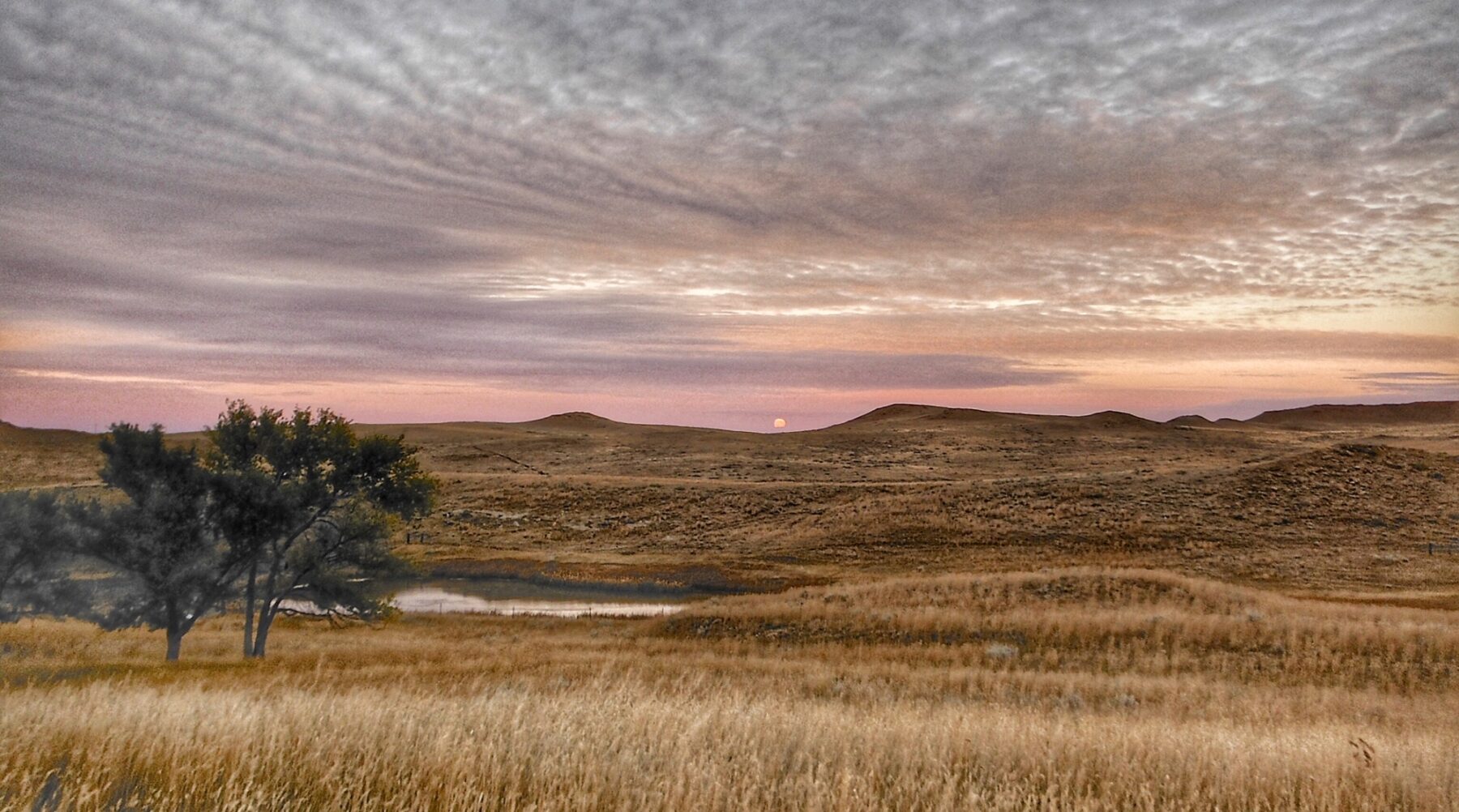
Amber Smith is a Montana-based rancher and the Executive Director of Women in Ranching, a nonprofit organization whose mission is to hold brave space, support courageous action, and champion rural women’s leadership on the land. Offering a blend of in-person and virtual events, Women in Ranching has filled a unique niche across a wide range of rural communities in the West and beyond. From skill-building workshops to virtual kitchen table chats to multi-day on-the-ground experiences, Women in Ranching offers a much-needed, supportive network for women whose families and livelihoods are closely tied to agriculture and the land.
Amber was born and raised in Illinois, and she met her now-husband Trevor while working at a ranch in Colorado. They fell in love, got married, and today Amber and Trevor have two young children and a successful ranching business in eastern Montana. As you’ll hear in our conversation, when Amber was first introduced to Women in Ranching several years ago, she felt an immediate connection to the organization’s work– the connection was so strong that she eventually took the helm as the organization’s leader. And earlier this year, after several years under the umbrella of Western Landowners Alliance, Women in Ranching became its own freestanding nonprofit organization- an exciting next step for the organization’s continued growth and evolution.
Amber and I met more than five years ago on the Antelope Springs Ranch, the ranch that she and Trevor continue to steward to this day. I was immediately impressed with her energy, dedication to her community, and ability to juggle many competing priorities with grace and humor. I’ve been following her leadership with Women in Ranching for many years now, and it was a real pleasure to have the opportunity to reconnect and have such an inspiring conversation. We talked about the purpose and mission of Women in Ranching and how the organization has evolved in unexpected ways. We discuss some of the specific challenges facing women ranchers and how Women in Ranching works to address those needs. We discussed the pandemic’s effect on ranching communities, how Amber tries to find balance in her life, how she has been positively impacted by the organization, some specific success stories, her favorite books, and much more. Be sure to check out the episode notes for a complete list of everything we discussed.
To learn more about Women in Ranching and to support its work, head over to www.womeninranching.co. Huge thanks to Amber for all of her hard work, and thanks to you for listening. Hope you enjoy.
Header photograph courtesy of Grasslands LLC, Headshot courtesy of Amber Smith
—
Download on Apple Podcasts
—
Download on Spotify
—
Download on Google Podcasts
—
Download on Overcast
—
EPISODE NOTES
Topics Discussed:
- 4:00 – Amber describes Women in Ranching
- 17:30 – Amber talks about how her work with elders impacted how she approaches her work and life
- 22:30 – Amber discusses Women in Ranching and how its work was influenced by the pandemic
- 29:00 – Amber talks about who comes to the Confluence
- 30:30 – Amber discusses the current form of Women in Ranching
- 35:00 – Amber talks about the early stages of Women in Ranching becoming their own organization
- 40:00 – Amber explains her outlook on life balance and managing overwhelm
- 45:30 – Amber discusses how she learned to deal with a new kind of challenge in her work with Women in Ranching
- 56:00 – Amber talks about how the shift in Women in Ranching from WLA program to its own organization impacted her as a person
- 1:05:45 – How folks can get involved and support Women in Ranching
- 1:10:15 – Amber talks about books that have influenced her
- 1:14:30 – Amber’s parting words of wisdom
Information Referenced:
- Women in Ranching: Website & Instagram
- Quivira Coalition
- Regenerate conference
- Paicines Ranch
- TomKat Ranch
- Elaine Patarini
- Wendy Millet
- Steamboat Springs, CO
- Western Landowners Alliance
- Lesli Allison
- Holistic management
- Extension service
- Ranching for Profit
- Savory Institute
- Nicki Silvestri
- Robin Wall Kimmerer
- Tribe by Sebastian Junger
- Paul Farmer
- Andrea Malmberg
- Tony Malmberg
- Green Grass and the Spring by Tony Malmberg
- Pretty-shield: Medicine Woman of the Crows by Frank B. Linderman
- River House by Sarahlee Lawrence
- Rainshadow Organics
- Alzada, MT
- The Long Way Home: Journeys of a Chinese Montanan by Flora Wong
Enjoy this episode? Then you might like these too:
- Kate Mannix – A Legacy of Land Stewardship
- Riddy Arman – Artistic Authenticity
- Betsy Gaines Quammen – A Fascinating History of Public Lands in the West
- Matt Pierson – Finding New Solutions for Food Insecurity
- Shane Doyle – Reverence for the Past, Hope for the Future
- Antonia Malchik – Exploring Culture & Complexity
- Iris Gardner – Living with Intention
- Daniela Ibarra-Howell – Healing the Land Holistically
- Jessica Ilalaole – Creating Home in the High Desert
Visit the podcast page for a full list of episodes where you can filter episodes by topic and guests’ vocations.
Mike McTee & Vince Slabe – Win-Win Solutions in the Fight to Save Eagles
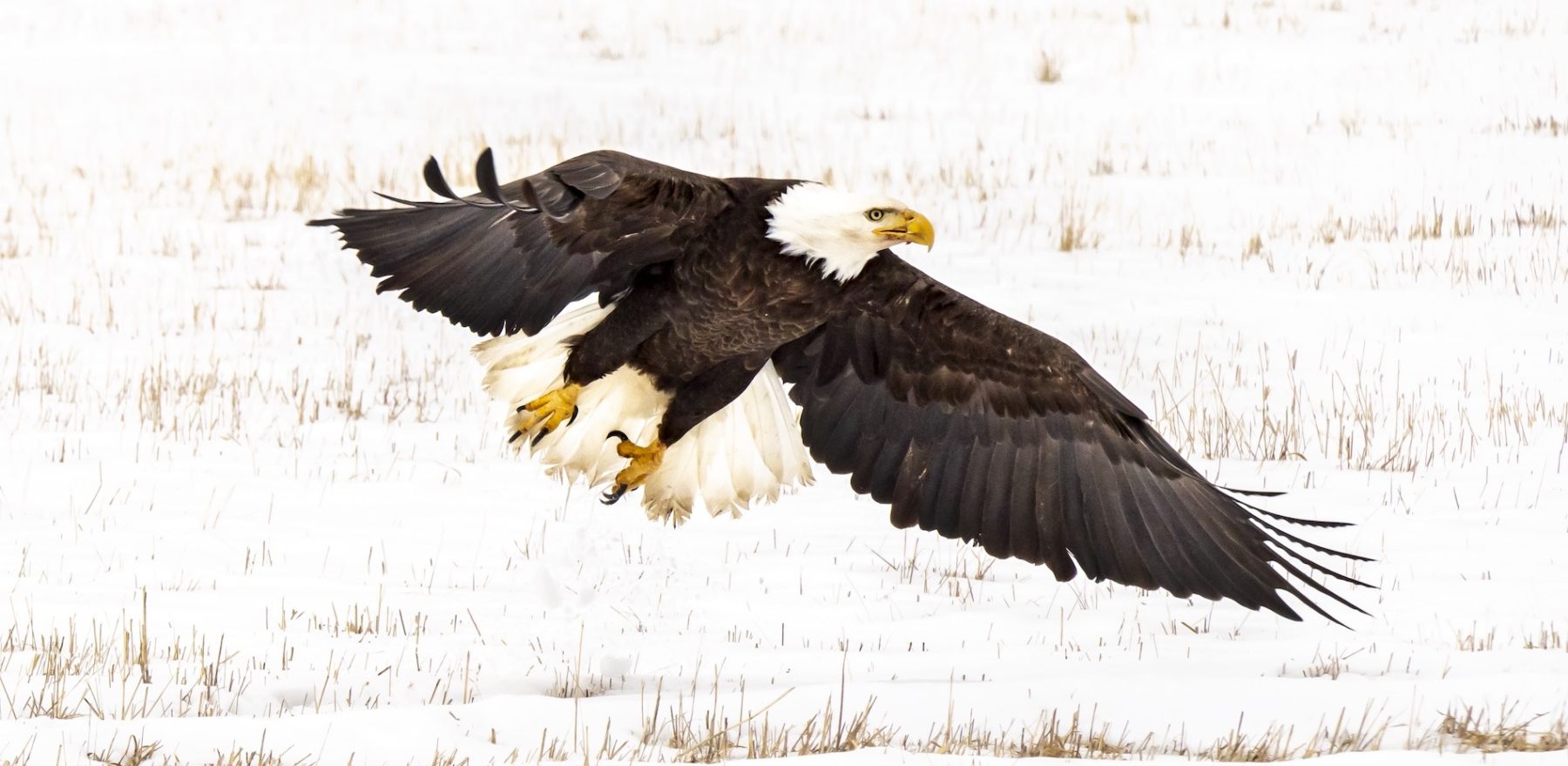
Mike McTee and Vince Slabe are Montana-based researchers who use cutting-edge science, writing, and educational programs to protect eagles in the American West and beyond. Both Mike and Vince are laser-focused on the surprisingly little-known issue of lead poisoning in bald and golden eagles, a problem caused mainly by eagles scavenging the remains of big game animals that have been hunted with lead-based ammunition. For example, a study conducted near Jackson Hole captured migrating golden eagles, tested them for lead, and found that 98% had elevated lead levels in their blood. Committed hunters themselves, Mike and Vince are devoting their professional energies toward finding sustainable, reasonable, and mutually beneficial solutions to this large-scale challenge.
Mike lives in Missoula and works as a researcher at the MPG Ranch, a large, privately owned ranch in the Bitterroot Valley that promotes conservation through restoration, research, education, and information sharing. He is also the author of the excellent new book Wilted Wings: A Hunter’s Fight for Eagles, which was recently published by Riverfeet Press. In it, Mike lays out the issue of lead poisoning in eagles in a compelling and easy-to-understand style, and he offers some clear and relatively simple paths to solving the problem. Mike has also written for The FlyFish Journal, Backcountry Journal, and Bugle, and he is a sought-after speaker on various hunting-related topics.
Vince is a Bozeman-based Research Wildlife Biologist with Conservation Science Global. He holds a Ph.D. from West Virginia University and recently published a wildly cited paper that details the implications of lead poisoning in eagles across North America. The paper, which was published in Science, describes how almost half of the bald and golden eagles sampled for the study had elevated levels of lead in their blood. More importantly, it explains exactly how increasing or decreasing levels of lead exposure will affect golden and bald eagle populations. We discussed the paper in our conversation, and I’ve also linked it to the episode notes.
This is a fascinating discussion that digs deep into a very specific issue– an issue that is largely under the radar here in the West. But if you zoom out from the details related to lead and eagles, and focus on the big picture, I think you’ll agree that Mike and Vince are shining examples of the many smart, driven, level-headed people here in the West who are working hard to find win-win solutions to conservation-related challenges. I thoroughly enjoyed this conversation, Mike’s new book, and Vince’s paper, and I hope you will too.
Be sure to check out the episode notes for a list of all the topics we discussed and links to everything. Thanks for listening!
Header photograph by Estelle Shuttleworth, Mike’s headshot by Jordan Hoffmaster
—
Download on Apple Podcasts
—
Download on Spotify
—
Download on Google Podcasts
—
Download on Overcast
—
This episode is brought to you by The Arthur M. Blank Family Foundation, which embodies the values-based approach to philanthropy and business of its Chairman Arthur M. Blank
EPISODE NOTES
Topics Discussed:
- 3:45 – Mike’s introduction
- 5:30 – Vince’s introduction
- 8:45 – Mike and Vince discuss the history of raptor-human interaction in the US over the last 200 years
- 15:15 Mike and Vince discuss the threat of lead poisoning as it pertains to raptors, noting the historical use of lead shot in waterfowl hunting
- 26:30 – Mike and Vince discuss their current work addressing the threat still posed to raptors by lead bullets for big game hunting
- 33:00 – Vince discusses ammunition demonstrations and the Arthur M. Blank Foundation’s advocacy for adopting non-lead ammunition through their private, guided hunting trips.
- 40:15 – Mike and Vince talk about why there has been resistance to widespread adoption of non-lead ammunition.
- 49:15 – Mike discusses managing the few situations where there is anger directed towards his work as he encourages hunters to switch ammunition
- 55:15 – Mike and Vince’s book recommendations
- 1:04:30 – Mike and Vince’s parting words of wisdom
Information Referenced:
- Arthur M. Blank Family Foundation
- Mike McTee
- Wilted Wings by Mike McTee
- Mike’s quarterly newsletter: Montana’s Nonlead Newsletter
- Vince Slabe
- Conservation Science Global
- MPG Ranch
- Bitterroot Valley
- Sapphire Mountains
- Selway-Bitterroot Wilderness
- Trap shooting
- Skeet shooting
- Rob Domenech
- Raptor View Research Institute
- Bald Eagle
- Golden Eagle
- “Demographic Implications of Lead Poisoning for Eagles Across North America” by Vince Slabe
- Silent Spring by Rachel Carson
- Peregrine Falcon
- Bald and Golden Eagle Protection Act
- Hawk Mountain
- Goshawk
- Grouse
- George Bird Grinnell
- Boone and Crockett Club
- Field and Stream
- Waterfowl
- Mallard
- Bismuth
- National Wildlife Federation
- Endangered Species Act
- Migratory Bird Treaty Act
- The Peregrine Fund
- Chris Parish
- Billings Gazette
- Missoulian
- Paradise Valley
- Montana Hunters for Eagle Conservation
- Hunters for Eagle Conservation
- Pittman-Robertson Wildlife Restoration Act
- Asics
- Montana Master Hunter Program
- One Montana
- Barnes Bullets
- Federal Premium Ammunition
- Nosler
- Hornady Manufacturing
- Shirley Basin
- North American Non-lead Partnership
- Leland Brown
- Oregon Zoo
- huntingwithnonlead.org
- Sporting Lead Free
- One Long River of Song by Brian Doyle
- Orion Magazine
- “Their Irrepressible Innocence” by Brian Doyle
- “Joyas Voladores” by Brian Doyle
- American Scholar
- Indian Creek Chronicles by Pete Fromm
- American Buffalo by Steven Rinella
- Scavenger’s Guide to Haute Cuisine by Steven Rinella
- There There by Tommy Orange
- Refuge by Terry Tempest Williams
- Jim Harrison
- Blood Meridian by Cormac McCarthy
- The Road by Cormac McCarthy
- Ernest Hemingway
- A Sand County Almanac by Aldo Leopold
- Henry David Thoreau
- Dr. Drew Lanham
- The Homeplace by Drew Lanham
- Black Faces, White Spaces by Carolyn Finney
- Beyond Fair Chase by Jim Posewitz
Enjoy this episode? Then you might like these too:
- Shane Doyle – Reverence for the Past, Hope for the Future
- Matt Pierson – Finding New Solutions for Food Insecurity
- Dr. Eric Arzubi – A New Approach to Solving the West’s Mental Health Crisis
- Liz Moore – For the Love of Montana
- Lesli Allison & Tuda Libby Crews – Durable Conservation in the West… and Beyond
- Dr. David Hewitt – The Science of Wildlife Conservation
- Jessica Wahl Turner – Outdoor Recreation & Rural Economies
Visit the podcast page for a full list of episodes where you can filter episodes by topic and guests’ vocations.
Peter Stark – Tales of Adventure, Exploration, & Epic Battles
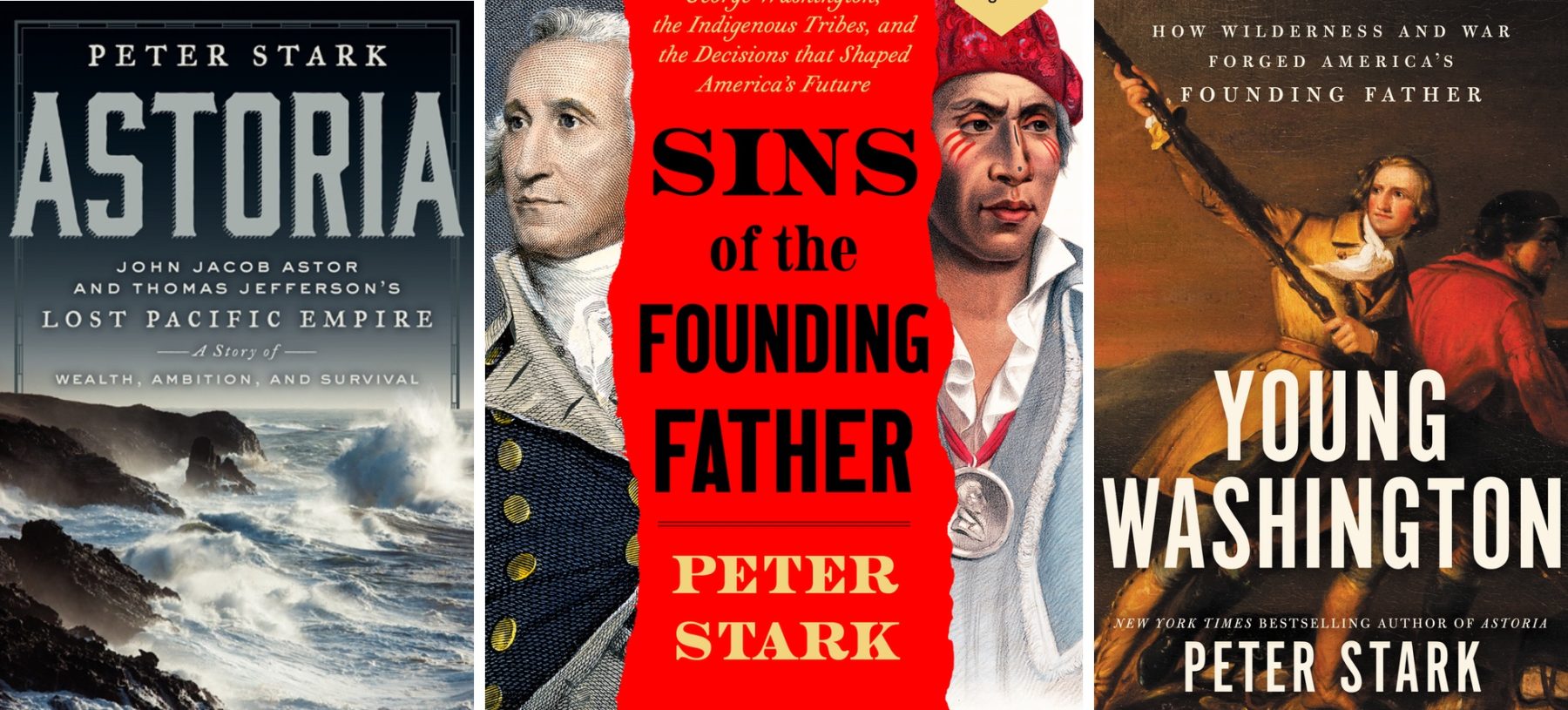
If you’re a long-time Mountain & Prairie listener, then I’m sure you’ve heard me reference the author and historian Peter Stark. He’s written some of the most memorable books I’ve ever read, including one of my all-time favorites about the early history of the western United States– a thrilling tale of adventure and exploration called Astoria: John Jacob Astor and Thomas Jefferson’s Lost Pacific Empire: A Story of Wealth, Ambition, and Survival. Peter has also spent years working as a correspondent for Outside and has written extensively for magazines including Smithsonian, Men’s Journal, The New Yorker, and more.
I’ve been a fan of Peter’s for more than twenty years, so when I was offered the chance to chat with him, I jumped at the opportunity. The focus of this conversation is Peter’s newest project, an e-and audiobook titled Sins of the Founding Father: George Washington, the Indigenous Tribes, and the Decisions that Shaped America’s Future. It’s an in-depth exploration of an often-overlooked battle in 1791 between American troops and Indigenous tribes– a violent fight that was decisively won by the Native Americans, and resulted in three times more American deaths than the Battle of Little Big Horn. The e-book also covers the life and personality of George Washington, America’s insatiable hunger for land, and the United States’ uncertain future in the years just after the Revolutionary War.
You might be wondering, what does George Washington have to do with the present-day American West? Back then, the term “American West” described a region now known as Ohio. Well, as you’ll hear in this conversation, this specific battle set the course of action for the next hundred+ years regarding the United States’ policies toward Indigenous tribes. The American’s crippling defeat led Washington and other leaders to ramp up their violent tactics against Native tribes and hold nothing back in their quest to claim as much western land as possible, as quickly as possible. It’s an eye-opening story that gave me a much better understanding of the ambition, egos, and economic realities that laid the foundation for the modern-day West.
Sins of the Founding Father is available exclusively at Scribd, and there’s a link in the episode notes that will give you a free 30-day trial. Scribd is a really cool app that I’ve enjoyed using for e and audiobooks, so go to Scribd.com to check it all out. Sins of the Founding Father is a great read and at only 70 pages, you can enjoy it in one sitting. I hope you’ll check it out, and I hope you enjoy this conversation.
All images courtesy of Peter Stark and Scribd
LISTEN
Download on Apple Podcasts
—
Download on Spotify
—
Download on Google Podcasts
—
Download on Overcast
EPISODE NOTES
Topics Discussed:
- 4:00 – Peter describes young George Washington
- 7:15 – Peter discusses Washington’s lust for land acquisition
- 19:30 – Peter talks about how Washington’s land speculation set the playbook for greedy land acquisition seen throughout US history
- 23:00 – Peter jumps ahead to Washington’s life in 1791
- 40:00 – Peter talks about writing history in an engaging way
- 46:00 – Peter discusses his own writing process
- 51:15 – Peter discusses the historical parallels between our recent sociopolitical turmoil and that of the late 1700s following the Battle with No Name – or -discusses the fallout of the Battle with No Name
- 1:01:15 – Peter’s book recommendations
Information Referenced:
- Sins of the Founding Father by Peter Stark
- Last Breath by Peter Stark
- Young Washington by Peter Stark
- Astoria by Peter Stark
- The French and Indian War
- Jamestown, VA
- Shenandoah Valley
- Piedmont
- Blue Ridge Mountain
- Robert Dinwiddie
- Lexington and Concord
- Patrick Henry
- Benjamin Franklin
- The Confederated Congress
- Shawnee Tribe
- Henry Knox
- Fort Washington
- Miami Tribe
- Kakionga
- Arthur St. Clair
- Gout
- The Battle with No Name (the Battle of the Wabash)
- Outside magazine
- Tim Colter
- Matthew Waxman
- Mark Trahant
- Shoshone Tribes
- Navajo Nation
- Tecumseh
- William Henry Harrison
- Thomas Jefferson
- Alexander Hamilton
- Edmond Randolph
- Mount Vernon
- The Northwest Ordinance of 1787 (Peter discusses Art. 3)
- The Annals of Congress from March 1792
- Potawatomi People
- John Dunn Hunter
- Memoirs of a Captivity Among the Indians of North America by John Dunn Hunter
- Scoouwa: James Smith’s Indian Captivity Narrative by James Smith
- The Snow Leopard by Peter Matthiessen
- Coming into the Country by John McPhee
- Winter in the Blood by James Welch
- Fools Crow by James Welch
- Crow Tribe
Enjoy this episode? Then you might like these too:
- Betsy Gaines Quammen – A Fascinating History of Public Lands in the West
- Nate Schweber – A Forgotten Chapter of American Conservation
- Hampton Sides, Part 3 – Tales from a Most Excellent Adventure
- Chris La Tray – Rediscovering His Past, Writing His Future
- William deBuys – Sage of the Southwest
- Hampton Sides – Live at the Aspen Institute
- Sara Dant – A Deep Dive Into the History of the West
Visit the podcast page for a full list of episodes where you can filter episodes by topic and guests’ vocations.
Frances Ashforth – Art, Water, and Wide-Open Spaces
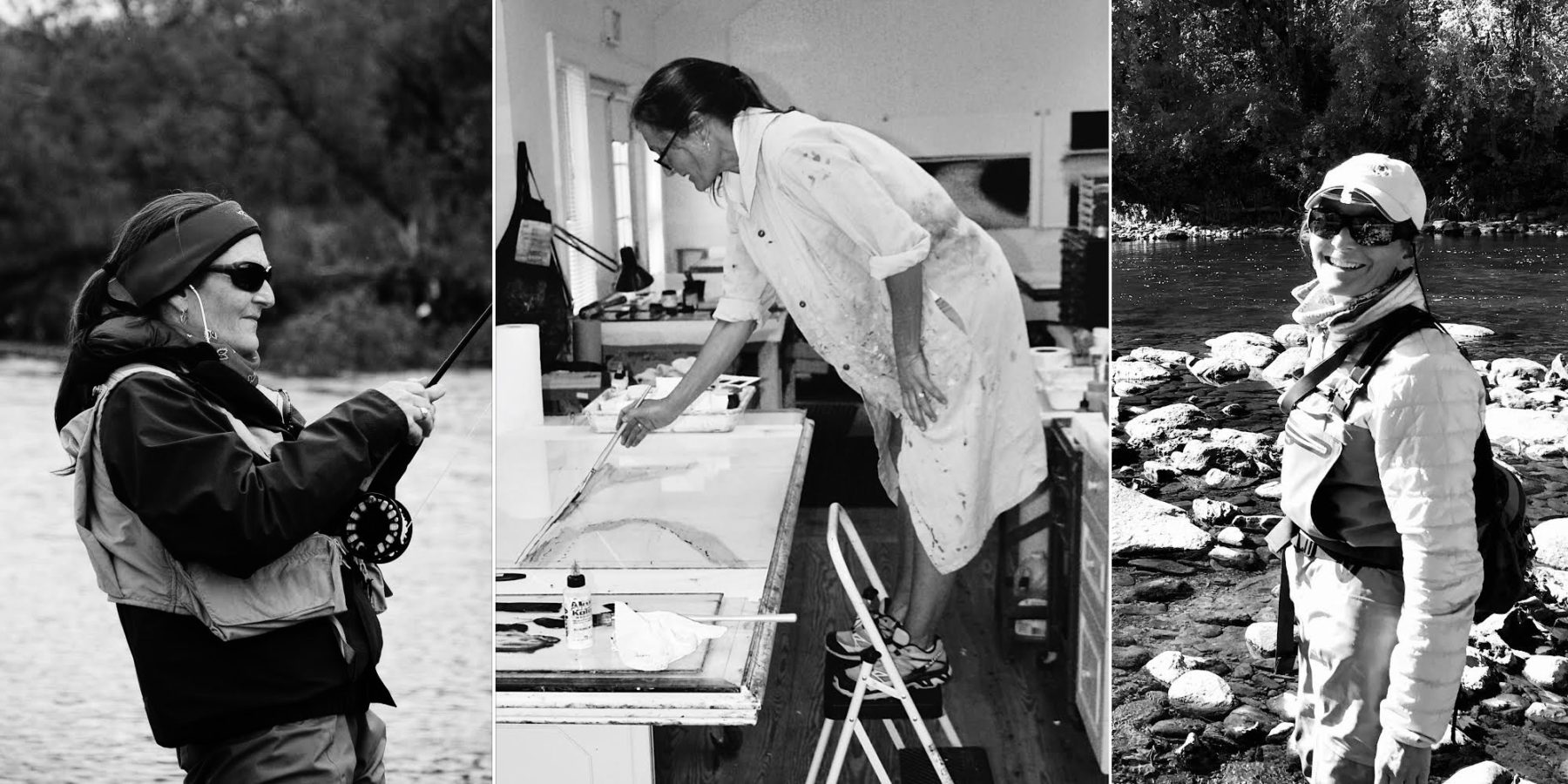
Frances B. Ashforth is an artist who specializes in drawing, printmaking, and painting. While much of her work is tied to the landscapes and rivers of the American West, she is also well known for her depictions of salt flats and coastal weather in more tropical locales. If there are two threads that bind all of Francie’s work, they are her deep reverence for natural landscapes and her desire to protect them. Over the years, she has collaborated with many highly regarded conservationists to combine writing and art– first, in her Water + Words project, and most recently, when she created all of the art for Dylan Tomine’s excellent new book Headwaters: The Adventures, Obsession and Evolution of a Fly Fisherman.
Francie was born and raised on the east coast, into a family of artists and athletes who cultivated her obsessions with art and perpetual physical activity. Even though a childhood accident confined her to a body brace for nearly six years, Francie always pursued her passions with full enthusiasm and vigor, working hard to keep a positive attitude in the face of such a serious physical setback. But her commitment to creativity never waivered– after studying art and architecture in college, she worked professionally as both an architectural illustrator and art director for more than a decade. Eventually, Francie left her day job to focus on her own artistic endeavors, as well as her all-important role as a mother to young children. Today, Francie’s work has been shown in venues from New York City to San Francisco, and she has a loyal following among galleries and collectors across the country.
Francie and I met through past podcast guest Dylan Tomine, when I had the pleasure of interviewing both of them at a live event in Brooklyn earlier this year. I was immediately impressed with Francies’ art, her obsession with fly fishing and books, and her long-term commitment to melding art and conservation. So I was so thrilled when she agreed to join me on the podcast, and we managed to cover a lot. We discussed her childhood and her family’s influence, and her early career that combined art and architecture. We talked about the specifics of her art, including her influences and her preferred mediums, and we talked in detail about her Water + Words project. We talk a lot about the book Headwaters, as well as her own love of books and reading. Francie offers a long list of excellent book recommendations, so be sure to check the episode notes for links to all of those and everything else we discuss.
Huge thanks to Francie for all she does for conservation and for taking the time to chat with me. Hope you enjoy!
All images courtesy of Frances Ashforth
LISTEN
Download on Apple Podcasts
—
Download on Spotify
—
Download on Google Podcasts
—
Download on Overcast
EPISODE NOTES
Topics Discussed:
- 3:40 – Francie discusses her childhood
- 5:30 – Francie talks about her family’s creative streak
- 8:30 – Francie discusses an accident that impacted her childhood
- 19:00 – Francie talks about her college education and early career in architecture
- 26:15 – Francie explains her transition from professional drafting to focusing on her own art
- 28:55 – Francie describes her art
- 32:30 – Francie talks about her Water and Word Project
- 37:15 – Francie explains her process of adapting existing words into new, complementary art
- 42:45 – Francie talks about how she became involved with Dylan Tomine, Headwaters, and Patagonia Books
- 49:15 – Francie discusses reading and the books that make up her personal “bibliography”
- 1:00:30 – Francie talks about what is giving her hope these days
Information Referenced:
- Frances B. Ashforth
- Francie on Instagram
- Water + Words
- Dylan’s past Headwaters event
- Connecticut River
- Printmaking
- Drafting
- Westport, CT
- Scoliosis
- Body brace
- C-curve scoliosis vs S-curve scoliosis
- Lexington Avenue, New York City
- Tree well
- Forest Gump
- Forest Gump loses his brace
- Fine Homebuilding Magazine
- PageMaker
- CAD system
- Ecotones
- Dylan Tomine
- Headwaters by Dylan Tomine
- Joe Whitworth
- Rachel Finn
- Spencer Beebe
- Christopher Shore
- Codex Foundation
- Malinda Chouinard
- Patagonia books
- Rick Ridgeway
- The Immense Journey by Loren Eiseley
- Jane Goodall
- Far North by Marcel Theroux
- Where the Crooked River Rises by Ellen Waterston
- Bend, OR
- Playa
- Summer Lake, OR
- Rancher, Farmer, Fisherman by Miriam Horn
- Refuge by Terry Tempest Williams
- Arctic Dreams by Barry Lopez
- Horizon by Barry Lopez
- Buffalo for the Broken Heart, Dan O’Brien
- Antelope Island
- Basin and Range, John McPhee
- Survival of the Bark Canoe, by John McPhee
- Oranges by John McPhee
- Draft No. 4 by John McPhee
- Encounters with the Archdruid by John McPhee
- The Red Pony by John Steinbeck
- Old Yeller by Fred Gipson
- Where the Sea Used to Be by Rick Bass
- Powell’s bookstore
- Fourth of July Creek by Smith Henderson
- Bryan Nash Gill
- Eric Arzubi
- Thirteen Moons by Charles Frazier
- The Big Sky by A.B. Guthrie, Jr.
- The Way West by A.B. Guthrie, Jr.
- Kentucky Straight by Chris Offutt
- The Good Brother by Chris Offutt
- Nate Schweber
Enjoy this episode? Then you might like these too:
- Dylan Tomine – Protecting What He Loves
- Heather Hansman, Part 2 – The Fascinating Story of Skiing’s Past, Present & Future
- Kate Mannix – A Legacy of Land Stewardship
- Kelsey Johnson – Chasing Her Artistic Ambitions
- Iris Gardner – Living with Intention
- Juanita Vero, Part 2 – A Deep Desire to Serve
- Dr. David Hewitt – The Science of Wildlife Conservation
- Riddy Arman – Artistic Authenticity
Visit the podcast page for a full list of episodes where you can filter episodes by topic and guests’ vocations.
10 Must-Read Books about the American West, with Mark Kenyon
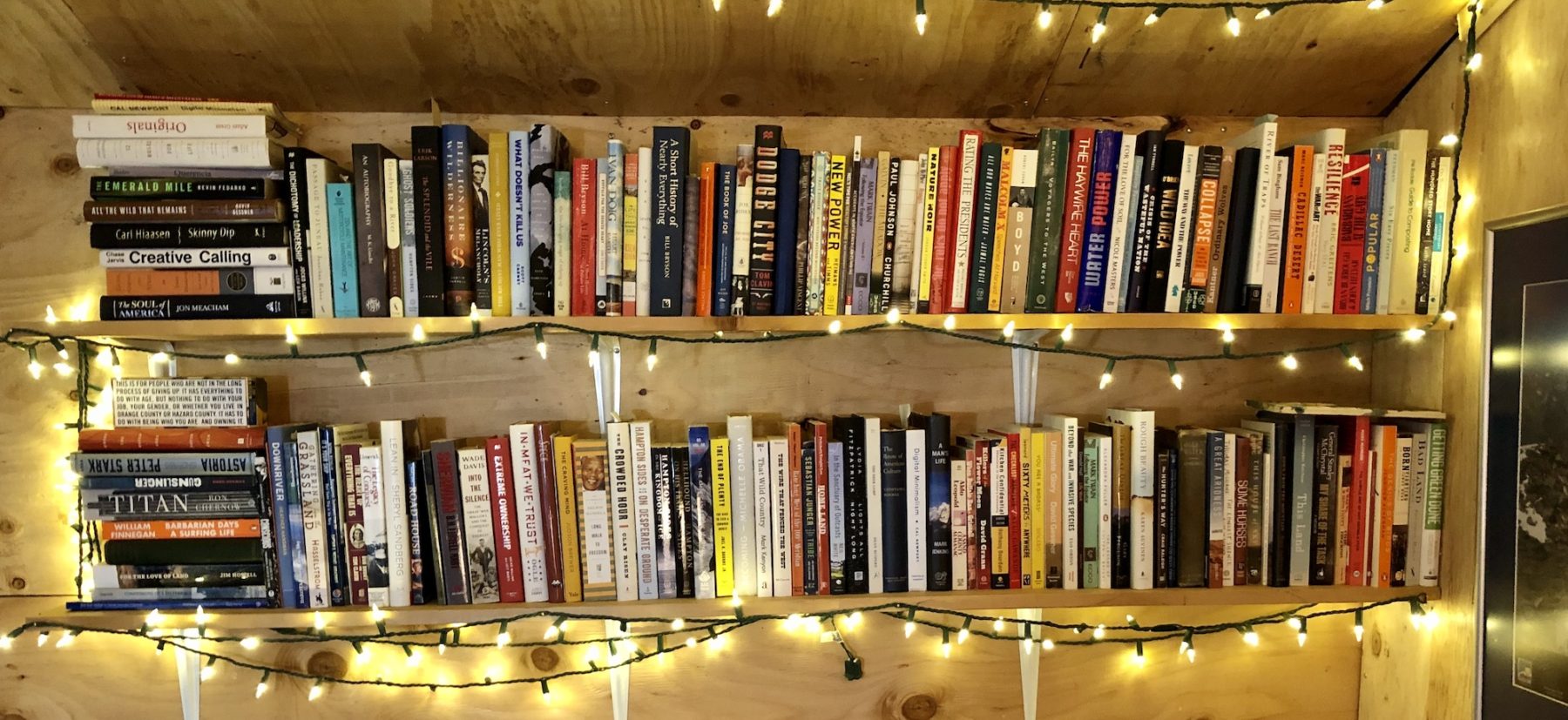
Mark Kenyon is an author, podcaster, conservationist, and member of the MeatEater crew. You probably know him from his excellent book That Wild Country: An Epic Journey Through the Past, Present, and Future of America’s Public Lands, the Wired to Hunt podcast, or his contributions to MeatEater’s Netflix show and other video productions. To learn more about Mark and his impressive personal and professional journey, I’d encourage you to go back to our first Mountain & Prairie conversation from a few years ago, which is linked in the episode notes.
In this episode, Mark and I are doing something a little different: We’re focusing exclusively on books. Earlier this year, Mark had me on his podcast to discuss our favorite books about conservation, and we both received excellent feedback on that episode. You can find a link to that discussion in the notes. So we decided to have another book conversation, this time focusing on some of our favorite books about the American West. Both Mark and I are voracious readers who love share a love of history, conservation, and adventure, so I’m always excited to hear Mark’s recommendations and thoughts on a wide range of titles.
The episode starts out with a brief catch-up on Mark’s summer adventures and his current work with MeatEater, and then we dive into the books. We each picked five of our all-time favorites, and, as you’d expect, we veer off into other tangentially related titles and subjects. This is an episode where you’ll definitely want to check out the episode notes, because there are links to dozens of books, authors, films, and other resources. Mark and I could’ve easily talked for three or four hours, but we had to keep the conversation relatively short because of tight schedules. However, we’re going to try and make these book conversations a regular occurrence on both of our podcasts– so if you like this format, stay tuned for more!
If you haven’t already, I’d encourage you to check out Mark’s podcast or follow him on social media– he’s a smart, thoughtful, hard-working guy that brings tons of value to the world of conservation and outdoor recreation. Please enjoy the episode, and if you do, please share it with a few friends.
Mark’s Five Recommendations
Desert Solitaire by Edward Abbey
Blood Meridian by Cormac McCarthy
The Course of Empire by Bernard DeVoto
Dreams of Eldorado by H.W. Brands
The Oregon Trail by Rinker Buck
Great Plains by Ian Frasier
Ed’s Five Recommendations
Blood and Thunder by Hampton Sides
The Emerald Mile by Kevin Fedarko
Leave It As It Is by David Gessner
Bad Land by Jonathan Rabin
American Zion by Betsy Gaines Quammen
—
Headshot courtesy of Mark Kenyon
—
Download on Apple Podcasts
—
Download on Spotify
—
Download on Google Podcasts
—
Download on Overcast
EPISODE NOTES
Topics Discussed:
- 4:00 – Mark talks about his summer with his family
- 11:30 – Mark discusses his plans for Meat Eater in the fall
- 13:15 – Mark talks about the incredible experiences that constitute his job
- 14:30 – Mark and Ed discuss their five favorite American West conservation books (see their lists below) starting with Desert Solitaire
- 27:30 – Blood and Thunder
- 33:15 – Empire of the Summer Moon
- 34:45 – Blood Meridian
- 36:15 – The Course of Empire and
- 39:15 – Dreams of Eldorado
- 45:15 – The Emerald Mile
- 51:00 – The Oregon Trail
- 54:45 – Leave It As It Is
- 59:00 – Great Plains
- 1:03:15 – Badlands
- 1:05:45 – American Zion
Information Referenced:
- That Wild Country by Mark Kenyon
- MeatEater
- Ed and Mark on Wired to Hunt
- Mark’s first appearance on Mountain & Prairie
- Jocko energy drink
- Sculpin
- Cutthroat Trout
- Nymph
- Dry fly
- Mending the line
- Riffle
- Rainbow Trout
- Largemouth Bass
- Spin reel fishing vs fly fishing
- Steve Rinella
- Janis Putelis
- Pronghorn
- Undaunted Courage by Stephen E. Ambrose
- Canyonlands National Park
- Arches National Park
- Glen Canyon
- Sierra Nevada Mountains
- All the Wild That Remains by David Gessner
- Edward Abbey
- Wallace Stegner
- The Godfather
- Yvon Chouinard
- John C. Frémont
- James Henry Carleton
- Navajo
- Empire of the Summer Moon by S.C. Gwynne
- Comanche
- Quanah Parker
- The Overstory by Richard Powers
- Across the Wide Missouri by Bernard DeVoto
- Year of Decision: 1846 by Bernard DeVoto
- Astoria by Peter Stark
- Santa Fe Trail
- Nate Schweber
- This America of Ours by Nate Schweber
- Kevin Fedarko (MnP)
- Outside Magazine
- Beyond the Hundredth Meridian by Wallace Stegner
- Downriver by Heather Hansman
- Heather Hansman
- Cadillac Desert by Marc Reisner
- Martin Litton
- Pete McBride
- Into the Canyon
- A Walk in the Woods by Bill Bryson
- Bears Ears National Monument
- Theodore Roosevelt: The Strenuous Life by Kathleen Dalton
- In Cold Blood by Truman Capote
- Betsy Gaines Quammen
- Malheur occupation
Enjoy this episode? Then you might like these too:
- Hampton Sides – Live at the Aspen Institute
- Betsy Gaines Quammen – A Fascinating History of Public Lands in the West
- David Gessner, Part 3 – A Confluence of Conservation Ideals
- Hal Herring – A Man of Words & Wild Places
- Heather Hansman – Demystifying Water in the West
- Sara Dant – A Deep Dive Into the History of the West
- Nate Schweber – A Forgotten Chapter of American Conservation
- Chris La Tray – Rediscovering His Past, Writing His Future
- Callan Wink – A New Voice for the New West
- Peter Heller – Chasing the Flow
- Chandra Brown – Fostering Creativity Through River Adventures
Visit the podcast page for a full list of episodes where you can filter episodes by topic and guests’ vocations.
Nate Schweber – A Forgotten Chapter of American Conservation
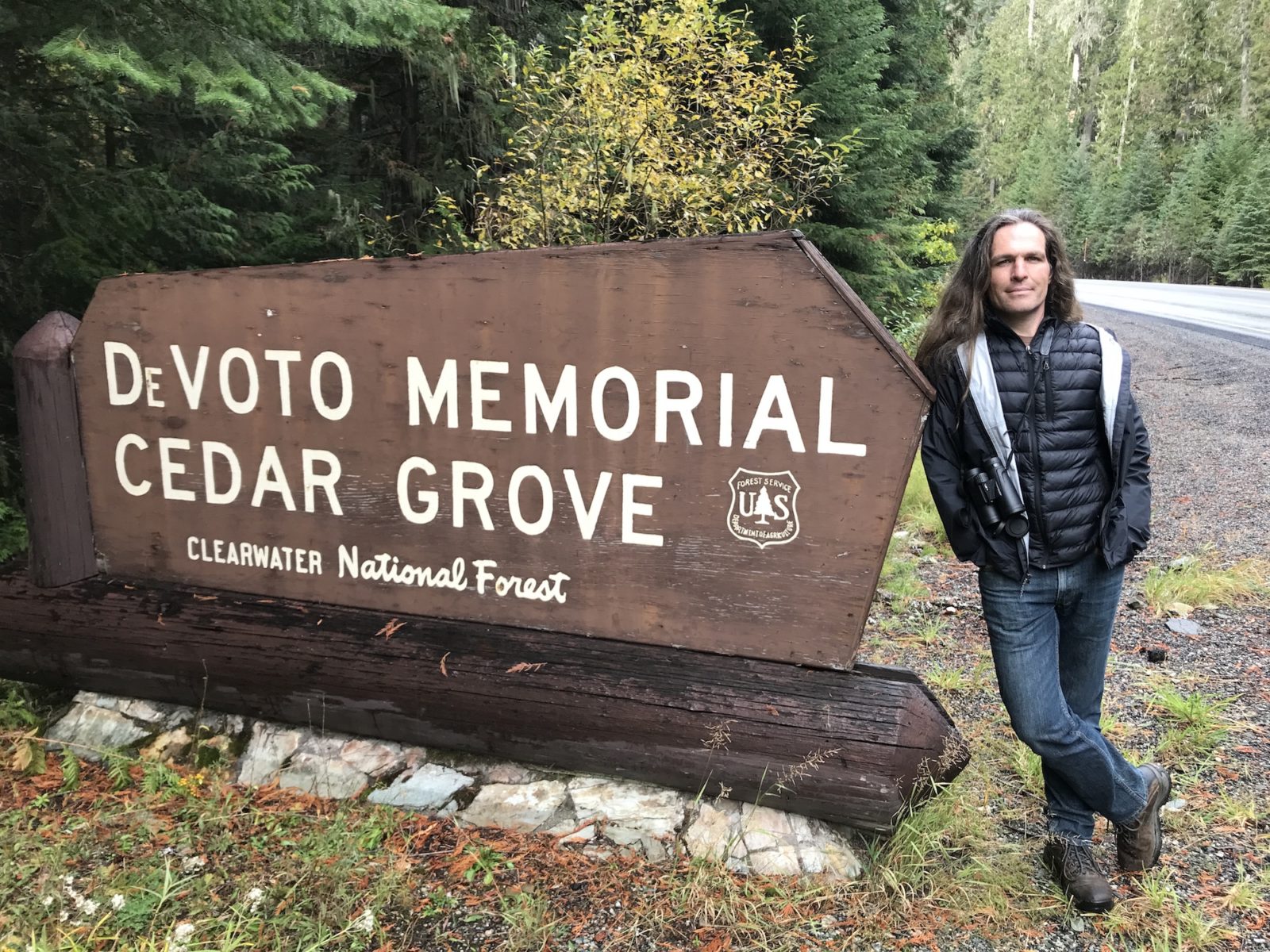
Nate Schweber is an award-winning journalist whose work has been featured in the New York Times, ProPublica, Anthony Bourdain’s Parts Unknown, and more. He’s also the author of the new book This America of Ours: Bernard and Avis DeVoto and the Forgotten Fight to Save the Wild, which was published in early July 2022. If you’re looking for an engaging and entertaining history book that highlights an often-overlooked era of conservation in the American West, then This America of Ours is your book– as you’ll hear in this conversation, I thoroughly enjoyed it.
Nate is a native Montanan who grew up in Missoula and headed east to New York City as a young man to pursue a career in journalism. Despite building a successful life and career in the big city, Nate never lost his love for Montana– so he made an effort to pursue more stories linked to the people and landscapes of the American West. As he studied and explored the West with his journalist’s eye, he discovered the writings of Bernard DeVoto and was quickly captivated. Fast forward to today, and he has written an amazing book about Bernard and his wife Avis, and how together they were one of the most important and effective forces for conservation in the early 20th century.
I knew I was going to enjoy This America of Ours, but it surpassed all of my lofty expectations. While I had definitely heard of the DeVotos, I had no idea of their influence and fearlessness, especially as they faced off against powerful forces that were attempting to sell off vast tracts of our public lands. Nate and I dig into all aspects of the DeVotos’ lives and historical importance, both individually and as a power couple. We talk about why Nate became so obsessed with the DeVotos, and how the DeVotos bridged the gap between Theodore and Franklin Roosevelt’s conservation legacies and the modern-day environmental movement. We discuss the parallels between the public lands battles of today and those of the early 20th century, and how reading history helps us to better understand and process today’s current events. Nate also offers up tons of excellent book recommendations, so be sure to check out the notes for a list of all the topics we discuss and links to everything.
A huge thanks to Nate for writing such an enlightening book and for taking the time to join me for a conversation. I hope you enjoy!
Header photo courtesy of Nate Schweber, headshot by Dave Sanders
—
Download on Apple Podcasts
—
Download on Spotify
—
Download on Google Podcasts
—
Download on Overcast
EPISODE NOTES
Topics Discussed:
- 4:00 – How the DeVotos captured Nate’s attention
- 8:45 – Nate describes the DeVotos’ personalities
- 13:30 – Nate explains how a flood galvanized Bernard DeVoto’s passionate conservation ethic
- 20:00 – The role road trips played in the DeVotos’ lives and work
- 27:00 – Nate discusses how learning the historical and legal backdrop for conservation colors his understanding of the challenges surrounding conservation and public lands now
- 32:00 – Nate introduces some of the tangles the DeVotos had with the FBI following accusations that the couple were communists
- 38:00 – Nate discusses an important friendship for the DeVotos: Julia Child
- 44:00 – Nate dives into his process of researching the DeVotos
- 49:45 – Nate talks about his career and how he ended up moving from Missoula, MT to New York City, and why he stays there now
- 55:07 – Ed and Nate discuss contradictions in each personality and how they make people more interesting
- 58:00 – Nate recommends some books
- 1:03:30 – Nate’s parting words of wisdom
Information Referenced:
- This America of Ours: Bernard DeVoto and the Forgotten Fight to Save the Wild by Nate Schweber
- Bernard DeVoto
- Avis DeVoto
- David Gessner
- This Land by Christopher Ketchum
- Harper’s Magazine
- Upper Peninsula, Mchigan
- Ogden, UT
- Homer
- Wasatch Range
- Harvard University
- University of Utah
- Cloudburst
- Pueblo, CO
- Escalante, UT
- Silver City, NM
- Clean Air Act
- Endangered Species Act
- The Wilderness Act
- Wild and Scenic Rivers Act
- Land and Water Conservation Fund
- “The West Against Itself,” by Bernard DeVoto
- Civilian Conservation Corps (CCC)
- The Garrison Dam
- Mandan, Hidatsa, and Arikara Nation
- Joseph Kinsey Howard
- Montana: High, Wide, and Handsome by Joseph Kinsey Howard
- Ansel Adams
- Wallace Stegner
- Chet Olson
- Fred Sanders
- Karl Marx
- J. Edgar Hoover
- Joseph McCarthy
- Thomas McGuane
- Jim Harrison
- Hunter S. Thompson
- Hell’s Angels: A Strange and Terrible Saga by Hunter S. Thompson
- Robert Frost
- Stanford University
- Ray Bradbury
- Julia Child
- Julie and Julia
- Deborah Rush
- Julia series on HBO
- Bebe Neuwirth
- Saturday Evening Post
- “Shall We Let Them Ruin Our National Parks,” article by Bernard Devoto
- Blacklisting
- Reader’s Digest
- Fortune
- Reno, NV
- Pat McCarran
- Laramie, WY
- Wyoming Stock Growers Association
- Weber State University
- DeVoto’s Nonfiction Western Trilogy
- The Year of the Decision: 1846 by Bernard DeVoto
- Across the Wide Missouri by Bernard DeVoto
- The Course of Empire by Bernard DeVoto
- DeVoto’s West: History, Conservation, and the Public Good by Bernard DeVoto
- The Western Paradox: A Conservation Reader by Bernard DeVoto
- Rightful Heritage by Douglas Brinkley
- James Welch
- Blackfeet
- Killing Custer by James Welsch
- The Overstory by Richard Powers
- The Hour of Land by Terry Tempest Williams
- Grizzly Years by Doug Peacock
- Hayduke Lives! By Edward Abbey
- Louise Erdrich
- Toni Morrison
- Laila Lalami
- Phillip Roth
- Angle of Repose by Wallace Stegner
- Timothy Egan
- Hal Herring
- Podcast and Blast
- Backcountry Hunters and Anglers
- Mark Kenyon
- Jon PageThe Craft Brewery Cookbook by John Holl
Enjoy this episode? Then you might like these too:
- Land Tawney – Energetic & Optimistic
- Betsy Gaines Quammen – A Fascinating History of Public Lands in the West
- Steve Casimiro – Voice of Adventure
- Carlos Fernandez – The Power of Partnerships
- David Gessner, Part 3 – A Confluence of Conservation Ideals
- Hal Herring – A Man of Words & Wild Places
- Mark Kenyon – A Passion for Public Lands
- Heather Hansman – Demystifying Water in the West
- Sara Dant – A Deep Dive Into the History of the West
Visit the podcast page for a full list of episodes where you can filter episodes by topic and guests’ vocations.
Pete McBride, Part 2: In Search of Silence
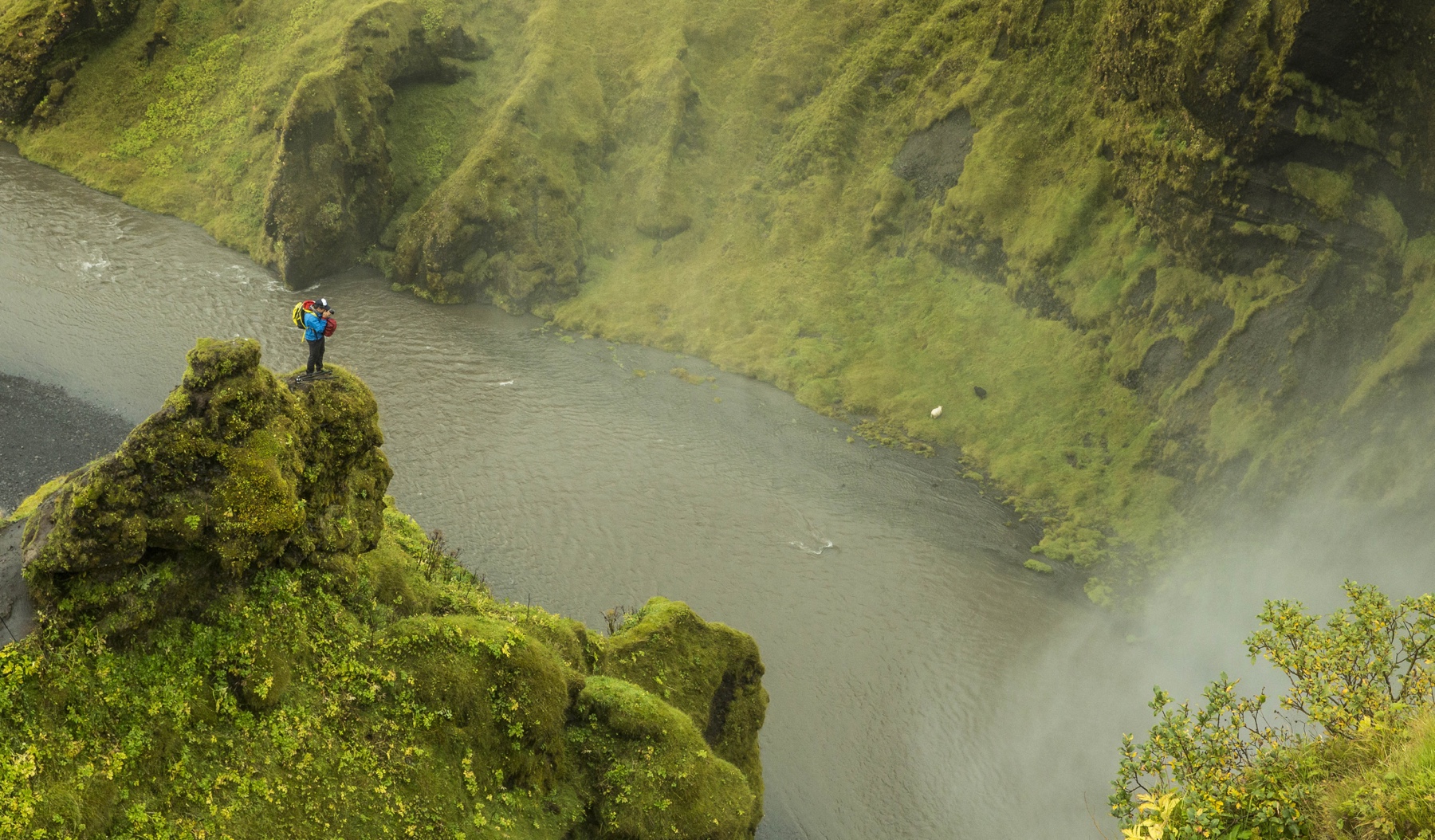
Pete McBride is an award-winning photographer and filmmaker whose work is regularly featured by National Geographic, Smithsonian, The Nature Conservancy, and other renowned institutions. His most recent book is titled Seeing Silence: The Beauty of the World’s Most Quiet Places, and it features photographs and stories from more than two decades of his adventures on all seven continents. Seeing Silence uses stunning imagery and engaging storytelling to highlight the importance of places free of man-made noise, and it educates the reader on just how quickly silence is disappearing from the world.
For more than twenty years, Pete has been using his skills as a storyteller to inspire action on a wide variety of conservation issues. He has highlighted the multitude of threats facing the Grand Canyon in both his documentary Into the Grand Canyon and his book Grand Canyon: Between River and Rim. He’s also documented the West’s ongoing water crisis by focusing on the myriad of challenges affecting the Colorado River basin–making the important but sometimes confusing topic of water in the West accessible to a broader audience. And now, with Seeing Silence, he’s turned his focus to noise pollution and natural sounds, and I personally learned a lot from the book and this conversation.
This is Pete’s second appearance on the podcast, so if you’d like to learn more about his personal backstory and adventures in the Grand Canyon, you can find a link to that conversation in the episode notes. In this conversation, we go deep into Pete’s new obsession with silence and natural sounds, and why noise pollution is such a critical conservation issue. We started out talking about Pete’s expedition to South Georgia Island back in March of 2020 and how he had to make a hasty escape from the island when Covid descended on the world. We talk about his experience during Covid, and how the pandemic shifted his interests from the visual to the auditory. We discuss how artificial noise affects wildlife, why Pete feels a responsibility not to share specific wilderness locations on social media, how Pete’s family keeps him grounded, the larger purpose that drives his professional work, his recent trips to Lake Powell, and we also included some sounds that Pete recorded during his South Georgia Island expedition.
It was great to chat with Pete again, and I’d encourage you to check out Seeing Silence– it’s an excellent book. And be sure the check out the episode notes for a complete list of all the topics we discussed and links to everything. Thanks to Pete for taking the time, and thanks to you for listening. I hope you enjoy!
Header photo and headshot courtesy of Pete McBride, book photo by Ed
—
Download on Apple Podcasts
—
Download on Spotify
—
Download on Google Podcasts
—
Download on Overcast
EPISODE NOTES
Topics Discussed:
- 3:30 – Where Pete was during the start of the pandemic
- 5:30 – Thousands of King Penguins
- 10:15 – How Pete, as an outgoing person, adjusted from a career of traveling for films to pandemic isolation
- 13:30 – An example that Pete observed of how pandemic silence affected wildlife
- 23:30 – Pete reflects on shifting his focus from more visual media to auditory
- 26:45 – Pete discusses a search for quiet and how human-made sound and industry impacts wildlife
- 32:30 – Pete and Ed discuss the impact of human-caused light pollution along with the impacts sound has on humans
- 36:45 – Pete describes why he became interested in sound
- 40:00 – Pete discusses the responsibility he feels as a photographer to not inspire destructive over-visitation of beautiful natural places
- 44:45 – Pete discusses how he and his family keep him humble and grounded despite widespread attention
- 49:45 – Pete talks about weaving adventure into work for conservation, and follows up on our first conversation regarding the state of water in the western US
- 59:30 – Pete gives us some conservation optimism
Information Referenced:
- Pete’s first visit on Mountain & Prairie
- Seeing Silence by Pete McBride
- South Georgia Island
- Ernest Shackleton
- King Penguins
- Falkland Islands
- Drake Passage
- Kevin Fedarko
- Roaring Fork Valley
- Rolling Stones
- Mick Jagger
- Jaque de Vos
- Svalbard
- Herring
- Swim bladders
- The Grand Canyon: Between River and Rim
- Colorado River Delta
- Gordon Hempton
- Maroon Bells-Snowmass Wilderness
- Independence Pass
- The End of Night by Paul Bogard
- San Juan River
- Pete’s NPR 1A interview
- Rick Ridgeway
- Yampa River
- Lake Powell
- Jonathan Wright
- Glen Canyon
- Lake Mead
- Flaming Gorge
- Len Necefer
- Glen Canyon Institute
- Desalination
- Kris Tompkins
Enjoy this episode? Then you might like these too:
- Rick Ridgeway – Purpose-Driven Adventurer
- Heather Hansman – Demystifying Water in the West
- Chris Burkard, Part 2 – Seeking Beauty Through Adventure
- Betsy Gaines Quammen – A Fascinating History of Public Lands in the West
- John Branch – Seeking the Extraordinary in the Ordinary
- Monte Burke – Exploring Obsession
- Mike Foote – Perfection is in the Process
- Steve Casimiro – Voice of Adventure
- Gabe Vasquez – Advocate for Equity in the Outdoors
Visit the podcast page for a full list of episodes where you can filter episodes by topic and guests’ vocations.
Rick Ridgeway – Purpose-Driven Adventurer
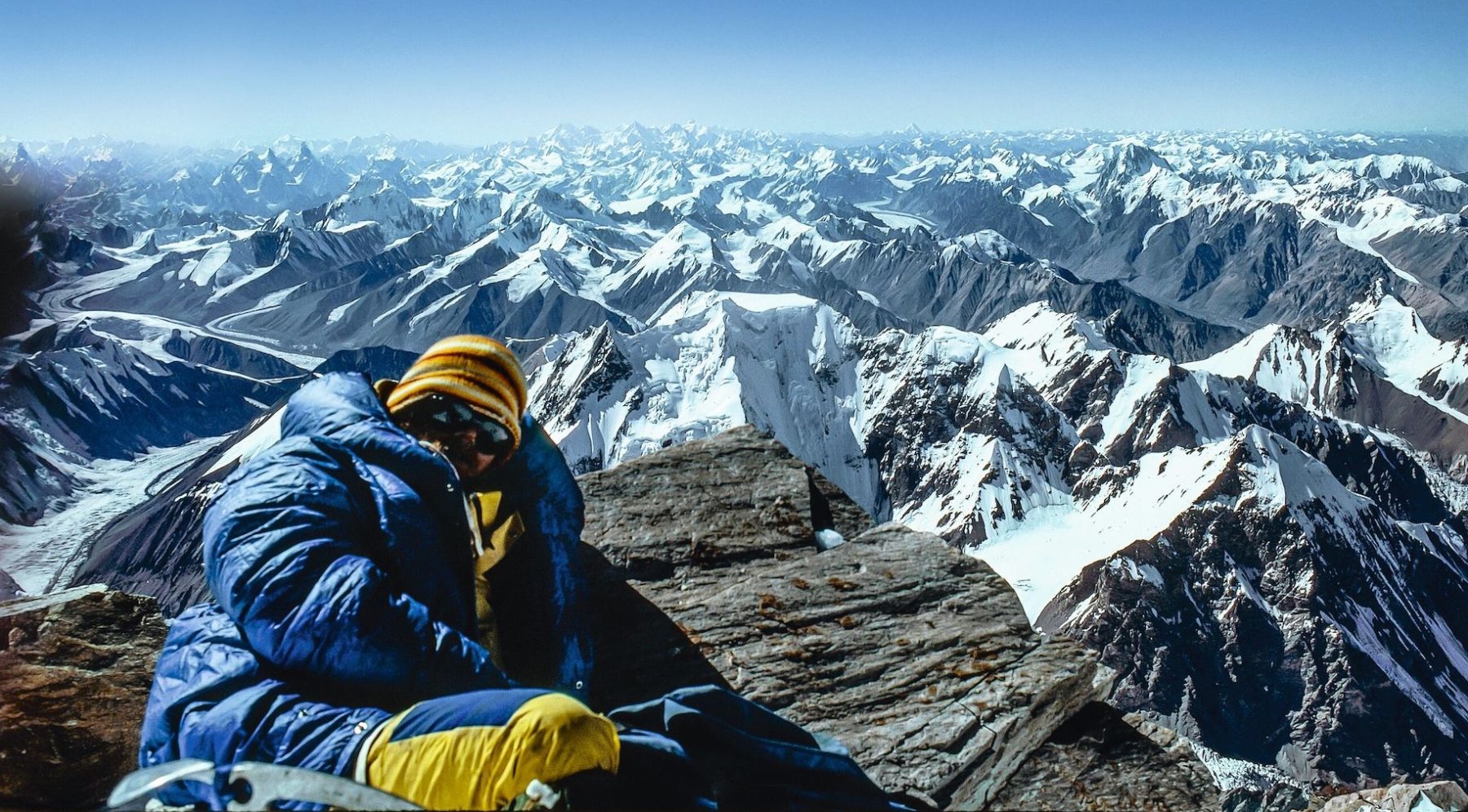
Rick Ridgeway is a world-renowned mountaineer and adventurer who has devoted his life to exploring some of the wildest regions of Planet Earth– from the summit of K2 to the jungles of Borneo to the mountain ranges of the American West and almost everywhere in between. Rick is also a highly regarded author, director, and producer who has written seven books and created numerous films and television shows. His newest book is titled Life Lived Wild: Adventures at the Edge of the Map, an excellent memoir that dives deep into his adventures, friendships, environmental advocacy, and pursuit of purpose-driven work.
Rick was born and raised in California, and when he was a teenager, his mother gave him a subscription to National Geographic, which ignited his passion for climbing and adventure. Early in his climbing career, Rick ticked off some unbelievably difficult climbs around the world, most notably being the first American to summit K2. But as he grew older and more experienced in the mountains, he shifted his focus away from pursuing adventure for adventure’s sake. Over time, he began to use his skills as an athlete and explorer to advance more purpose-driven causes such as wildlife conservation and environmental advocacy. Rick’s commitment to living a purpose-driven life is beautifully detailed in his new book Life Lived Wild, a book that I loved and highly recommend.
I had the pleasure of recording this conversation with Rick in person, just before a book signing at the Patagonia store in Denver. I have long admired Rick, and one of his earlier books played a huge role in my personal development, so it was an honor to have the opportunity to sit and talk with him for an hour. We started out discussing how and when he first began climbing and how he grew from an amateur climber into a world-class mountaineer. We talk a lot about mentorship– how he was mentored by climbing and environmental luminaries Yvon Chouinard and Doug Tompkins, and how he mentored many up-and-coming climbers, including Jimmy Chin. We talk about his commitment to taking action and being a doer, his success as an entrepreneur, and his 15-year tenure leading Patagonia’s sustainability initiatives. We talk about what brings Rick hope in the face of the climate crisis, how the pandemic affected him, and, as you’d expect from such a skilled writer, Rick offers tons of excellent book recommendations.
Huge thanks to Rick for taking the time to chat and to Patagonia Books for setting it all up. Meeting Rich was really a dream come true for me. I hope you enjoy.
Photos courtesy of Patagonia Books. Header by John Roskelley, portrait by Jimmy Chin.
This episode is brought to you thanks to the generous support of Ranchlands.
Visit www.ranchlands.com to learn more about their top-notch vacations, leather goods and apparel, or to explore their excellent blog, the “Ranchlands Review.”
THANK YOU, Ranchlands!
—
Download on Apple Podcasts
—
Download on Spotify
—
Download on Google Podcasts
—
Download on Overcast
EPISODE NOTES
Topics Discussed:
- 6:00 – A thank you to Rick
- 7:30 – Rick describes the moment he knew what he wanted to do when he grew up
- 13:30 – Rick talks us through his transition from climbing just for fun to using climbing to inform larger causes
- 21:30 – Rick talks about mentorship and what inspires him to be that kind of friend to people
- 29:15 – Rick talks about his experiences on the second American expedition on Everest and the first American expedition on K2 with his mentor, Jim Whittaker
- 32:00 – Rick explains the “do” mentality of Yvon Chouinard and Doug Thompkins
- 36:45 – Rick talks about his career shift from owning his own business to a job at an established company (Patagonia)
- 44:45 – Rick discusses how he finds balance between a business’s larger purpose and the details in its operation
- 48:30 – Rick talks about hope and climate change
- 56:00 – Rick talks about his lessons in exploration during the pandemic
- 1:00:15 – Rick’s book recommendations
Information Referenced:
- Life Lived Wild: Adventures at the Edge of the Map by Rick Ridgeway
- Seven Summits by Dick Bass, Frank Wells, and Rick Ridgeway
- Jim Whittaker
- National Geographic
- Sierra Nevadas
- Thunder Mountain
- Santa Ana River
- Outward Bound
- National Outdoor Leadership School (NOLS)
- Marin County
- Yvon Chouinard
- Doug Thompkins
- Jimmy Chin
- Conrad Anker
- Galen Rowell
- Brady Robinson
- Mountain Hardwear
- Alex Lowe
- Ventura, CA
- The North Face
- Fitz Roy Peak
- Osprey
- Sustainable Apparel Coalition
- The Higg index
- Dylan Tomine
- One Earth
- Leonardo DiCaprio Foundation
- Justin Winters
- Kris Thompkins
- Eric Goode
- Turtle Conservancy
- Rose Marcario
- The Snow Leopard by Peter Matthiessen
- Seven Pillars of Wisdom by T.E. Lawrence
- In Patagonia by Bruce Chatwin
- South by Ernest Shackleton
- For Whom the Bell Tolls by Ernest Hemingway
- Cormac McCarthy
- Silent Spring by Rachel Carson
- Desert Solitaire by Ed Abbey
- The Red Badge of Courage by Stephen Crane
Enjoy this episode? Then you might like these too:
- Dylan Tomine – Protecting What He Loves
- Luke Smithwick – A Life in High Places
- Chris Burkard, Part 2 – Seeking Beauty Through Adventure
- Elliott Woods – Stories from Dangerous Places
- Brendan Leonard, Part 2 – On Running, Creating, and Other Irrational Passions
- Iris Gardner – Living with Intention
- Heather Hansman, Part 2 – The Fascinating Story of Skiing’s Past, Present & Future
Visit the podcast page for a full list of episodes where you can filter episodes by topic and guests’ vocations.
Dr. Eric Arzubi – A New Approach to Solving the West’s Mental Health Crisis
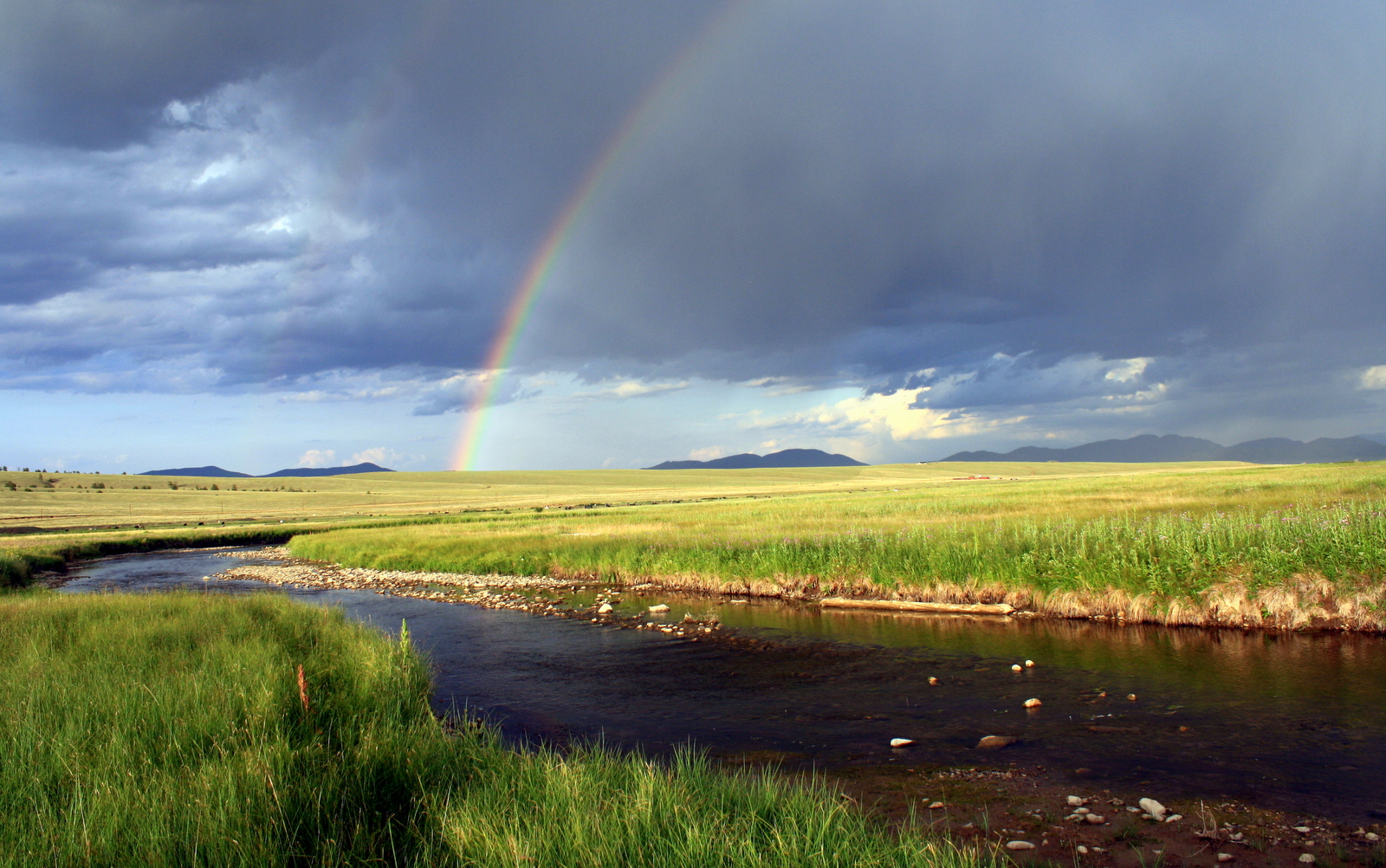
Dr. Eric Arzubi is the co-founder of Frontier Psychiatry, a Montana-based medical practice that is accelerating and expanding access to high-quality psychiatric care for rural communities.
By many metrics, Montana can be described as the epicenter of the United States’ mental health crisis. The large, mostly rural state is home to many vulnerable populations who are disproportionately affected by mental health concerns. And given Montana’s sprawling, lightly populated landscape, easy access to specialized and high-quality mental health care has been a significant challenge. But thanks to technological advancements and increased internet access, Eric and his team have successfully used telepsychiatry to reach underserved communities throughout Montana.
Eric’s path to becoming an innovator in rural medicine is an amazing, unexpected, and inspiring story. After graduating from college, he spent most of his twenties working as a Wall Street bond trader for Morgan Stanley, traveling the world and earning a great living. But despite his material success, he was unfulfilled with his career and felt a deep longing to do purpose-driven work that made the world a better place. So, at age 29, he decided to walk away from Wall Street and begin the long process of becoming a doctor– prerequisite courses, medical school, residency, and a fellowship in child psychiatry. At age 44, he landed his first job as a psychiatrist in Billings, Montana, where he fell in love with the people and place, and he began his quest to find solutions to the mental health crisis that plagues the rural West.
Mental health is a topic that is near and dear to my heart, so it was a real honor to have the opportunity to chat with Eric and learn about his innovative approach to solving such a complex societal challenge. We started out discussing his path to medicine– everything from why he decided to walk away from Wall Street to why he chose psychiatry as his specialty. We discuss the factors that have made Montana the epicenter of the mental health crisis, and what makes Frontier Psychiatry so uniquely qualified to help. We discuss approaches to scaling mental health care throughout the West, how Eric’s business and entrepreneurial background has helped him to find solutions to such a complex problem, and why it’s important for all of us to be advocates for mental health in our own communities. He also describes one of Frontier Psychiatry’s newest initiatives, a partnership with the Montana Department of Agriculture that provides free, confidential counseling to men and women working in agriculture in Montana.
Eric’s life story and his work are extremely inspiring and important, so I know you’ll enjoy this episode. Thanks to Eric for taking the time to talk, and thanks to you for listening.
Headshot courtesy of Eric Arzubi
—
Download on Apple Podcasts
—
Download on Spotify
—
Download on Google Podcasts
—
Download on Overcast
—
This episode is brought to you by The Arthur M. Blank Family Foundation and its Montana-based AMB West Philanthropies, both of which embody the values-based approach to philanthropy and business of their Chairman Arthur M. Blank
EPISODE NOTES
Topics Discussed:
- 4:00 – Eric describes what he was doing when he was 28
- 6:00 – Eric talks about his change of heart at age 29
- 12:00 – Eric discusses his friends’ and family’s reaction to his career shift, and how one staff member at Morgan Stanley gave him the courage and space to pursue his medical career
- 16:00 – Eric talks about how psychiatry caught his attention
- 21:45 – Eric explains how he ended up in Montana
- 32:30 – Eric talks about what makes Frontier Psychiatry special
- 37:30 – Eric discusses how his nontraditional career path may have helped him challenge established practices in the field of mental healthcare
- 41:45 – Eric talks about the balance in his work between addressing distinct issues and deep, underlying problems
- 48:45 – Eric discusses what gives him hope that there are scalable solutions for mental health challenges, especially in rural communities
- 55:00 – Eric explains the role that untrained citizens can play in advocating for/supporting mental health
- 1:02:45 – Eric’s book recommendations
- 1:07:30 – Eric’s parting words of wisdom
Information Referenced:
- Eric’s TED talk
- Frontier Psychiatry
- Morgan Stanley
- The Hamptons
- American Academy of Pediatrics
- Philips
- Billings Clinic
- Adverse Childhood Experiences
- Nurse-Family Partnership
- National Alliance on Mental Illness
- Mental Health America
- Healing: Our Path from Mental Illness to Mental Health by Thomas Insel
- National Institute of Mental Health
- The Voltage Effect by John A. List
- The Culture Engine by Chris Edmonds
- Counseling Access for Montana Ag
Enjoy this episode? Then you might like these too:
- Matt Pierson – Finding New Solutions for Food Insecurity
- Liz Moore – For the Love of Montana
- NEW WEST DISPATCH – Marci McLean & Cora Neumann on COVID’s Impact on Native Communities
- Shane Doyle – Reverence for the Past, Hope for the Future
- Iris Gardner – Living with Intention
- Chris La Tray – Rediscovering His Past, Writing His Future
- Kate Kavanaugh – Regeneration & Restoration
- Mike Foote – Perfection is in the Process
- Jason Gardner – A Life of Purpose & Service
The Life-Changing Magic of Living Strenuously, with Kate Kavanaugh
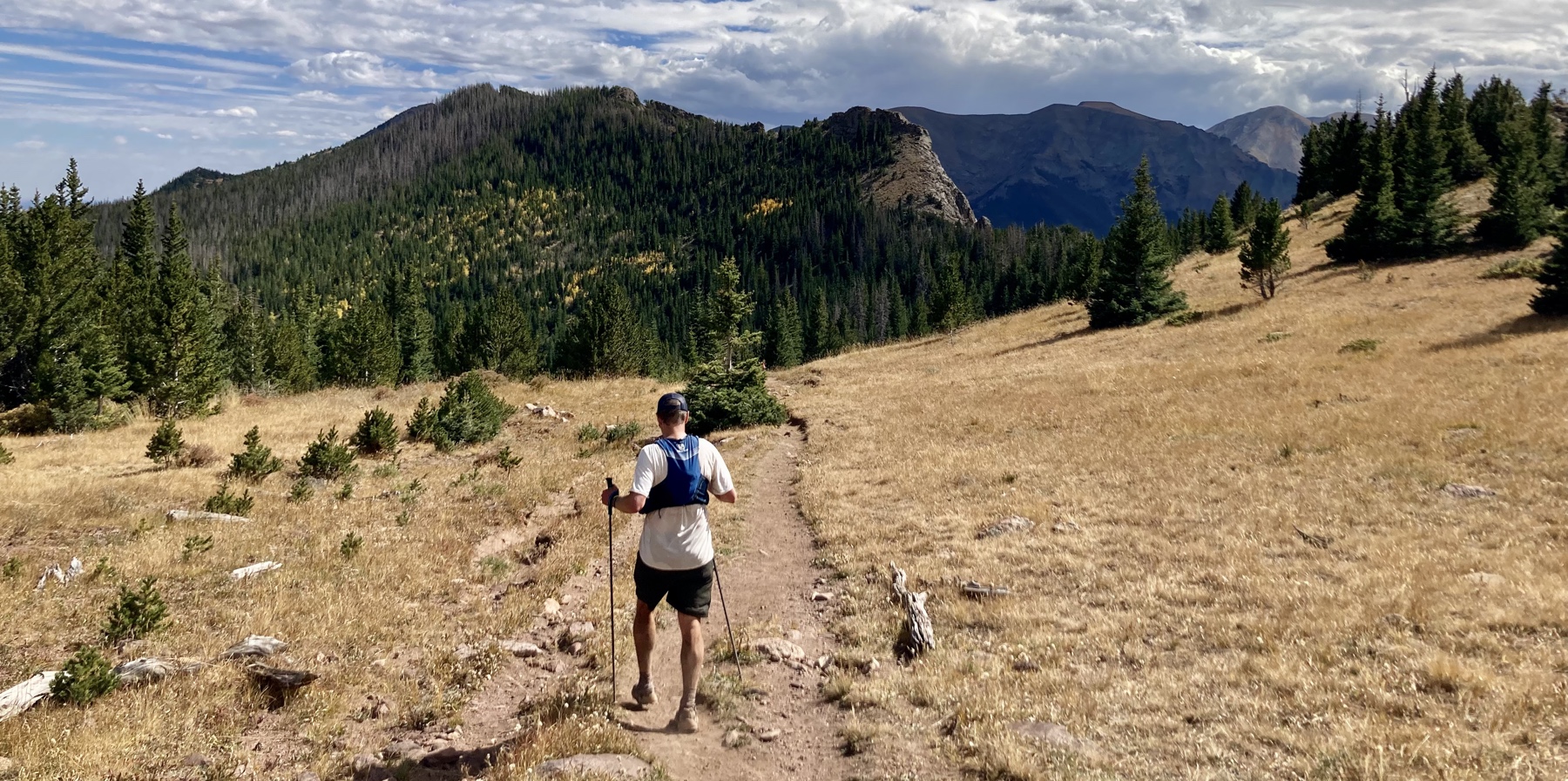
This episode is a little different– it’s me being interviewed by my friend and past Mountain & Prairie podcast guest Kate Kavanaugh. If you’ve been listening for a while, then I’m sure you remember Kate– she’s a farmer, butcher, and all-around interesting woman who co-founded Western Daughters Butcher Shop in Denver.
Kate recently started an excellent new podcast called Ground Work, which covers a variety of interesting topics, from soil to health to books to intentional living. Kate is unbelievably smart and insightful, and there’s a ton of overlap between what I’m doing with M&P and what she’s doing with Ground Work, so I’d encourage you to check out all of her episodes. There’s a link in the notes.
Even though I’m still confused as to why anybody would ever want to interview me, Kate did and we had a fun conversation about everything from conservation to ultra running, reading to starting a podcast. We also talk a lot about my obsession with living what Theodore Roosevelt called the Strenuous Life, and how adopting that approach to life has been life-changing for me.
And speaking of the Strenuous Life, I just launched a new section of the website devoted to The Strenuous Life and offering ways for the Mountain & Prairie community to connect and collaborate in the spirit of “Living Strenuously.” Rather than try to explain it all here, I’d encourage you to click over to learn more about all the details.
Thanks for listening. Hope you enjoy this and all of Kate’s podcast episodes. And I hope you’ll be able to join some of the M&P community in our commitment to living the Strenuous Life. Enjoy!
- Kate’s GROUND WORK podcast
- Strenuous Living on Mountain & Prairie
- Mountain & Prairie on Strava
- Mountain & Prairie on Goodreads
- Annual Strenuous Life Retreat
—
Download on Apple Podcasts
—
Download on Spotify
—
Download on Google Podcasts
—
Download on Overcast
“I wish to preach, not the doctrine of ignoble ease, but the doctrine of the strenuous life, the life of toil and effort, of labor and strife; to preach that highest form of success which comes, not to the man who desires mere easy peace, but to the man who does not shrink from danger, from hardship, or from bitter toil, and who out of these wins the splendid ultimate triumph.”
Theodore Roosevelt
Land Tawney – Energetic & Optimistic
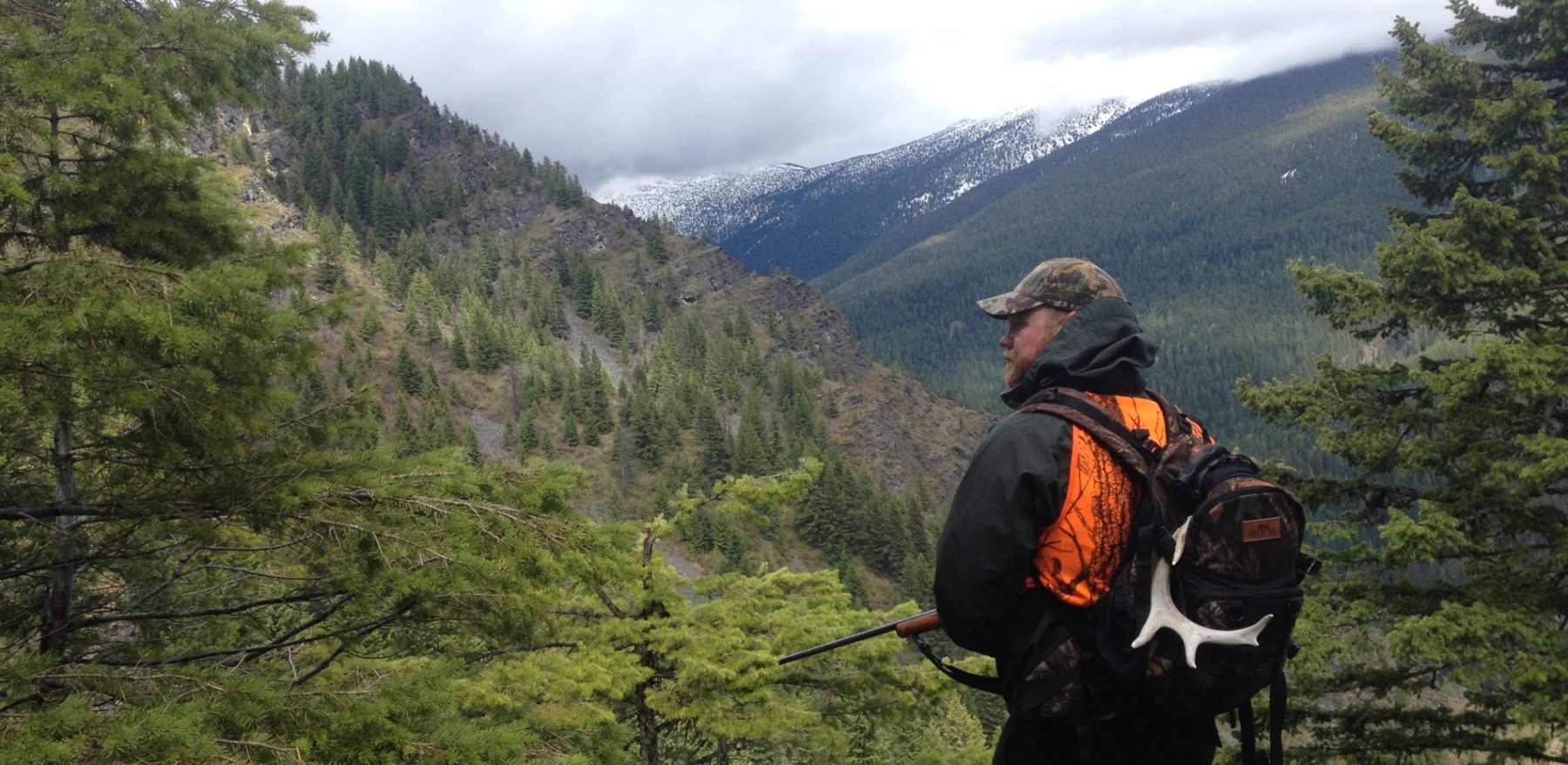
Land Tawney is the President and CEO of Backcountry Hunters and Anglers, one of North America’s leading and most effective advocates for wild public lands, waters and wildlife. Founded around a campfire in 2004, BHA uses education, nonpartisan political advocacy, stewardship initiatives, and stakeholder coalitions to ensure the protection of our public lands for generations to come. As its name implies, BHA is an organization that works on behalf of sportsmen, but you don’t have to be a hardcore hunter or fisherman to benefit from its work. I’m a lot of things, but a hardcore hunter is not one of them– yet, I’m a proud member of BHA and a super-fan of all that it has accomplished.
Land was born and raised in Montana, the son of two highly respected conservationists who instilled in him a deep reverence for wild places and the importance of protecting them. From an early age, Land was hunting, fishing, and spending time around his parents’ friends and colleagues, many of whom were well-known, renowned conservationists. When Land was in college, his father passed away, which fortified his desire to devote all of his professional energy to conserving the wild places that have always meant so much to his family. After successful stints at several notable conservation organizations, Land took the helm of BHA in 2013. Since then, he has led and grown the organization into one of the country’s leading voices for sportsmen and public land protectors.
When Land and I connected for this conversation, he was hard at work preparing for the upcoming BHA Rendezvous, which is taking place May 12-14, 2022 in Missoula, Montana. We discuss all of the details of that premiere conservation event, and you can find additional information in the notes and on this episode’s webpage. And we also covered a ton of interesting and important topics, including: the importance of advocating for conservation in Washington, DC; how apathy can be a huge threat to our wild lands; the slippery-slope threat of transferring federal lands to state or private entities; the importance of remaining optimistic in the face of challenges; how BHA helps and encourages new hunters; the importance of BHA’s state chapters and local leadership; Land’s personal and professional conservation journey; and, of course, he offers tons of great book recommendations.
A huge thanks to Land for joining me during such a busy time of year. And I encourage all of you to check out BHA’s membership options and consider supporting them if you are so inclined. I deal with conservation organizations all day in both my podcast and conservation work, and BHA is the best of the best. Hope you enjoy this episode.
Header photo courtesy of Land Tawney and BHA, portrait by Maggie Hamilton
This episode is brought to you thanks to the generous support of Ranchlands.
Visit www.ranchlands.com to learn more about their top-notch vacations, leather goods and apparel, or to explore their excellent blog, the “Ranchlands Review.”
THANK YOU, Ranchlands!
—
Download on Apple Podcasts
—
Download on Spotify
—
Download on Google Podcasts
—
Download on Overcast
EPISODE NOTES
Topics Discussed:
- 6:30 – Land talks about Backcountry Hunters and Anglers
- 12:30 – Land discusses his plan for when he advocates for conservation issues in DC
- 17:15 – Land describes what he thinks is the greatest threat to public lands that folks should be aware of
- 20:15 – Land explains his concern with transferring ownership of public lands to state or private entities
- 23:30 – Land talks about how he maintains a healthy level of skepticism in his advocacy work without becoming jaded
- 27:15 – Land explains the function and importance of BHA’s state chapters
- 30:15 – Land talks about BHA programs that encourage new hunters and anglers
- 36:15 – Land talks about his childhood and the role that the outdoors played in it
- 40:45 – Land discusses his first job out of college
- 44:15 – Land talks about the common threads he noticed in his conservation mentors
- 48:15 – Land describes the BHA Rendezvous
- 58:15 – Land’s book recommendations
Information Referenced:
- Backcountry Hunters and Anglers
- BHA Rendevous 2022
- Trout Unlimited
- Rocky Mountain Elk Foundation
- Pheasants Forever
- Ducks Unlimited
- BHA Armed Forces Initiative
- BHA Collegiate Program
- Land Trust Alliance
- LTA’s Advocacy Days
- Cory Gardner
- Recovering America’s Wildlife Act
- Pittman–Robertson Federal Aid in Wildlife Restoration Act
- Duck Stamps
- Kingfisher
- American Dipper
- Great Blue Heron
- Theodore Roosevelt Conservation Partnership
- Jim Range
- Mike Lee
- The HOUSES Act
- The Federal Land Transaction Facilitation Act
- Adam Gall
- National Wild Turkey Federation
- BHA’s Hunting for Sustainability Program
- BHA’s Women in the Woods Initiative
- BHA Membership
- A River Runs Through It by Norman Maclean
- Blackfoot River
- Clark Fork River
- Bitterroot River
- Patty Canyon
- Duck blind
- Conservation Easements
- Long Eared Owls
- Howard Vincent
- Smith River
- Theodore Roosevelt biography trilogy by Edmund Morris
- The Rendezvous
- Rachel Schmidt
- Tyson Running Wolf
- Rue Mapp
- Outdoor Afro
- David Wise
- Clay Hayes
- Alone
- Mark Kenyon
- Meat Eater
- Jonathan Wilkins
- North American Wildlife Model
- Hal Herring: BHA Podcast & Mountain and Prairie
- Ranch Life and the Hunting Trail by Theodore Roosevelt
- American Sportsmen and the Origins of Conservation by John F. Reiger
- Gifford Pinchot
- Where the Crawdads Sing by Delia Owens
- Otherlands by Thomas Halliday
- Lake Missoula
Enjoy this episode? Then you might like these too:
- Hal Herring – A Man of Words & Wild Places
- Mark Kenyon – A Passion for Public Lands
- Reflections On My First Elk Hunt, with Adam Gall
- Alexis Bonogofsky – Taking a Stand for the West
- Gabe Vasquez – Advocate for Equity in the Outdoors
- Jessica Wahl Turner – Outdoor Recreation & Rural Economies
- Rachel VandeVoort – Harnessing the Power of Outdoor Recreation
- Jason Gardner – A Life of Purpose & Service
- Kelsey Johnson – Chasing Her Artistic Ambitions
- Iris Gardner – Living with Intention
Visit the podcast page for a full list of episodes where you can filter episodes by topic and guests’ vocations.
Betsy Gaines Quammen – A Fascinating History of Public Lands in the West
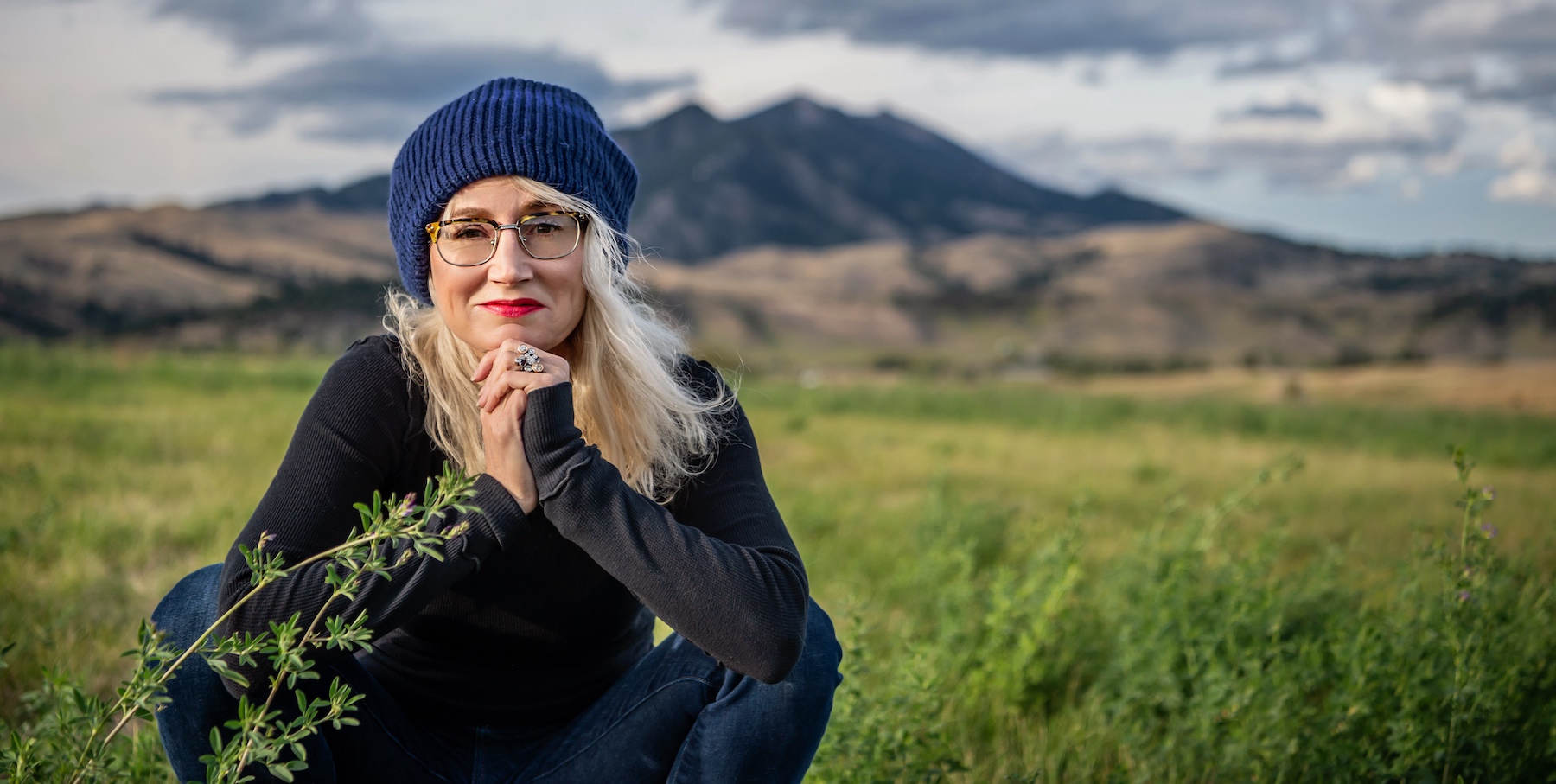
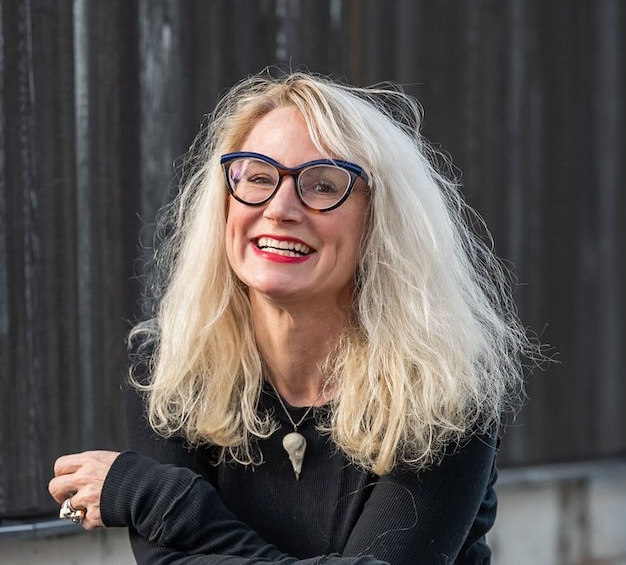
Betsy Gaines Quammen is a historian and conservationist, and she’s also the author of the excellent book American Zion: Cliven Bundy, God, & Public Lands in the West. Betsy has enjoyed a long career in the conservation world, working on issues ranging from grizzly bears in the West to fish in Mongolia to wildlife in East Africa. She also holds a doctorate in Environmental History from Montana State University, where her dissertation focused on the Mormon settlement of the West and public land conflicts. With such a depth of expertise on such a wide range of subjects, I was thrilled to have Betsy join me for a conversation about her book, public lands, and the West.
American Zion had been recommended to me numerous times since it was published in early 2020. Many of my most knowledgeable friends told me it was a must-read for anyone trying to make sense of the present-day threats to public lands here in the West. Well, I finally read it a few weeks ago, and I can confirm that my friends were correct– the book provided me with much-needed, nuanced context for understanding both specific public lands controversies and broader political threats. It also provided fascinating insights into the mindsets and goals of the Bundy family– the people behind the infamous occupation of Malheur Wildlife Refuge and the Battle of Bunkerville. I was also fascinated by the beliefs of the Bundys and their ancestors, and how their ideas about everything from religious texts to the US Constitution have influenced public discourse in the West and beyond.
Betsy and I connected last week and had a fun and educational conversation about everything from her career as a conservationist to her in-person interactions with the Bundy family. We started out discussing how she became interested in the West and why the Morman settlement of the West became the focus of her work. We discuss the Mormon prophets Joseph Smith and Brigham Young, and how and why Mormons settled in the West. We talked about how perceived persecution by the US government has served as a faith-building experience for the Bundys and their followers, and whether or not the Bundys truly believe the prophesies that they preach. We discuss the Sagebrush Rebellion, the Malheur takeover, the Battle of Bunkerville, and how Betsy thinks about her personal safety when writing about potentially violent people. She also talks about how American Zion was positively received by her Mormon friends, describes her current book project, and recommends tons of books that you’ll want to check out. Links to everything are in the episode notes.
It was great to finally have the opportunity to chat with Betsy, and I sincerely appreciate her taking the time. Hope you enjoy it as much as I did.
Top photos courtesy of Betsy Gaines Quammen, book photo by Ed
LISTEN:
—
Download on Apple Podcasts
—
Download on Spotify
—
Download on Google Podcasts
—
Download on Overcast
EPISODE NOTES:
Topics Discussed:
- 6:00 – Betsy reads her opening paragraph from her book American Zion
- 8:45 – Betsy explains how she became interested in the western US
- 10:00 – Betsy talks about why she began looking into Mormon history in the western states
- 14:45 – Betsy talks about her research and interactions regarding the Bundy family and their anti-federal government activities
- 22:00 – Betsy discusses the history of the Church of Jesus Christ of Latter Day Saints and how that impacted many rural attitudes towards land management and the federal government
- 27:00 – Betsy discusses her personal interactions with Cliven Bundy
- 31:00 – Betsy explains the depth of the Bundy’s faith and how that plays out in their political and anti-government action
- 31:30 – Betsy talks about the Bundys’ action after she published her book and explores the differences between the Malheur and Bunkerville incidents
- 34:00 – Betsy talks discusses the implications of her writing for her personal safety
- 35:45 – Betsy explains why any public land user should care about what the Bundys are doing.
- 40:45 – Betsy explains how anti-Semitism and the Sagebrush Rebellion laid the groundwork for the misinformation that is rampant today
- 46:00 – Betsy talks about how her book was received by her Mormon friends
- 50:30 – Betsy discusses her current work
- 52:45 – Betsy’s recommended books about the West
- 1:03:00 – Betsy’s parting words of wisdom
Information Referenced:
- Betsy Gaines Quammen
- American Zion by Betsy Gaines Quammen
- Evergreen, CO
- Colorado Springs, CO
- Colorado College
- Nairobi, Kenya
- Doug Peacock
- Church of Jesus Christ of Latter Day Saints – LDS, Mormons
- Terry Tempest Williams
- Under the Banner of Heaven by John Krakauer
- New TV series based on the book
- Bundyville
- Sarah Dant, Weber State
- Weber State University
- Malheur Wildlife Refuge
- Occupation
- https://en.wikipedia.org/wiki/Cliven_Bundy
- Ammon Bundy
- Joseph Smith
- Zion
- Zion National Park
- Sagebrush Rebellion
- Bunkerville, NV
- The Battle of Bunkerville
- The Wilderness Act
- The Endangered Species Act
- Monroe Mountain
- Piute County
- Q-Anonymous conspiracy theories
- Cleon Skousen
- Glenn Beck
- John Birch Society
- Stewart Rhodes, Oathkeepers
- January 6th insurrection
- Mitt Romney
- Mike Lee
- Gretchen Whitmer
- Burns, OR
- The Rothschilds
- 1992 UN Earth Summit to Address Sustainability in the 21st Century
- Agenda 21
- California dad killed his kids over QAnon and ‘serpent DNA’ conspiracy theories, feds claim
- LDS statement about the occupation of the Malheur Wildlife Refuge
- Logan, UT
- Fools Crow by James Welch
- Blackfeet Nation
- Close Range: Wyoming Stories by Annie Proulx
- Includes Brokeback Mountain by Annie Proulx
- Ceremony by Leslie Marmon Silko
- Pueblo of Laguna
- Deb Haaland
- House Made of Dawn by N. Scott Momaday
- Kiowa Tribe
- Chris La Tray
- Annie Helen Peterson
- Hal Herring
- Fifty-Six Counties by Russel Roland
- The Mountain Meadows Massacre by Juanita Brooks
- Rick Bass
- Torrey House Press
- Amy Irvine
- David Gessner
- Patagonia Books
- Fantasyland by Kurt Andersen
Enjoy this episode? Then you might like these too:
- Shane Doyle – Reverence for the Past, Hope for the Future
- Adam Gall – A Reverence for Wildlife & Wild Places
- Chris La Tray – Rediscovering His Past, Writing His Future
- Hal Herring – A Man of Words & Wild Places
- Mark Kenyon – A Passion for Public Lands
- Heather Hansman, Part 2 – The Fascinating Story of Skiing’s Past, Present & Future
- Sara Dant – A Deep Dive Into the History of the West
- David Gessner, Part 3 – A Confluence of Conservation Ideals
- Becky Edwards – Amplifying the Power of Women in the West
Visit the podcast page for a full list of episodes where you can filter episodes by topic and guests’ vocations.
Brian Yablonski – Action-Oriented Conservationist
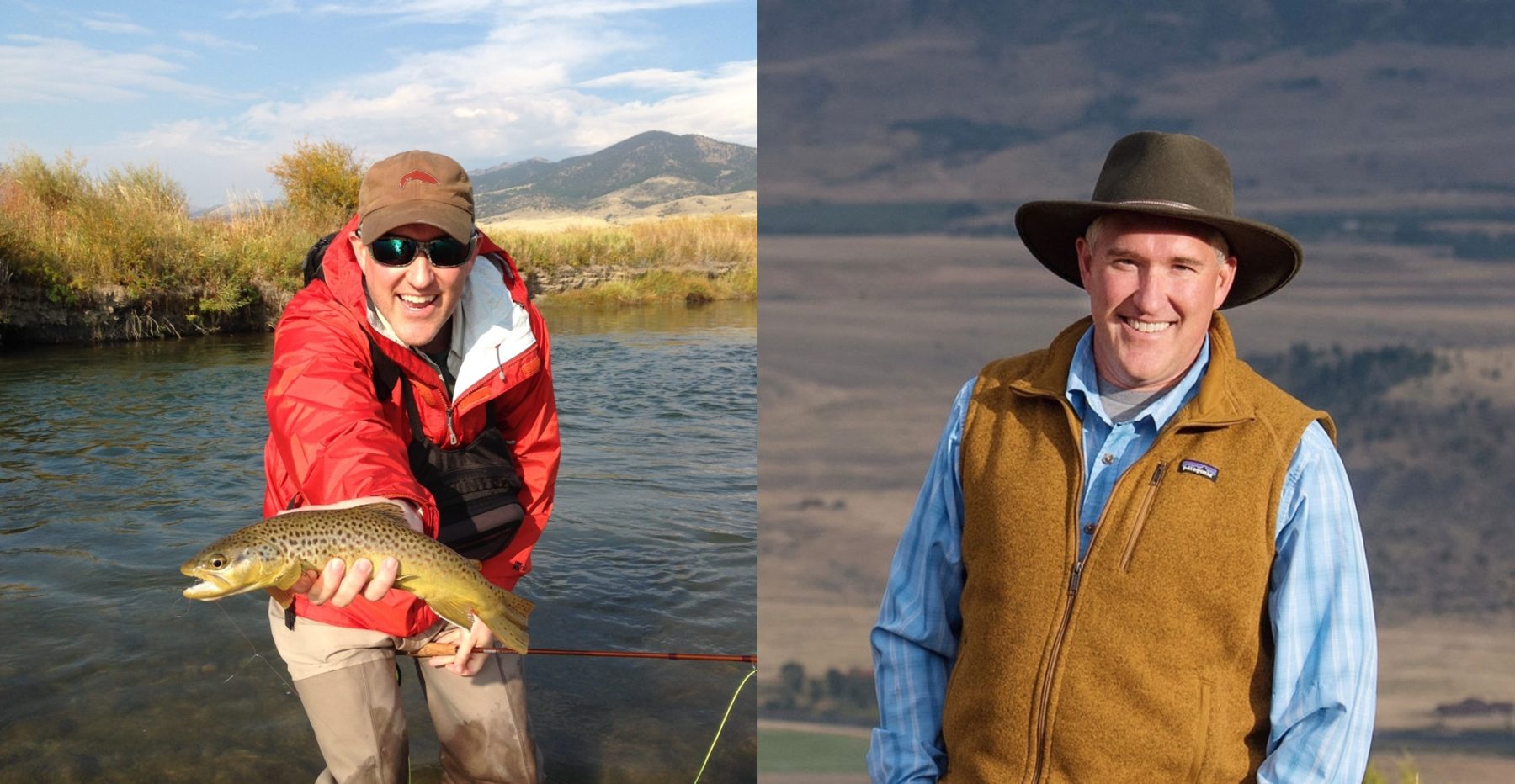
Brian Yablonski is the Chief Executive Officer of the Property and Environment Research Center (“PERC”), a Bozeman-based research institute dedicated to promoting conservation by exploring how voluntary trade can produce positive environmental outcomes. For more than 40 years, PERC has explored market-based solutions for major conservation challenges throughout the West, and its current initiatives focus on innovative approaches for wildlife conservation, public lands management, and more. For example, PERC recently collaborated with the Greater Yellowstone Coalition and a ranching family in Paradise Valley, MT, to enact a first-of-its-kind elk occupancy agreement, which offers a new, win-win method for managing the sometimes-competing needs of livestock and wildlife.
Brian was born and raised on the east coast, and, prior to taking the helm at PERC, he enjoyed a successful career in public policy, business, and conservation. In 2018, he moved to Bozeman to lead PERC into its next chapter of conservation innovation in the West. As you’ll hear in this conversation, Brian has a deep respect for research, economic theory, and big ideas created by scholars and conservation professionals. But he is equally if not more, committed to putting these ideas into action– to making a tangible difference on the ground, throughout the communities of the West. In my experience, it can be difficult to find organizations that balance scholarly rigor with a commitment to execution, so it was a pleasure to speak with Brian and learn more about PERC’s unique approach to conservation.
Brian and I actually attended the same college in North Carolina, so it was fun to connect with a fellow Wake Forest Demon Deacon to discuss conservation here in the West. We started out discussing the history of PERC, and how and why the organization was founded back in 1980. We talked in detail about the elk occupancy agreement and how this new approach to wildlife and habitat management could be scaled throughout the West. We discuss the all-important role that private landowners play in wildlife and land conservation, and how market-based solutions can create new tools for finding win-win solutions. We discuss PERC’s work exploring the financial sustainability of National Parks, as well as PERC’s history of collaboration with a wide range of nonprofit and governmental entities. Brian shares his thoughts on the ideal role that government can play in conservation, and he discusses a few success stories of his careering in conservation. And as usual, we talk about book recommendations, and Brian offers up some great ones.
I’ve been following PERC’s work in the West for quite some time, so I thoroughly enjoyed being able to learn more about the organization directly from Brian. There are a lot of excellent resources mentioned in the episode, including some films that PERC has produced, so be sure to check out the notes for links to everything. Hope you enjoy!
Photos courtesy of Brian Yablonski and PERC
LISTEN:
—
Download on Apple Podcasts
—
Download on Spotify
—
Download on Google Podcasts
—
Download on Overcast
EPISODE NOTES:
Topics Discussed:
- 4:30 – Brian talks us through the history and work of the Property and Environment Research Center (PERC)
- 7:45 – Brian discusses the Elk Occupancy Agreements PERC has entered with the Greater Yellowstone Coalition
- 24:15 – Brian talks about how the Elk Occupancy Agreements model could be scaled up to incentivize conservation on a broader scale
- 29:30 – Brian discusses the balance he and PERC have to strike between high-level strategic thinking and on-the-ground implementation
- 35:15 – Brian talks about PERC’s partnership with the Environmental Defense Fund
- 38:30 – Brian describes what he believes the ideal role of government is, especially in conservation
- 42:45 – Brian talks about the work PERC is doing with National Parks
- 54:15 – Brian discusses his conservation work in Florida
- 1:00:15 – Brian’s book recommendations
- 1:08:00 – Brian’s parting words of wisdom
Information Referenced:
- The Property and Environment Research Center (PERC)
- PERC on YouTube
- Elk in Paradise
- PERC and National Parks
- Wake Forest University
- Elk Occupancy Agreements
- Greater Yellowstone Coalition
- Arthur Middleton
- Cody, WY
- Brucellosis in cattle
- Western Landowners Alliance
- National Elk Refuge
- Paradise Valley, MT
- Absaroka-Beatooth Wilderness
- Fescue grass
- Timothy grass
- The Nature Conservancy
- Ducks Unlimited
- Environmental Defense Fund
- Paradise Valley Working Lands
- Chris Costello
- Great American Outdoors Act
- Kruger National Park
- Pelican Island
- Critical Wildlife Area
- Coastal Conservation Association
- American Sportfishing Association
- The Bonefish and Tarpon Trust
- Undaunted Courage by Steven E. Ambrose
- American Big Game Hunting: the Book of the Boone and Crockett Club by Theodore Roosevelt and George Bird Grinnell
- Boone and Crockett Club
- Ted Turner
- Rough Riders
- Todd Wilkinson
- Mountain Journal
- Aldo Leopold
Enjoy this episode? Then you might like these too:
- Kate Mannix – A Legacy of Land Stewardship
- Heather Hansman, Part 2 – The Fascinating Story of Skiing’s Past, Present & Future
- Matt Pierson – Finding New Solutions for Food Insecurity
- Shane Doyle – Reverence for the Past, Hope for the Future
- Antonia Malchik – Exploring Culture & Complexity
- NEW WEST DISPATCH – Marci McLean & Cora Neumann on COVID’s Impact on Native Communities
- Carlos Fernandez – The Power of Partnerships
- Rachel VandeVoort – Harnessing the Power of Outdoor Recreation
Visit the podcast page for a full list of episodes where you can filter episodes by topic and guests’ vocations.
Dylan Tomine – Protecting What He Loves
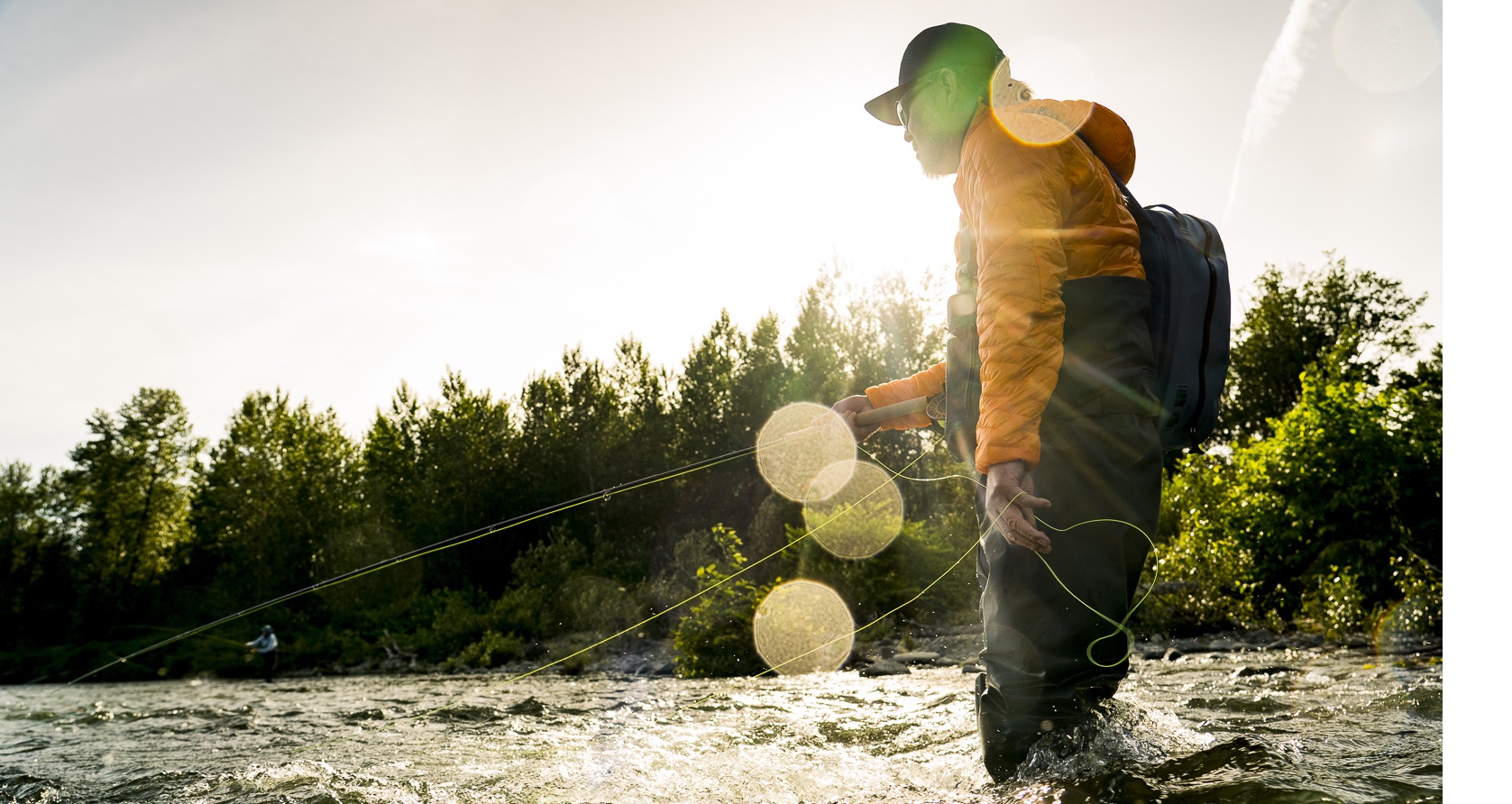
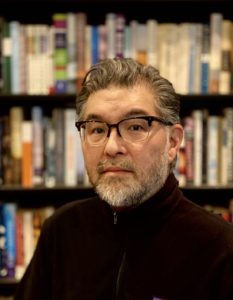
Dylan Tomine is a conservationist, angler, and author of the excellent new book Headwaters: The Adventures, Obsession and Evolution of a Fly Fisherman. Headwaters is a collection of essays and stories from Dylan’s life as a self-proclaimed fly fishing bum, a life that has taken him from his home in the northwest to the far reaches of the globe and back again. You don’t have to be a hardcore angler to connect with this book– it’s an important read for anyone who loves wild places and feels drawn to protect them. And I’m not alone in my praise– in just the few days between when we recorded this conversation and now, the book has received glowing reviews from the Wall Street Journal, Seattle Times, and more.
Dylan was born and raised in the Pacific Northwest, and he’s been obsessed with fish for as long as he can remember. At an early age, he caught his first steelhead, and from that point on he has been laser-focused on that specific species– and he’s devoted huge swaths of his life to both pursuing and protecting the fascinating fish. Given steelhead’s dwindling populations, threatened habitat, and often miserable weather that defines their home waters, steelhead fisherman like Dylan are a rare breed–some would argue they are gluttons for punishment. So when you combine Dylan’s skill as a writer, with his devotion to steelhead, with his love of suffering, the end product is a fascinating man with a gift for telling important stories. Just the kind of person I love getting to know!
I thoroughly enjoyed this conversation with Dylan and thought it was the perfect mix of sobering analysis of the state of the West’s fisheries combined with optimism and solutions for solving the challenges. He also offers up plentiful hilarious and insightful stories from his life on the water. We started out talking about Dylan’s upbringing in the northwest and how and why he became so obsessed with fish. We talk about the moment he realized that he needed to play an active role in protecting fish and fisheries, and why fish health is an indicator of larger environmental challenges. We talk about his longstanding role as a Patagonia fishing ambassador, and how Yvon Chouinard has played a critical role in Dylan’s evolution as a conservationist. We discuss how parenthood changes people’s outlook on environmental challenges and the role of the upcoming generation in the environmental movement. We obviously talk a lot about Headwaters, as well as his previous book called Closer to the Ground, which I also loved. We discussed his creative process, and, as you’d expect, he has tons and tons of excellent book and author recommendations. Be sure to check the episode notes for links to those books and everything else we discuss.
I can’t thank Dylan enough for all his work as a writer and conservationist, and for taking the time to chat with me for this episode. Hope you enjoy!

Header photo by Matthew DeLorme, headshot by Weston Tomine
This episode is brought to you thanks to the generous support of Ranchlands.
Visit www.ranchlands.com to learn more about their top-notch vacations, leather goods and apparel, or to explore their excellent blog, the “Ranchlands Review.”
THANK YOU, Ranchlands!
LISTEN:
—
Download on Apple Podcasts
—
Download on Spotify
—
Download on Google Podcasts
—
Download on Overcast
EPISODE NOTES:
Topics Discussed:
- 6:00 – Dylan discusses his childhood and how fishing became a part of his life
- 8:30 – Dylan talks about steelhead
- 11:00 – Dylan describes the general conditions in which one fishes for steelhead
- 16:15 – Dylan talks about the moment he realized there were real problems and challenges facing the native steelhead population
- 20:00 – Dylan describes how becoming a parent impacted his conservation ethic
- 28:00 – Dylan explains why people should care about declining steelhead populations
- 34:00 – Dylan talks about why he wrote his book Headwaters
- 36:00 – Dylan explains how he became involved with Patagonia
- 41:30 – Dylan talks about Yvon Chouinard, what makes him unique, and how that has made Patagonia into the powerhouse company it is today
- 45:00 – Dylan talks about Patagonia Books
- 49:15 – Dylan reads an excerpt from his book
- 54:30 – Dylan describes his writing process
- 58:15 – Dylan talks about the authors he admires
Information Referenced:
- Headwaters by Dylan Tomine
- Closer to the Ground by Dylan Tomine
- Frances Ashforth
- Steelhead
- Olympic Peninsula
- Swung fly
- National Outdoor Leadership School (NOLS)
- Olympic National Park
- Bogachiel River
- Puget Sound
- Skykomish River
- Polio
- Spanish Flu
- Indicator species
- Mark Kurlansky
- Cod by Mark Kurlansky
- Salt by Mark Kurlansky
- Chinook salmon
- Yvon and Malinda Chouinard
- Tom McGuane
- Gretel Ehrlich
- Dean Potter
- Steph Davis
- Don’t buy this jacket
- Key West, FL
- Jim Harrison
- Hunter S. Thompson
- Jimmy Buffett
- Doug Thomkins
- The North Face
- Royal Robbins
- Patagonia Books
- Rick Ridgeway
- Jane Seivert
- Chris Burkard
- Jennifer Ridgeway
- Jason Isbell
- Russell Chatham
- Dark Waters by Russel Chatham
- James Welch
- Winter in the Blood by James Welch
- David Guterson
- Snow Falling on Cedars by David Gutterson
- East of the Mountains by David Getterson
- John Larison
- Whiskey When We’re Dry by John Larison
- Callan Wink
- August by Callen Winks
- Chris Dombrowski
- Monte Burke
- Chris La Tray
- One Sentence Journal by Chris La Tray
- Brian Doyle
- Wet Engine by Brian Doyle
- Grace Notes by Brian Doyle
- Mink River by Brian Doyle
- The Plover by Brian Doyle
- Ken Kesey
- Sometimes a Great Notion by Ken Kesey
- Jonathan Raban
- Passage to Juneau by Jonathan Raban
- Bad Land by Jonathan Raban
- Karl Marlantes
- Matterhorn by Carl Marlantus
- Deep River by Carl Marlantus
Enjoy this episode? Then you might like these too:
- Chris La Tray – Rediscovering His Past, Writing His Future
- Alvin Dedeaux – Living His Dream
- Reflections On My First Elk Hunt, with Adam Gall
- Monte Burke – Exploring Obsession
- Malcolm Brooks – Epic Tales from the American West
- Rachel VandeVoort – Harnessing the Power of Outdoor Recreation
- Callan Wink – A New Voice for the New West
- Peter Heller – Chasing the Flow
- Hal Herring – A Man of Words & Wild Places
- Chris Dombrowski – Words, Water & the West
- Anna Brones – Committed to Creativity
Visit the podcast page for a full list of episodes where you can filter episodes by topic and guests’ vocations.
Liz Moore – For the Love of Montana
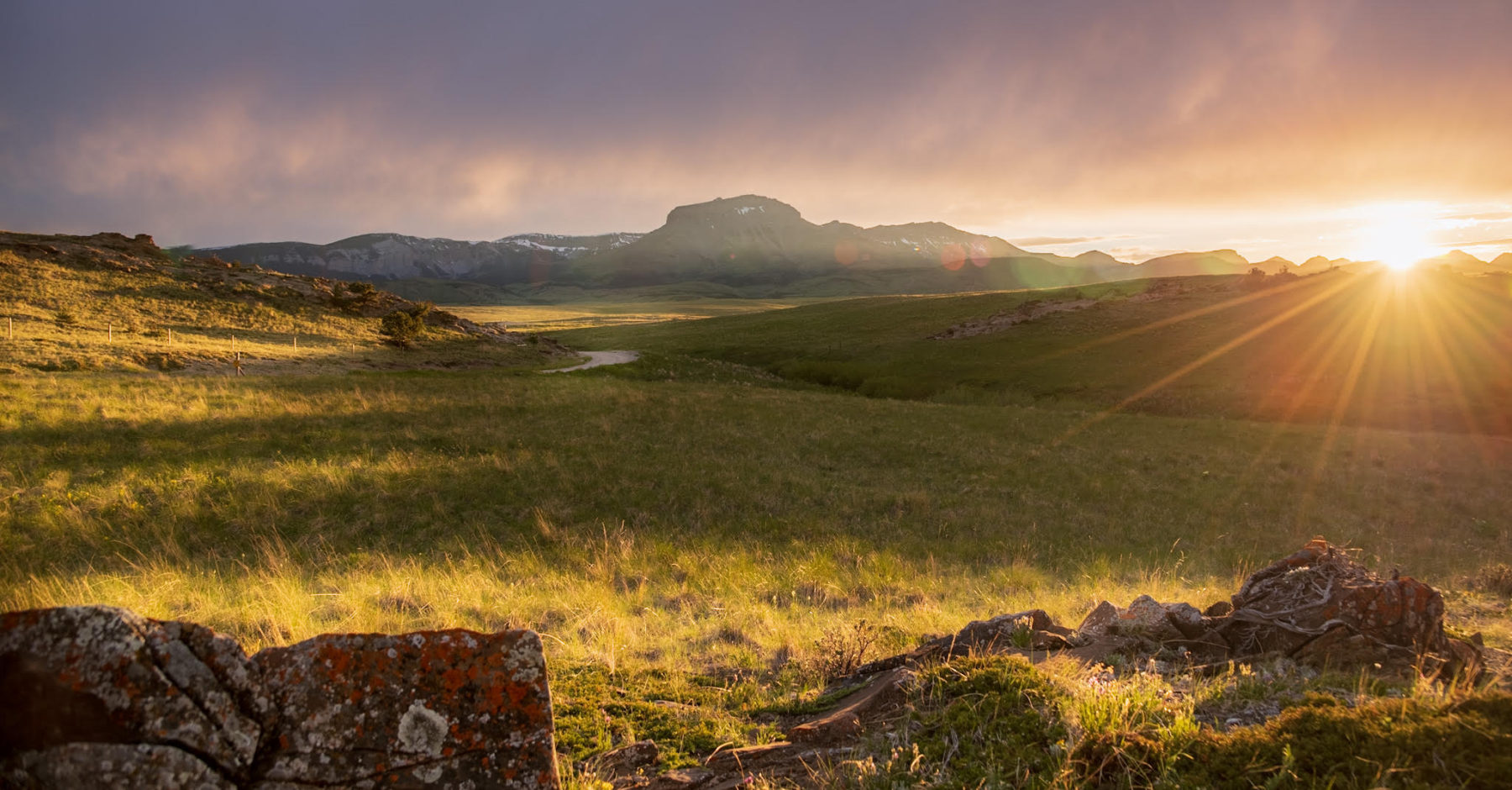
Liz Moore is the Executive Director of the Montana Nonprofit Association, an organization whose mission is to “provide leadership for Montana’s nonprofit sector and partner with charitable nonprofits to promote a sustainable, networked, and influential sector.” Founded in 2001, the MNA provides capacity, resources, and networking opportunities that allow Montana’s diverse and numerous nonprofit organizations to increase their effectiveness and better serve the communities and citizens of Montana. As you’ll hear in this conversation, Liz loves Montana and has devoted her career to the service of others, and her passion for making her home state an even better place is both inspiring and infectious.
As some of you may know, my full-time job is in the nonprofit sector– I’m the Conservation Director at a regional land trust in southeastern Colorado. Prior to moving into the nonprofit sector, I spent all of my career in the business world. But despite serving on several nonprofit boards and advisory committees, I still did not fully understand the critical role of nonprofits, especially in the West. It wasn’t until I was a year or so into my nonprofit conservation work that I realized just how critical nonprofits are to the functioning of society in the West. Nor did I understand how they complement the work of businesses and governmental entities. So I was thrilled to have Liz join me to discuss all of these issues, and I hope that you, the listener, will gain a deeper appreciation for why nonprofits are so important here in the West.
Liz and I connected virtually and had a wide-ranging conversation about the invaluable role of nonprofits in Montana and beyond. We started out discussing why Montana has such a large number of nonprofits per capita, and why Montana’s unique geography makes nonprofits such an essential part of the culture. We also discussed why Montanans are more involved in the community than what you see in many other regions of the United States. We talked a lot about COVID’s impact on the rural communities of Montana and how nonprofits were uniquely positioned to provide immediate and long-term relief to the unprecedented challenges created by the pandemic. We discussed Liz’s work on Montana’s Coronavirus Relief Task Force, and why she was asked to serve under two different governors, one Democrat and one Republican. We talk about how political polarization is affecting the nonprofit sector, and the importance of identifying and focusing on common ground rather than differences. We also discuss Liz’s upbringing in eastern Montana, her thoughts on what makes a successful nonprofit, her passion for photography, and much more.
I can’t thank Liz enough for taking the time to share all of her wisdom and insights about this important yet often not fully understood topic. You’ll learn a lot from this episode, so I hope you enjoy!
Header photograph by Liz Moore Photography, headshot courtesy of Liz
—
Download on Apple Podcasts
—
Download on Spotify
—
Download on Google Podcasts
—
Download on Overcast
—
This episode is brought to you by The Arthur M. Blank Family Foundation and its Montana-based AMB West Philanthropies, both of which embody the values-based approach to philanthropy and business of their Chairman Arthur M. Blank
EPISODE NOTES
Topics Discussed:
- 4:00 – Liz describes the Montana Nonprofit Association
- 6:00 – Liz talks about the nonprofit sector in Montana
- 8:30 – Liz explains what the high concentration of nonprofits in Montana means for the sector
- 10:45 – Liz talks about how COVID-19 impacted her work and the work of Montana nonprofits
- 13:30 – Liz explains why some nonprofits saw success during the pandemic and why others did not
- 17:30 – Liz discusses nonprofit lessons learned during the pandemic
- 20:00 – Liz explains some of the challenges facing the nonprofit workforce and why employee retention is so difficult in that sector
- 22:45 – Liz discusses some potential, if difficult avenues for addressing the challenges facing the nonprofit sector
- 26:00 – Liz gives some examples of nonprofit organizations and staff giving their best during the pandemic
- 30:00 – Liz explores the concept of generosity with respect to the nonprofit sector and explains where she saw Montana nonprofits exhibit generosity during the pandemic
- 33:00 – Liz describes how the current political/cultural climate impacts the nonprofit sector
- 40:30 – Liz talks about where she sees the nonprofit sector going in the coming years
- 43:45 – Liz identifies characteristics of successful nonprofits
- 46:00 – Liz discusses her background
- 50:00 – Liz gives advice for people facing forks in the road regarding their careers
- 53:00 – Liz explains how she became interested in photography
- 54:30 – Liz’s book recommendations
- 57:00 – Liz’s parting words of wisdom
Information Referenced:
- Montana Nonprofit Association (MNA)
- Liz Moore Photography
- Rocky Mountain Elk Foundation
- Helena Symphony
- The Myrna Loy
- Matt Pierson
- Montana Coronavirus Task Force
- Governor Steve Bullock
- Governor Greg Gianforte
- American Rescue Plan Act
- Miles City, MT
- Fromberg, MT
- Prickly Pear Land Trust
- Mary Hollow
- Governance as Leadership by Richard P Chait
- Gentlemen in Moscow by Amor Towles
- The Lincoln Highway by Amor Towles
- Leadership: In Turbulent Times by Dorris Kearns Goodwin
- Atomic Habits by James Clear
- Arthur M. Blank Family Foundation
- AMB West Philanthropies
Enjoy this episode? Then you might like these too:
- Shane Doyle – Reverence for the Past, Hope for the Future
- Matt Pierson – Finding New Solutions for Food Insecurity
- Lesli Allison & Tuda Libby Crews – Durable Conservation in the West… and Beyond
- Antonia Malchik – Exploring Culture & Complexity
- Dr. David Hewitt – The Science of Wildlife Conservation
- NEW WEST DISPATCH – Marci McLean & Cora Neumann on COVID’s Impact on Native Communities
- Jessica Wahl Turner – Outdoor Recreation & Rural Economies
- Carlos Fernandez – The Power of Partnerships
- Juanita Vero – A Deep Love of Place
- Gabe Vasquez – Advocate for Equity in the Outdoors
Kate Mannix – A Legacy of Land Stewardship
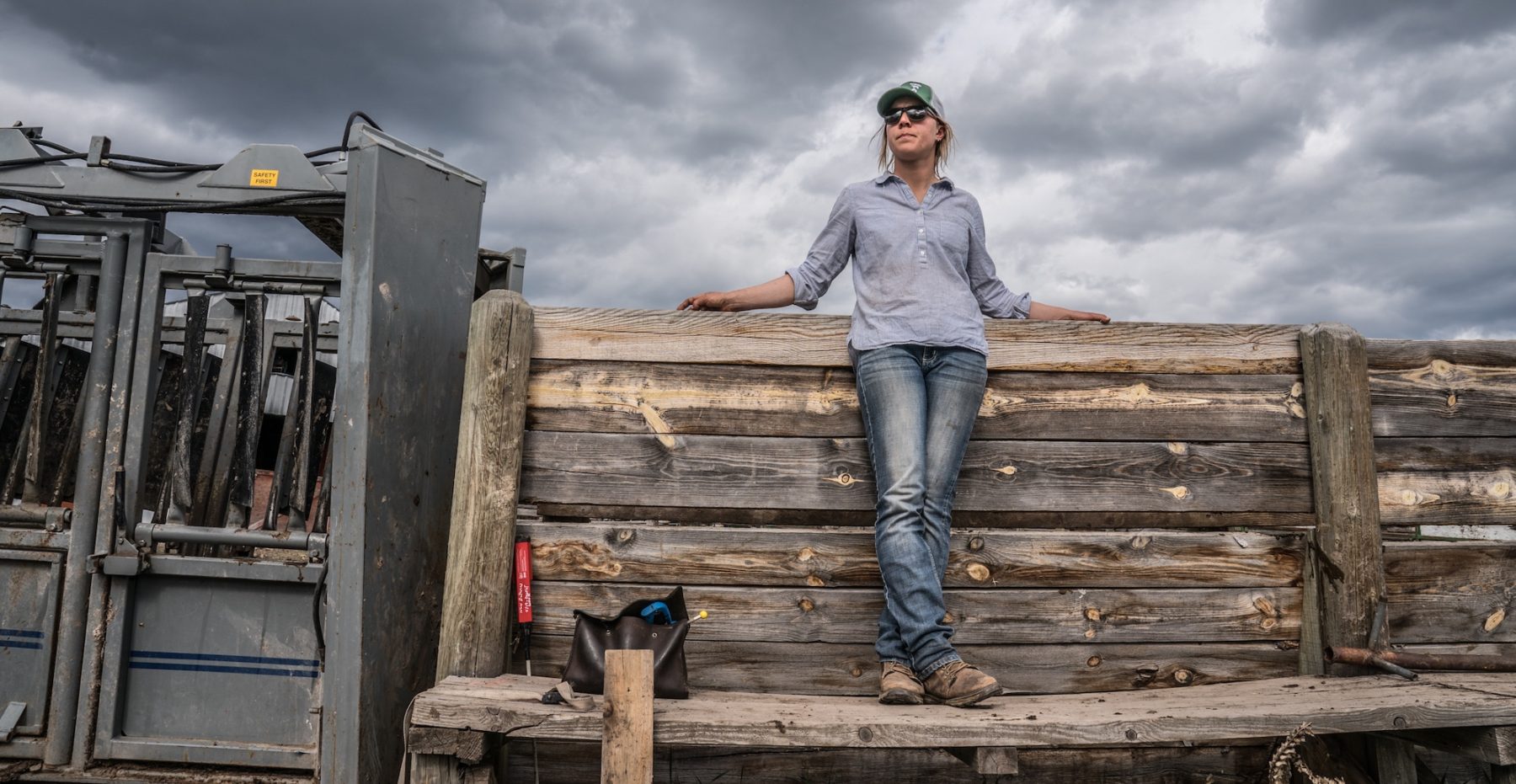
Kate Mannix is a rancher who works alongside her family on the Mannix Ranch in Montana’s Blackfoot Valley. The Mannix family has been ranching and stewarding their family ranch since 1882, back when Timothy Benjamin Mannix purchased the land from the Northern Pacific Railroad. For generations, the Mannix family has served as loyal caretakers of this spectacular landscape, and, over the years, they have evolved their business and land management approaches so as to continuously improve the ranch’s soil, water, flora, and fauna.
Kate was born and raised in California, but moved to Montana for graduate school, where she fell in love with both ranching and the Rocky Mountains. A few years later, she was accepted as an apprentice into the Quivira Coalition’s New Agrarian Program, a unique program that connects aspiring farmers and ranchers with experienced regenerative agriculture practitioners throughout the West. After a stint in New Mexico, she eventually found her way to the Mannix Ranch, where she fell in love with Bryan Mannix, who is now her husband. So today, Kate is officially a Mannix and is an invaluable part of this storied ranching family.
Kate and I connected virtually and chatted about everything from the business of ranching to her favorite books, with a lot of fascinating topics in between. We started out by discussing the history of the Mannix Ranch and how her family has managed to maintain such a successful family business for so many generations. We talk about challenges facing her ranch and the business of ranching, and the importance of land conservation and regenerative practices for the business’s sustainability. We talk about her time with Quivira, her stint as a vegan, her current love of hunting, and her family’s thoughts on her career path. She also shares some inspiring and instructive thoughts on her recent battle with cancer, and some of the lessons she learned from the scary, life-change experience. We discussed a lot, so please check out the episode notes for a full list of everything we covered.
I’ve wanted to have Kate on the podcast for quite some time now, so I greatly appreciate her making the time to chat. This was an educational and inspiring episode, so I hope you enjoy.
Photos courtesy of Kate Mannix
This episode is brought to you thanks to the generous support of Ranchlands.
Visit www.ranchlands.com to learn more about their top-notch vacations, leather goods and apparel, or to explore their excellent blog, the “Ranchlands Review.”
THANK YOU, Ranchlands!
—
Download on Apple Podcasts
—
Download on Spotify
—
Download on Google Podcasts
—
Download on Overcast
EPISODE NOTES
Topics Discussed:
- 5:10 – Kate walks us through the family genealogy related to the Mannix Ranch
- 7:40 – Kate describes the Mannix Ranch operations
- 9:40 – Kate explains why her family got involved in grass finishing their beef
- 14:10 – Kate talks about why she thinks the Mannix’s have been so successful in managing a multigenerational family business
- 18:00 – Kate describes some of the challenges she expects the ranch will face in the coming years
- 23:00 – Kate directs us to resources about the relationships between grazing, grasslands, and climate change
- 27:30 – Kate explains how she fell in love with ranching
- 35:30 – Kate talks about moving from her ranch work with Quivira in New Mexico to Mannix Ranch in Montana
- 39:00 – Kate discusses what her family thinks about her career path
- 40:00 – Kate explains why she stopped being a vegan
- 45:30 – Kate talks about when she started hunting
- 51:00 – Kate explains her connection with Red Ants Pants, a women’s workwear company
- 54:30 – Kate discusses cancer and chemotherapy
- 1:09:30 – Kate’s book recommendations
Information Referenced:
- Mannix Family and Ranch
- Rusty Sagebrush – Botanically Dyed Natural Textiles
- Blackfoot Valley
- Cow-calf operation
- Ranching For Profit School
- Bob Marshall Wilderness
- The Quivira Coalition
- Soil Carbon Cowboys
- Defending Beef, Nicolette Hahn Niman
- For the Love of Land, Jim Howell
- Jim Howell
- Daniela Ibarra-Howell
- Mescalero Apache
- Sacramento Mountains (New Mexico)
- Ranchlands
- Sieben Live Stock
- Cascade, MT
- Alexis Bonogofsky
- Quivira’s New Agrarian Program
- Regenerative agriculture
- Paleolithic diet
- Kate Kavanaugh
- Laird Hamilton
- Adam Gall
- Meat Eater, Steven Rinella
- Red Ants Pants
- Sarah Calhoun
- Girls Leadership Program, Red Ants Pants Foundation
- Phantom Ranch
- Between Two Kingdoms, Suleika Jaouad
- Pema Chödrön
- Black Lives Matter
- Lincoln’s Melancholy, Joshua Wolf Shenk
- Regarding Willingness, Tom Harpole
- Life on the Mississippi, Mark Twain
- Roughing It, Mark Twain
- Americanah, Chimamanda Ngozi Adichie
- Nnedi Okorafor
Enjoy this episode? Then you might like these too:
- Alexis Bonogofsky – Taking a Stand for the West
- Sarah Wentzel-Fisher – Conservation in the Radical Center
- Sarah King – Collaborative Conservation in the American Southwest
- Juanita Vero – A Deep Love of Place
- Heather Hansman – Demystifying Water in the West
- Kate Kavanaugh – Regeneration & Restoration
- Daniela Ibarra-Howell – Healing the Land Holistically
- Matt Pierson – Finding New Solutions for Food Insecurity
Visit the podcast page for a full list of episodes where you can filter episodes by topic and guests’ vocations.
Alvin Dedeaux – Living His Dream
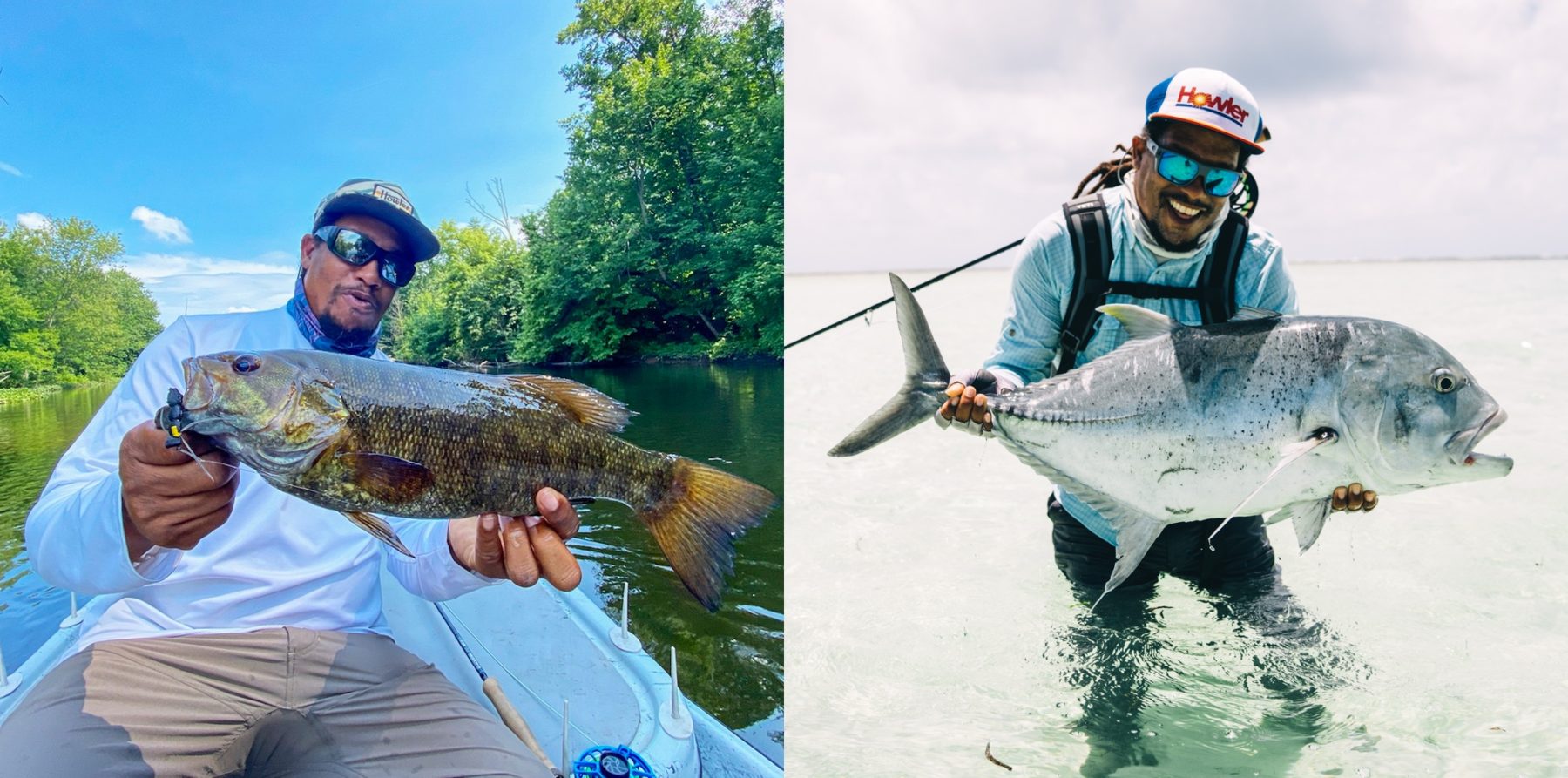
Alvin Dedeaux is a renowned Austin-based fly fishing guide who is one of the Lone Star State’s most sought-after experts in the pursuit of everything from Guadelupe Bass in Central Texas to Redfish on the Texas coast. Alvin is an ambassador for well-known brands such as Howler Brothers and Yeti, and he’s twice been a finalist for Orvis’s Guide of the Year award. And on top of all of that, Alvin produces informative and entertaining videos on his popular Youtube channel, where anglers of all experience levels can learn from Alvin’s decades of experience.
Alvin was born and raised in Houston, and he has been a committed fisherman, hunter, and all-around outdoorsman for as long as he can remember. At age 12, he began teaching himself to fly fish, and what started as a hobby quickly became one of the most important aspects of his life– a passion that remains the centerpiece of his personal and professional lives to this day. Alvin’s story has many fascinating chapters, and each one could be its own three-hour podcast episode– he’s owned a construction company, been a singer in a very successful touring band, worked at the world-famous Austin Angler, and is now the head guide and owner All Water Guides. With a background like that, it’s no surprise that Alvin has become one of the most well-known fly guides in the country.
Alvin and I connected virtually and had a fun hour-long conversation about all aspects of his life and career. We started out chatting about his upbringing in Texas, and how fly fishing has been a mainstay in his life throughout all its various stages. We talk about his decision to leave college to pursue life as an entrepreneur, and his path to becoming professionally involved in fishing. We discuss his formative years working at the Austin Angler, and how that particular shop started the careers of some of the country’s most well-respected guides. He offers excellent insights into finding one’s dream job, the importance of conservation in Texas, and how COVID has affected Texas’s valuable fishing resources. We also discuss his popular Youtube channel and why he devotes so much time and energy toward sharing his wisdom. And, as you’d expect, Alvin offers some excellent book and music recommendations.
I loved talking to Alvin, and felt like we only scratched the surface of his wildly unique life. Be sure to check on the episode notes for tons of links to everything we discussed. Hopefully we can do a part 2 at some point in the future, but, until then, enjoy this fun conversation with Alvin Dedeaux!
Photos courtesy of Alvin Dedeaux
—
Download on Apple Podcasts
—
Download on Spotify
—
Download on Google Podcasts
—
Download on Overcast
EPISODE NOTES
Topics Discussed:
- 4:00 – Alvin’s background and childhood
- 6:00 – Alvin discusses how fly fishing entered his life
- 8:00 – Alvin talks about his decision to leave college
- 16:00 – Alvin talks about his job at the Austin Angler, his first job in the fly fishing industry
- 23:15 – Alvin discusses how he began guiding in Colorado
- 27:45 – Alvin talks about how long it took for him to feel like he had a sustainable business going in the fly fishing industry
- 32:00 – Alvin explains why he became interested in the use of social media for his business
- 37:00 – Alvin talks about finding the one thing you’d “eat shit all day” for (aka dream jobs)
- 45:00 – Alvin explains how COVID-19 impacted his business and limited fishery resources
- 51:00 – Alvin gives advice for anybody to become more conservation minded
- 53:45 – Alvin talks about how he got connected with Howler Brothers
- 57:45 – Alvin’s book and music recommendations
Information Referenced:
- Alvin Dedeaux
- Sunfish
- Eagle Claw
- Fly rod weighting system
- Martin
- University of Texas
- Texas A&M
- Austin Angler
- JT Van Zandt
- Dave Mangum
- Jim Adams
- Mina Hemingway
- Ernest Hemingway
- Adams & Sons fly shop
- Bozeman Angler
- Simms
- Joe Robinson
- Dave and Emily Whitlock
- Zap-a-gap
- Texas Hill Country
- Mike Thompson
- Yvon Chouindard
- Vermillion Brothers
- Taimen fish (Mongolia)
- Kamchatka, Russia
- Vail, CO
- Bill Perry
- Fly Fishing Outfitters
- Orvis
- Beaver Creek, CO
- Texas Parks and Wildlife Foundation
- Jay Kleberg
- Rick Wittenbraker
- Howler Brothers
- Yeti
- Banning Collins
- Empire of the Summer Moon by S. C. Gwynne
- John Adams by David McCullough
- Benjamin Franklin by Walter Isaacson
- Blood and Thunder by Hampton Sides
- Slayer
- Metallica
- Soundgarden
- Snoop Dogg
- Bob Marley
Enjoy this episode? Then you might like these too:
- Reflections On My First Elk Hunt, with Adam Gall
- Matt Barber & Joel Doub, Part 2 – Tales from an Entrepreneurial Adventure
- Monte Burke – Exploring Obsession
- Callan Wink – A New Voice for the New West
- Hal Herring – A Man of Words & Wild Places
- Mark Kenyon – A Passion for Public Lands
- Chris Dombrowski – Words, Water & the West
- Hampton Sides – Live at the Aspen Institute
Visit the podcast page for a full list of episodes where you can filter episodes by topic and guests’ vocations.
Riddy Arman – Artistic Authenticity
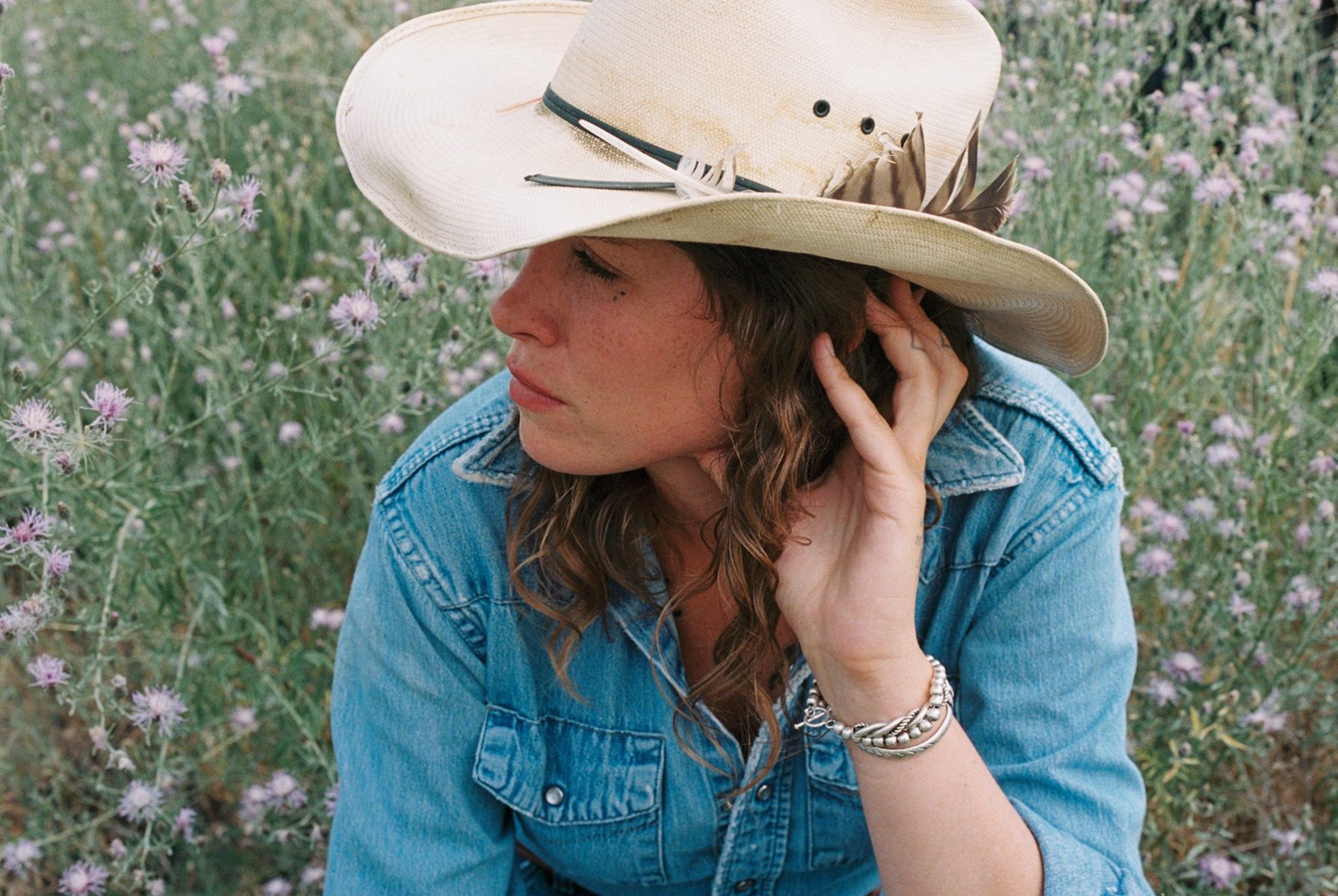
Riddy Arman is a singer-songwriter who lives in Montana’s Mission Valley, a rural agricultural community in the state’s northwestern corner. Riddy’s self-titled debut album was released in 2021 and has received praise from renowned institutions such as Rolling Stone, as well as from many highly respected fellow musicians, including Colter Wall. Riddy and her music are highly influenced by the wide-open spaces of Montana, and she brings a deep level of authenticity and emotion to all aspects of her craft– from the lyrics, to the melodies, to her live performances.
Born and raised in Ohio, Riddy left home after high school and began a long, winding, and interesting journey that took her to North Carolina for a year of college, to New York City where she worked as a model, and on an extended hitchhiking and train-hopping journey around the United States, just to name a few. She began writing and playing music in earnest while living on a farm in rural Virginia and eventually moved to Montana, a place she had long felt drawn toward. After a lot of hard work, creative experimentation, and determination, Riddy has figured out how to cultivate a successful music career far from the hustle and bustle of Nashville and deeply connected to the Montana landscapes that she loves.
Riddy and I connected earlier this week and had a fascinating conversion about everything from her winding career path to her current success in the music business. We started out talking about her childhood in Ohio and how she unexpectedly ended up in New York City working as a model. We discussed some of her craziest experiences from traveling around the United States and when and why she decided to get serious about music. She talks about her commitment to be authentic, how she manages to stay calm, even when she’s extremely nervous, and how she has managed to build a music career so far away from Nashville. We discuss the value of quiet time, mindfulness, the importance of mentors, favorite books, and much more.
Be sure to check out the episode notes for links to everything we discuss. Hope you enjoy.
Photos by Elisabeth Kokesh
This episode is brought to you thanks to the generous support of Ranchlands.
Visit www.ranchlands.com to learn more about their top-notch vacations, leather goods and apparel, or to explore their excellent blog, the “Ranchlands Review.”
THANK YOU, Ranchlands!
—
Download on Apple Podcasts
—
Download on Spotify
—
Download on Google Podcasts
—
Download on Overcast
EPISODE NOTES
Topics Discussed:
- 5:30 – Where Riddy grew up
- 7:50 – Riddy’s connection to agriculture
- 10:15 – Dropping out of college
- 12:30 – Moving to New York City and modeling
- 16:00 – Music and writing while in NYC
- 17:15 – Decision to leave NYC
- 19:00 – Traveling, riding trains, hitchhiking
- 20:30 – Raised to be independent
- 23:00 – Lessons learned from the adventures of traveling
- 27:00 – Moving to Virginia, focusing on agriculture
- 29:00 – Settling down, connecting with the land
- 32:45 – Finding value in quiet time
- 34:15 – Sticking with music for good
- 35:30 – Riddy’s writing process
- 37:45 – Transition to performing
- 40:45 – Dealing with nervousness
- 44:00 – Breathing and other ways to calm down
- 47:15 – Riddy’s deep connection with Montana
- 51:30 – Building a music career from rural Montana
- 56:30 – Process of being authentic and putting herself out there
- 58:30 – Artists that Riddy admires
- 1:01:45 – Advice for creatives
- 1:03:50 – Favorite books
Information Referenced:
- Riddy Arman
- Maumee, Ohio
- Warren Wilson College
- Swannanoa, NC
- Chris Douglas episode
- Freedom by Sebastian Junger
- Ranchlands Review article by Anna LoPinto
- Wim Hof
- What Doesn’t Kill Us by Scott Carney
- Mission Valley, Montana
- Chris Acker
- La Honda Records
- Gillian Welch
- Avett Brothers
- Toa of Equus by Linda Kohanov
- Ranier Maria Rocka
Enjoy this episode? Then you might like these too:
- Shane Doyle – Reverence for the Past, Hope for the Future
- Antonia Malchik – Exploring Culture & Complexity
- Nickolas Butler – The Craft of Creativity
- Kelsey Johnson – Chasing Her Artistic Ambitions
- Iris Gardner – Living with Intention
- Live in Bozeman!
- Jessica Ilalaole – Creating Home in the High Desert
- Morgan Irons – Finding Her Muse
Visit the podcast page for a full list of episodes where you can filter episodes by topic and guests’ vocations.
Yemi Mobolade – Community Builder
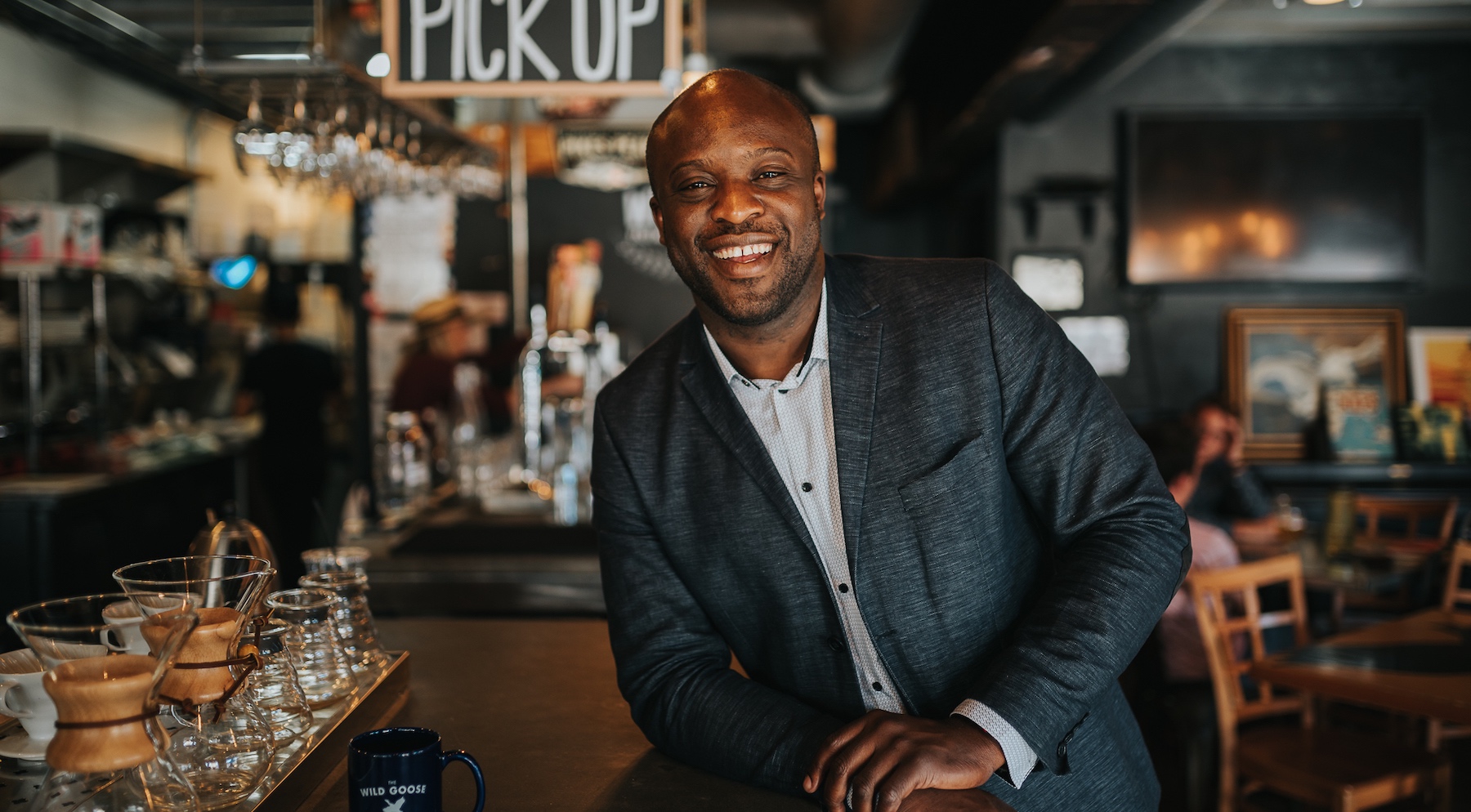
Yemi Mobolade is an entrepreneur, public servant, and community leader who devotes his seemingly limitless energy toward the betterment of Colorado Springs, Colorado. Born and raised in Nigeria, Yemi immigrated to the United States for college and eventually landed in Colorado Springs, where he has fully devoted himself to serving the community. He’s a co-founder and partner in two wildly successful restaurants, he’s served in various capacities within the city’s government and economic development arms, and he’s deeply involved in numerous non-profit organizations. On top of all of that, he’s a devoted husband and father of three beautiful children.
Yemi and I are neighbors, and our kids have been classmates and buddies for several years– so I’ve had the opportunity to personally interact with him in a variety of settings over a long period of time. Ever since first meeting Yemi, I have been extremely impressed with his positivity, leadership skills, and deep commitment to our community. Whether he’s touting the economic upside of doing business in Colorado Springs or figuring out creative solutions for his restaurants to thrive in the pandemic, I’ve always been intrigued by Yemi– everything from his personal backstory to why he is so obsessed with community building. So I was happy to finally sit down with him to discuss all of this.
We met up at his office on a Sunday afternoon for an inspiring conversation about everything from his early days in Nigeria to his upcoming plans to run for mayor of Colorado Springs. We start out discussing his move to the United States from Nigeria, and he talks about his perceptions of America from the outside looking in. We talk about his education, his commitment to his faith, and how he spent parts of his early career starting churches in various parts of the United States. We discuss his deep love for the city of Colorado Springs, and why he has decided to throw his hat in the ring for mayor. We discuss his heroes, his favorite books on leadership, and how his wife and children positively influence his desire to serve.
I really appreciate Yemi taking the time to chat, and I greatly appreciate his commitment to serving our community. There are lots of important lessons to be learned from Yemi, so I hope you enjoy.
Photos courtesy of Yemi Mobolade
—
Download on Apple Podcasts
—
Download on Spotify
—
Download on Google Podcasts
—
Download on Overcast
EPISODE NOTES
Topics Discussed:
- 4:45 – Yemi’s childhood in Nigeria
- 11:45 – What it was like when Yemi came to the US.
- 13:15 – Yemi’s journey of self-discovery
- 18:15 – How Yemi ended up in Colorado Springs
- 13:30 – Why Yemi appreciates and builds community
- 25:30 – Yemi’s political plans
- 31:45 – How Yemi plans to maintain his ideals within politics
- 35:00 – Yemi’s goals for the growth of Colorado Springs
- 39:00 – The impact of Yemi’s children on his life
- 44:15 – Leaders that Yemi admires
- 56:30 – Yemi’s book recommendations
Information Referenced:
- Lagos, Nigeria
- South Bend, Indiana
- Christian Missionary Alliance
- Good Neighbors Meeting House
- The Wild Goose Meeting House
- COS I Love You
- El Pomar Foundation Fellowship
- Abraham Lincoln
- Doris Kearns Goodwin
- Joshua Wolf Shenk
- Theodore Roosevelt
- Sebastian Junger
- Adam Grant
- Delia Owens
- J.K. Rolling
Enjoy this episode? Then you might like these too:
- Shane Doyle – Reverence for the Past, Hope for the Future
- Matt Pierson – Finding New Solutions for Food Insecurity
- Juanita Vero, Part 2 – A Deep Desire to Serve
- James Decker – Inspired Leadership for the New West
- Gabe Vasquez – Advocate for Equity in the Outdoors
- Becky Edwards – Amplifying the Power of Women in the West
- Jason Gardner – A Life of Purpose & Service
Visit the podcast page for a full list of episodes where you can filter episodes by topic and guests’ vocations.
Chris Burkard, Part 2 – Seeking Beauty Through Adventure
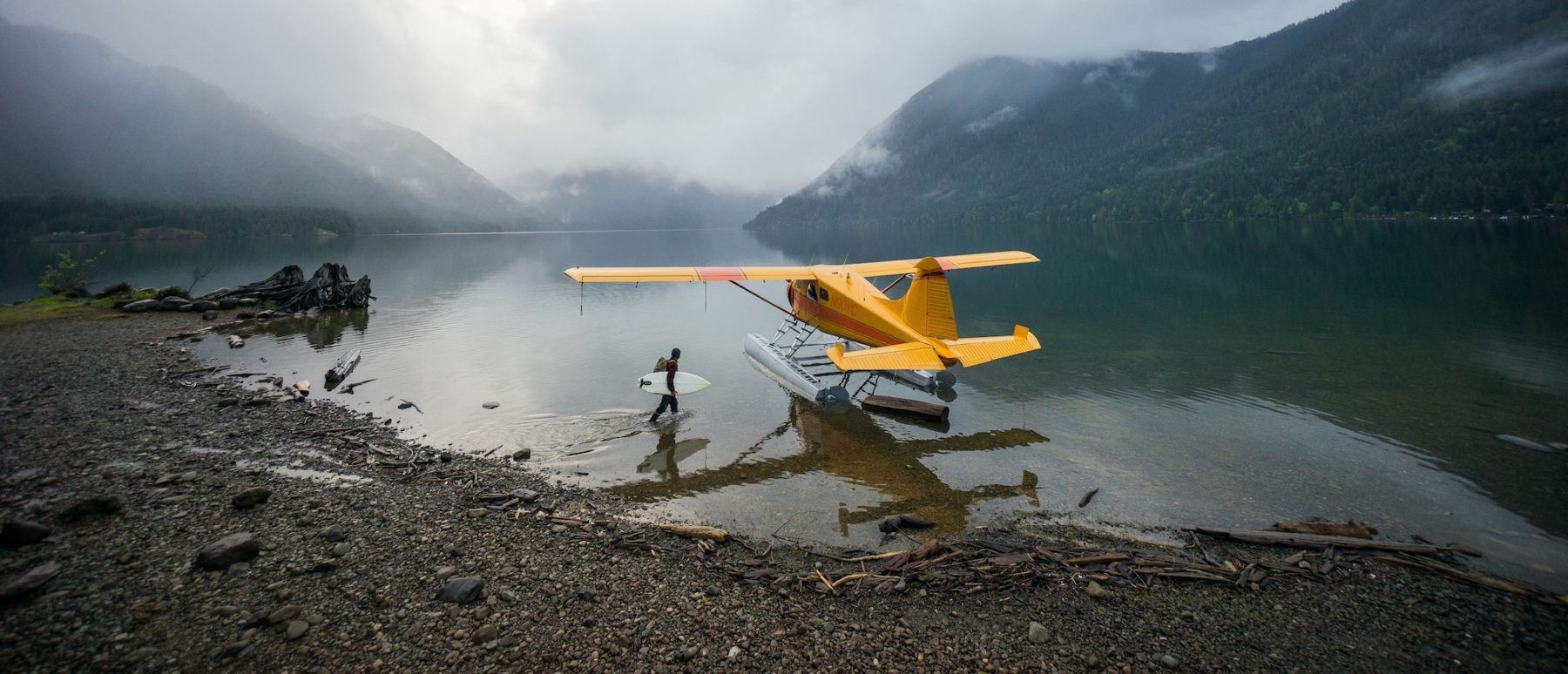
Chris Burkard is a prolific photographer, filmmaker, and author who is known for diving headfirst into epic adventures, documenting them with his camera, and producing one-of-kind stories that resonate deeply with millions of people around the world. He’s bikepacked across Iceland in winter, scouted cold-water surf breaks in British Columbia, and explored some of the lesser-known corners of the American West—just to name a few. In all his work, Chris combines his abundant positive energy with curiosity and authenticity, which has earned him the admiration of fellow accomplished artists, well-known brands, and nearly four million Instagram followers.
Earlier this week, Chris released his newest book titled Wayward– a collection of some of his best and never-before-seen photographs from some of the wildest places on earth. Wayward also features extensive written stories that detail his fascinating career path and the challenges, mistakes, and adventures that made him the artist he is today. I was lucky enough to receive an advanced copy of the book, and I read it in one sitting and thoroughly enjoyed it. The photographs are obviously stunning, but what I really appreciated was Chris’s willingness to share the many lessons he’s learned along his professional journey– lessons that I (and maybe you) can apply to your own creative endeavors.
If you’ve been listening to Mountain & Prairie for the past few years, then you surely remember my first conversation with Chris during the first few weeks of the pandemic. I was thrilled to have Chris join me again, this time for an inspiring conversation about Wayward, creativity, adventure, fatherhood, and more. We talked about what he’s learned during the pandemic, the process of writing Wayward, and why, in this high-tech world, he remains committed to publishing physical books. We discuss the importance of being yourself, how he overcomes self-doubt, and who he trusts to give him honest feedback. Chris also talks about how he evaluates risk, discusses how working with Patagonia helped him to find his voice as a photographer, explains his passion for sharing his experiences with others, and much more. Be sure to check the episode notes for a full list of everything we discuss and links to all the information.
A huge thanks to Chris for making the time to chat with me again, especially during such a busy travel schedule. And whether you’re interested in beautiful photos or learning lessons from an accomplished creative, I encourage you to check out Wayward.
Thanks for listening. Hope you enjoy.
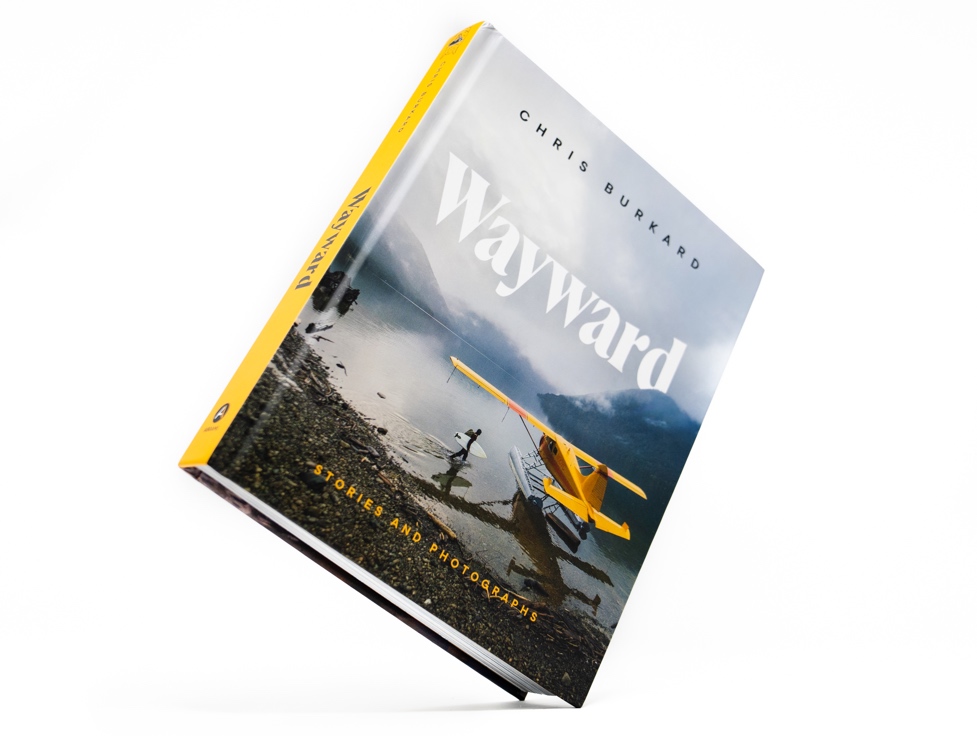
Photos courtesy of Chris Burkard
—
Download on Apple Podcasts
—
Download on Spotify
—
Download on Google Podcasts
—
Download on Overcast
—
EPISODE NOTES
Topics Discussed:
- 5:00 – How the pandemic has been for Chris and his family
- 9:25 – Process of writing the book
- 14:00 – Thoughts when looking back at his early work
- 17:30 – Early challenges and localism
- 23:45 – Patagonia’s role in Chris’s artistic evolution
- 27:40 – Importance of having the confidence to be yourself
- 31:30 – Overcoming self-doubt
- 33:45 – People Chris trusts to give honest opinions
- 36:45 – How Chris transitions from hardcore adventures back into “real life”
- 40:30 – Reevaluation of risk as he gets older
- 42:40 – Lessons from suffering
- 44:00 – Why Chris continues to focus his creative energy on books
- 54:00 – Importance of sharing the experiences with others
- 58:30 – Projects in the works
Information Referenced:
- Chris Burkard
- Wayward by Chris Burkard [Amazon / Bookshop]
- The Constant Gardener by John Le Carre [Amazon / Bookshop]
- California Surf Project by Chris Burkard [Amazon / Bookshop]
- Patagonia
- Surfer Magazine
- Keith Ladzinski
- Distant Shores by Chris Burkard [Amazon / Bookshop]
- John Muir
- Ansel Adams
- Edward Weston
- Edward Abbey
- Jimmy Chin
- There and Back by Jimmy Chin [Amazon / Bookshop]
- Corey Rich
- Paul Nicklen
- Hampton Sides
Enjoy this episode? Then you might like these too:
- Pete McBride – A Passion for Water & Wild Places
- Hampton Sides, Part 3 – Tales from a Most Excellent Adventure
- Peter Heller – Chasing the Flow
- Iris Gardner – Living with Intention
- Heather Hansman, Part 2 – The Fascinating Story of Skiing’s Past, Present, & Future
- Kelsey Johnson – Chasing Her Artistic Ambitions
- Duke Phillips IV – Living with the Land
Reflections On My First Elk Hunt, with Adam Gall
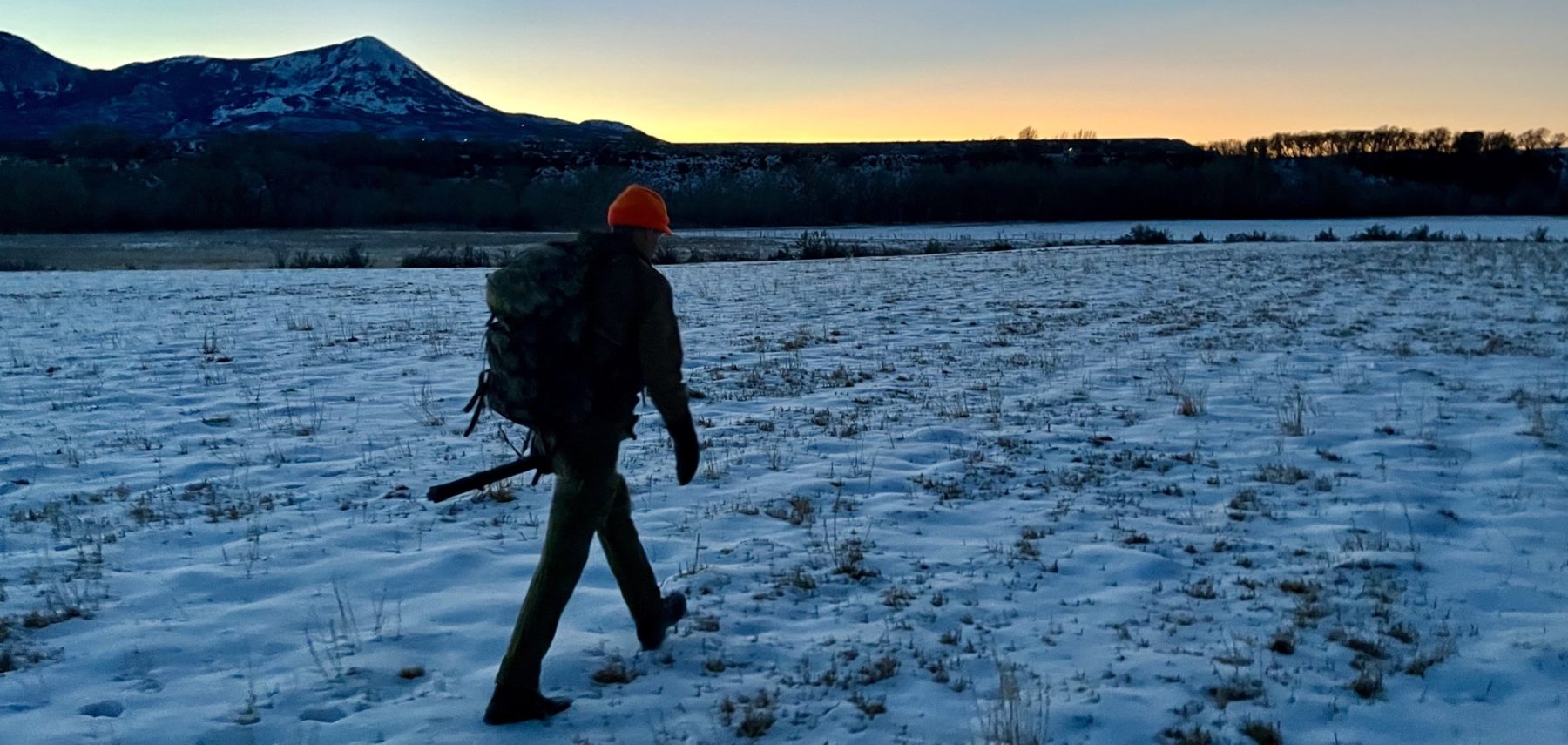
Longtime Mountain & Prairie listeners will remember Adam Gall– he’s a Colorado-based hunting guide who, along with his wife Ana, owns Timber to Table Guide Service. Adam is a highly regarded expert in the pursuit of elk and mule deer, and he offers a variety of outfitting services ranging from public land hunts for experienced hunters to private land hunts for beginners. In my first episode with Adam, we discussed his career path to guiding, which included stints as a wolf biologist and science teacher, as well as his advocacy for public lands and wildlife conservation.
In early January, I had the pleasure of joining Adam for my first-ever elk hunt, and this episode is a discussion about that extremely powerful experience. I had wanted to hunt elk ever since moving to the Rocky Mountains back in 2005, but I never took the necessary steps to learn how to do it. While I do have limited experience with bird hunting, I had zero experience hunting with a rifle. The idea of starting big game hunting from scratch was intimidating and overwhelming– plus, I have way-too-many other hobbies that fill my time– so elk hunting has been on the back burner for more than 16 years. But after getting to know Adam, learning about his skills as a teacher, and admiring his calm demeanor and reverence for wildlife, I decided that he was just the person to introduce me to the sport of elk hunting.
To be completely transparent, I was very nervous about all aspects of the hunt– my shooting proficiency, my ability to kill the elk quickly, quartering the animal, and processing the meat. I have the utmost respect for the skills required to be a responsible and effective big game hunter, so I was intent on approaching the entire endeavor with a high level of seriousness and focus. From the moment I arrived in Hotchkiss until we had processed the last pound of meat, Adam and Ana were exceptional teachers–we had a successful hunt and I left Hotchkiss with a new-found, life-changing appreciation for everything that is required to procure meat for my family.
The purpose of this episode is to provide instruction and insight for people like me– individuals who are interested in big game hunting and procuring meat but have no idea where or how to start. Even if you’ve never shot a gun, there will be useful information in this episode. Adam and I discuss all aspects of the hunt–from shooting practice at the gun range on the first day all the way to processing the meat into burger, steaks, and roasts four days later. I discuss the overwhelming emotions I felt after killing such a majestic animal, and the eye-opening experience of learning about specific cuts of meat with Ana. We discuss how Adam’s experience as a teacher makes him such an effective guide, and the importance of approaching hunting with respect, reverence, and curiosity. We talk about game management, food systems, private lands’ role in wildlife health, and much more.
I hope you enjoy this conversation as much as I did. Hopefully, it will give you the encouragement to pursue hunting if it is of interest to you. Hunting is obviously not for everyone, but as a person who eats and enjoys meat, I am very grateful to have had the opportunity to participate in all the tasks that are required to put clean, healthy meat on my family’s table.
Thanks again to Adam and Ana for the once-in-a-lifetime experience, and thanks to you for listening. Enjoy!
Photos by Ed and Adam
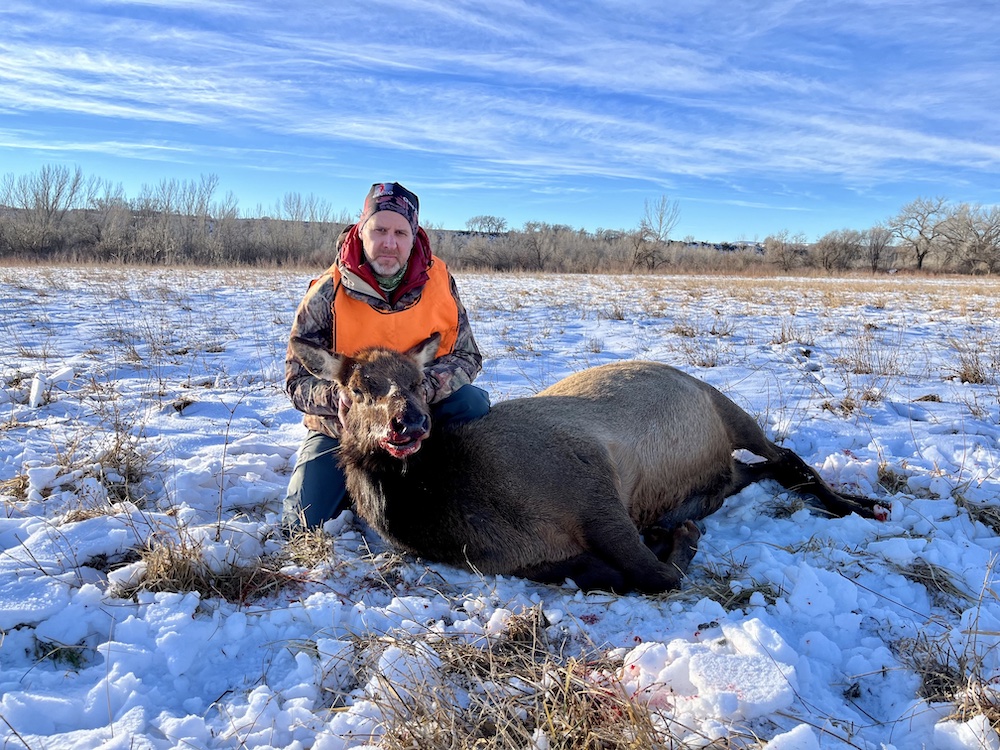
—
—
Download on Apple Podcasts
—
Download on Spotify
—
Download on Google Podcasts
—
Download on Overcast
—
EPISODE NOTES
Topics Discussed:
- 4:45 – Thanks to Adam and Ana
- 6:15 – Why Adam enjoys teaching first-time hunters
- 8:15 – Adam’s background as a teacher
- 10:30 – Balancing fun and seriousness
- 16:15 – Details of the beginner’s private land meat hunt
- 21:45 – Importance of game management on private lands
- 23:45 – Hunt preparation
- 32:15 – Morning of the hunt
- 34:45 – The kill
- 37:45 – Respect for the taking a life
- 44:45 – Quartering the animal and processing the meat
- 54:45 – A foundational shift in perspective
- 58:00 – Cooking resources and ideas
- 59:45 – Closing thoughts
Information Referenced:
- Adam’s first M&P episode
- Timber to Table Guide Service
- Dark Timber Lodge
- Hotchkiss, Colorado
- Paonia, Colorado
- Colorado Parks and Wildlfe
- Colorado Parks and Wildlife – Big Game Hunting
- Backcountry Hunters and Anglers
- Ryan Busse episode
- Kate Kavanaugh episode
- Buck, Buck, Moose: Recipes and Techniques for Cooking Deer, Elk, Moose, Antelope and Other Antlered Things by Hank Shaw – Amazon / Bookshop
Enjoy this episode? Then you might like these too:
- Ryan Busse – Standing His Ground
- Iris Gardner – Living with Intention
- Rachel VandeVoort – Harnessing the Power of Outdoor Recreation
- Dan Prenzlow – Generous Service, Humble Leadership
- Kate Kavanaugh – Regeneration & Restoration
- Mark Kenyon – A Passion for Public Lands
- Matt Skoglund – Adventures in Bison Ranching
- Chris Dombrowski – Words, Water & the West
- Jessica Wahl Turner – Outdoor Recreation & Rural Economies
Elliott Woods – Stories from Dangerous Places
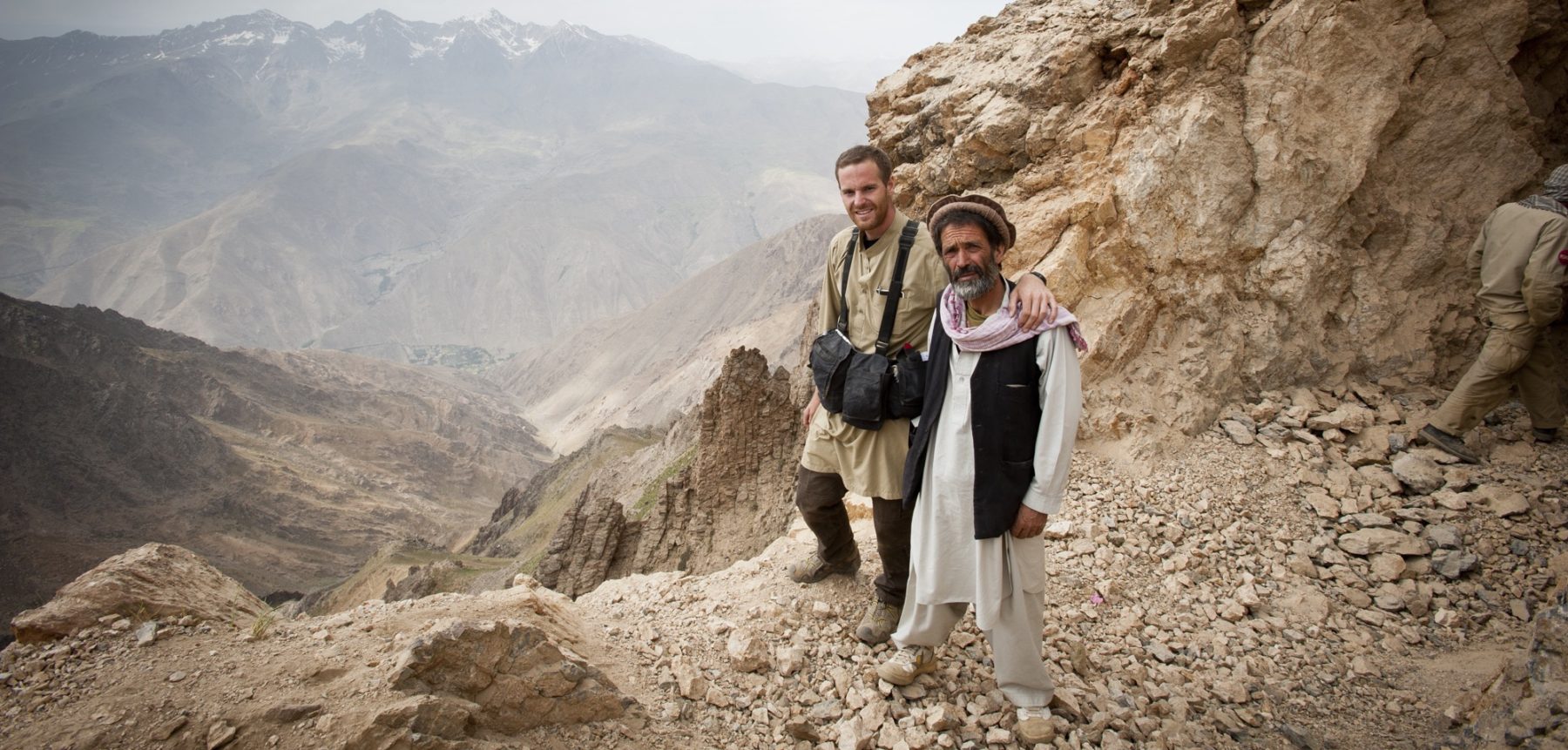
Elliott Woods is a Montana-based veteran and multimedia journalist who has reported for publications including Outside, The Wall Street Journal, The New York Times, and many more. His most recent project is a podcast called Third Squad, which tells the powerful story of “one journalist, 12 Marines and two decades of war.” Back in 2011, Elliott was an embedded journalist with a group of Marines who were positioned deep in one of Afghanistan’s most dangerous regions. Nearly a decade later, Elliott embarked on a cross-country road trip to reunite with the surviving members of the team and discuss how that violent deployment impacted their lives. Third Squad tells the stories of these Marines, offering raw insights into the impact of war on individual soldiers, both on the battlefield and back at home.
Elliott was born and raised on the east coast, and as a kid, he never had strong ambitions to join the military. However, after an unsuccessful stint in college left him lacking purpose and low on options, he decided to join the National Guard. Elliott was eventually deployed to Iraq, where he served for a year as an Army combat engineer. When Elliott had finished serving and returned to college at the University of Virginia, he approached his education with a new focus and purpose, and it was there that he discovered writing and journalism. As a journalist, Elliott has traveled everywhere from war-torn regions of the globe to well-known conflicts in the American West– from the Gaza Strip to the front lines of the Keystone XL Pipeline protests. Whether reporting on public lands, outdoor adventure, or war, Elliott brings focus and intensity to all of his projects.
Elliott and I met years ago, so it was great to reconnect and have an in-depth conversation about his life and career. We started out by discussing his upbringing in Maryland and Pennsylvania, and how he developed a love of the outdoors at an early age. We discuss his education, his failed first attempt at college, and his path to the military. We discuss his time in Iraq, his career as a journalist, and the origins of the Third Squad podcast. We talk about the current state of journalism, and Elliott discusses why he feels the need to cover stories that involve dangerous people and places. We talk about hero culture, the importance of having a purpose, how the natural world has been a healing force in his life, and Elliott offers up some excellent book recommendations.
I encourage all of you to check out Third Squad, as well as Elliott’s 2016 TED Talk that I reference in the conversation. There are links to everything in the episode notes. Thanks to Elliott for all of his hard work and for joining me for such an important conversation. Enjoy.
Photos courtesy of Elliott Woods.
—
Download on Apple Podcasts
—
Download on Spotify
—
Download on Google Podcasts
—
Download on Overcast
—
EPISODE NOTES
Topics Discussed:
- 4:00 – Elliott’s childhood and how he got into the military
- 12:00 – Elliott discusses what it was like having joined the military weeks before 9/11/2001
- 15:00 – Elliott talks about reintegrating to normal life as a student after his deployment in Iraq
- 22:30 – Elliott discusses the importance of having a mission in his life
- 29:00 – Elliott talks about why he disagrees with “hero culture” in the US
- 34:30 – Elliott talks about his mentality when writing about powerful or dangerous people
- 43:00 – Elliott talks about “solution journalism” and the need to highlight problems in journalism
- 53:45 – Elliott discusses the impact Montana and nature has had on him
- 58:15 – Elliott’s book recommendations
- 1:04:00 – Elliott’s parting words of wisdom
Information Referenced:
- Elliott’s podcast: Third Squad
- Elliott’s TED talk: Finding Fulfilment in the Aftermath of War
- Gaithersburg, MD
- Bethesda Naval Hospital
- Lewisburg, PA
- Susquehanna River
- Georgetown Prep
- Valley Forge Military Academy
- Fordham University
- Fort Leonard Wood
- Virginia Commonwealth University
- Saddam Hussein
- Mosul, Iraq
- University of Virginia
- Virginia Quarterly Review
- Mad Libs
- Greg Gianforte
- Sebastian Junger
- Existentialism
- Miguel de Cervantes Saavedra
- Absaroka-Beartooth Wilderness
- Livingston, MT
- Wilson Rawls
- Gary Paulsen
- Kurt Vonnegut
- Svetlana Alexievich
- Tim O’Brien
- Abe Streep
Enjoy this episode? Then you might like these too:
- Jason Gardner – A Life of Purpose & Service
- John Branch – Seeking the Extraordinary in the Ordinary
- Antonia Malchik – Exploring Culture & Complexity
- Ryan Busse – Standing His Ground
- George Hodgin – Mission-Driven Entrepreneur
- Hal Herring – A Man of Words & Wild Places
- Heather Hansman, Part 2 – The Fascinating Story of Skiing’s Past, Present, & Future
Heather Hansman, Part 2 – The Fascinating Story of Skiing’s Past, Present & Future
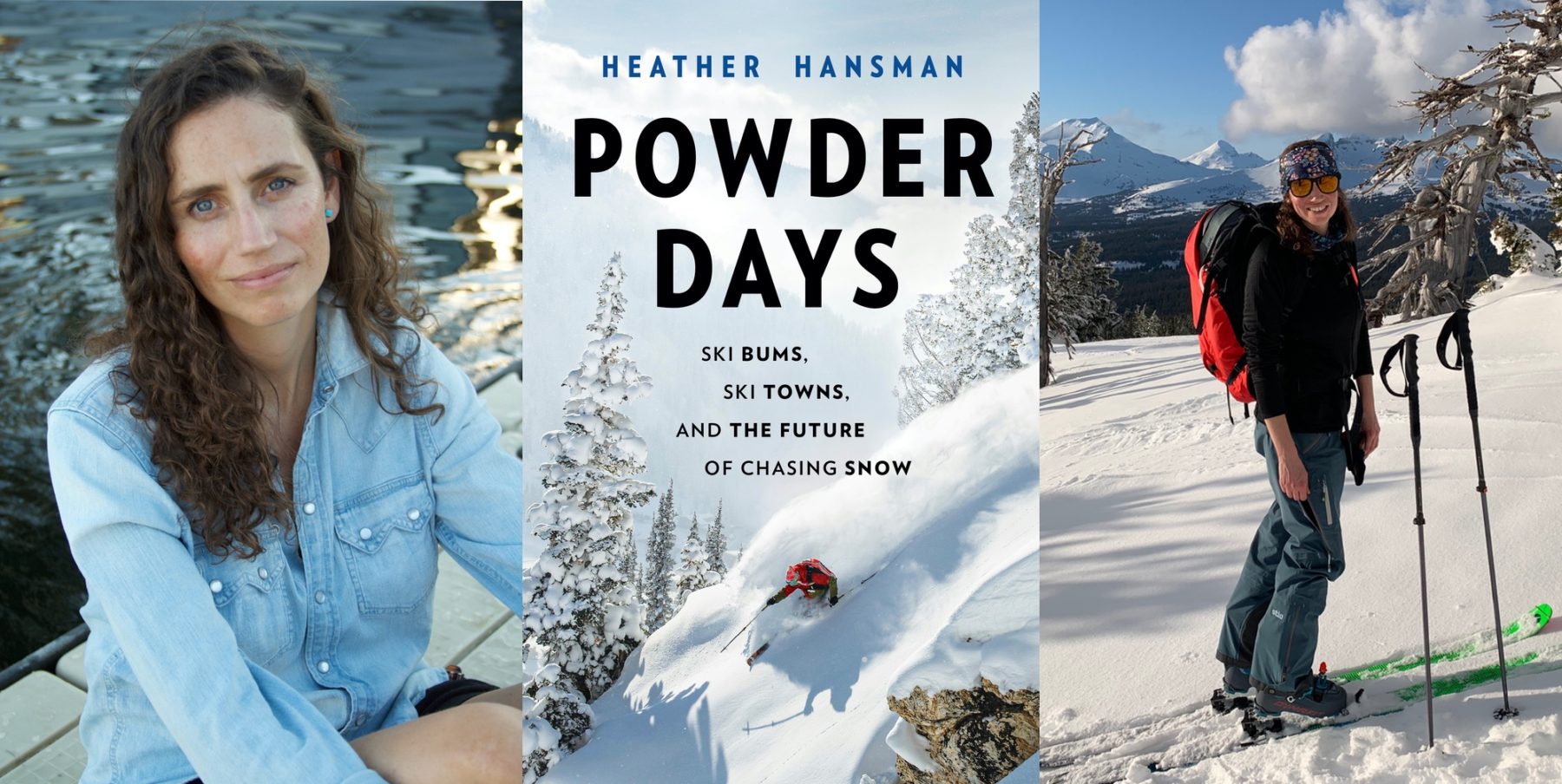
Heather Hansman is a Seattle-based writer and editor, as well as the author of the excellent new book Powder Days: Ski Bums, Ski Towns, and the Future of Chasing Snow. Longtime listeners will remember Heather’s first appearance on the podcast, when we discussed her book Downriver, one of my favorite books about the complicated subject of water in the West. Heather has an uncanny ability to distill complex, sometimes-messy topics into fun-to-read narratives that are equally educational and entertaining. And she’s done it once again with Powder Days— it’s a thoughtful and thorough examination of ski culture, the ski industry, and the myriad of challenges that can accompany life in ski communities.
Heather was born and raised on the east coast, but headed West immediately after college, where she spent many winters living and working in ski towns throughout the Rocky Mountains. She eventually left the ski bum lifestyle behind to pursue a career in journalism but has remained closely connected to skiing and the ski culture for all of her adult life. Given her professional success as a journalist and her personal love of skiing, Heather is uniquely qualified to offer this nuanced, in-depth look at skiing and its impact on the culture, economy, and environment of mountain towns throughout the United States.
Heather and I connected a few days before Powder Days‘ publication date to talk about the book and the many important topics that it addresses. We start out discussing why she chose to write a book about the ski industry, and how the many issues and challenges facing ski communities are representative of broader issues facing the American West. We discuss the history of skiing in the United States and how the industry has grown and transformed over the past 70 years. We discuss income inequality in ski towns, as well as the prevalence of mental health and substance abuse problems that often plague these communities. We discuss the psychological profiles of sensation-seeking skiers, the big business of skiing and ski resorts, equity in outdoor recreation, climate change’s effect on skiing, and much more.
Whether you’re a skier or not, I highly recommend you check out Powder Days. It’s a must-read for anyone interested in understanding the economic and social forces shaping the modern-day American West. And for more information on Heather, you can check out our first episode– there’s a link in the episode notes.
Big thanks to Heather for writing yet another wonderful book, and thanks to all of you for listening. Enjoy!
Photos courtesy of Heather Hansman.
—
Download on Apple Podcasts
—
Download on Spotify
—
Download on Google Podcasts
—
Download on Overcast
—
EPISODE NOTES
Topics Discussed:
- 4:30 – Why Heather chose to write a book about skiing
- 8:00 – “Ski bum” defined
- 12:00 – Heather’s time as a ski bum and when she decided to leave that world
- 15:00 – The psychological profile of obsessed skiers
- 18:00 – The appeal of seeking adventure in the mountains
- 19:40 – History of the ski industry in the US
- 23:00 – Changes in the business of skiing
- 27:00 – Extreme economic inequality in ski towns
- 30:30 – What is the future of economic sustainability in ski towns
- 33:30 -Gini coefficient and more on inequality
- 38:20 – Climate change and the ski industry
- 41:30 – Predicting the future of skiing related to climate
- 43:00 – Feeling that came with revisiting the ski world
- 45:00 – The need for ski bums to engage in the community
- 48:30 – Booze and mental health in mountain communities
- 51:20 – Goals and reasons for writing this book
- 55:00 – Heather’s current projects
- 56:00 – Good books
Information Referenced:
- Heather Hansman
- “Ski Bum”
- Beaver Creek
- Arapahoe Basin
- Five personality traits
- Sensation seeking
- Ryan Burke – Jackson Hole
- Steamboat Springs
- 10th Mountain Division
- Vail Resorts
- Alterra
- Aspen, Colorado
- Gini coefficient
- Auden Schendler episode
- Heather’s Outside column
- Firewatcher’s Daughter
- Firekeeper’s Daughter by Angeline Boulley – Bookshop / Amazon
- Great Circle by Maggie Shipstead – Bookshop / Amazon
Enjoy this episode? Then you might like these too:
- John Branch – Seeking the Extraordinary in the Ordinary
- Luke Smithwick – A Life in High Places
- Hampton Sides, Part 3 – Tales from a Most Excellent Adventure
- Kelsey Johnson – Chasing Her Artistic Ambitions
- Iris Gardner – Living with Intention
- Jessica Wahl Turner – Outdoor Recreation & Rural Economies
- Chris Burkard – The Art of Suffering
- Kate Kavanaugh – Regeneration & Restoration
- Sara Dant – A Deep Dive Into the History of the West
Matt Pierson – Finding New Solutions for Food Insecurity
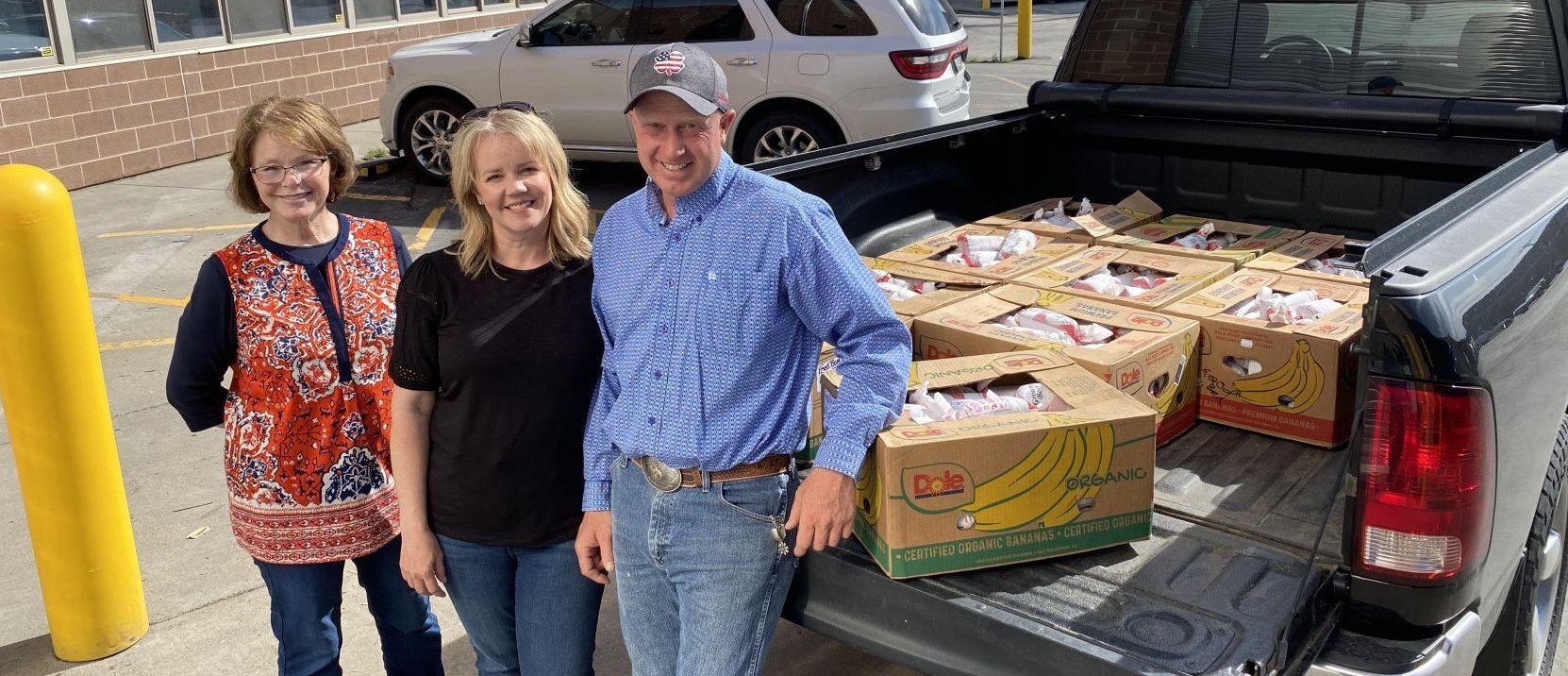
Matt Pierson is a fifth-generation Montana rancher who owns and operates Highland Livestock Company alongside his wife and two sons. He’s also the founder and President of the Producer Partnership, a newly formed non-profit organization that brings together farmers and ranchers with the goal of ending hunger in Montana. Since its start in spring of 2020, the Producer Partnership has given away tens of thousands of pounds of beef to Montana food banks and is creating replicable, scalable solutions for fighting hunger throughout the West and beyond.
The idea for the Producer Partnership was born in early 2020, just as the COVID-19 pandemic was roiling communities and economies across the globe. With many Montana residents out of work and food banks struggling to keep up with the unprecedented demand, Matt decided to donate the meat from a cow he was planning to cull to his local food bank. He quickly recognized the direct positive impact that his donation had on the community, so he reached out to friends to drum up more donations. Within a month, he had directed 10,000 pounds of ground beef to area food banks. He kept going, and by the end of 2020, that number had risen to more than 53,000 pounds of beef. Through creativity, hard work, and an unyielding commitment to G.S.D. (“Getting Stuff Done”), Matt and his team at the Producer Partnership have created a new model for solving food insecurity in Montana.
Matt and I connected virtually for a wide-ranging conversation that will be inspiring and educational for anyone interested in impactful, purpose-driven work. We started out discussing his family’s long history in Montana, and then we moved into details of how the Producer Partnership began. We talked about the challenges around processing meat both during the early stages of the pandemic and now, as well as the cutting-edge meat processing facility that the Producer Partnership is currently building. We discussed the scalability and replicability of the Producer Partnership model, and how he expects the organization to evolve in the coming years. Matt discussed the importance of community; why he chooses to volunteer for causes ranging from youth soccer to Trout Unlimited; the future of agriculture; how he defines success in his ranching operation; and much more.
This is an inspiring episode, and I know you’ll enjoy it. Go to producerpartnership.com to learn more about Matt and his work– and donate or buy some gear if you are so inclined. Enjoy!
Photos courtesy of the Producer Partnership
—
Download on Apple Podcasts
—
Download on Spotify
—
Download on Google Podcasts
—
Download on Overcast
—
This episode is brought to you by The Arthur M. Blank Family Foundation and its Montana-based AMB West Philanthropies, both of which embody the values-based approach to philanthropy and business of their Chairman Arthur M. Blank
EPISODE NOTES
Topics Discussed:
- 3:50 – Matt’s family history in Montana
- 4:50 – The beginnings of the Producer Partnership
- 8:20 – Logistics during the early days of the Producer Partnership
- 10:20 – Media begins to pick up the Producer Partnership story
- 12:00 – “GSD” – Getting Stuff Done
- 14:00 – First year success
- 15:50 – Managing the Producer Partnership and the family ranch
- 18:20 – Executing the idea of building a new processing facility
- 22:00 – Adding value to all steps of the process
- 26:20 – Realities of building a first-of-its-kind federally approved processing facility
- 30:00 – Role for the Producer Partnership post-COVID
- 32:00 – Potential for replicability
- 39:00 – The importance of community
- 43:00 – How Matt judges success in ranching
- 47:45 – How Matt thinks agriculture will evolve in the coming years
- 52:00 – The unexpected surprise of creating a non-profit
- 56:00 – Importance of being a problem solver, thinking independently
- 57:30 – Favorite books
- 1:00:30 – Words of wisdom
- 1:02:30 – Overcoming the labor challenges
Information Referenced:
- The Producer Partnership
- DONATE to the Producer Partnership
- Producer Partnership Merch
- Livingston, Montana
- Yellowstone River Beef Processing
- Livingston Food Resource Center
- Missoula Food Bank
- Montana Food Bank Network
- 501(c)(3)
- Matt Skoglund – Episodes 1 & 2
- John Deer film, featuring Matt
- Lonesome Dove by Larry McMurtry – Bookshop / Amazon
- Lonesome Dove movie
- Everything Your Coach Never Told You Because You’re a Girl by Dan Blank – Bookshop / Amazon
- Arthur M. Blank Family Foundation
- AMB West Philanthropies
Enjoy this episode? Then you might like these too:
- NEW WEST DISPATCH: Matt Skoglund – Ranching in the Age of COVID
- Lesli Allison & Tuda Libby Crews – Durable Conservation in the West… and Beyond
- Daniela Ibarra-Howell – Healing the Land Holistically
- Kate Kavanaugh – Regeneration & Restoration
- Duke Phillips III – A Vision for the New West
- Duke Phillips IV – Living with the Land
- Alexis Bonogofsky – Taking a Stand for the West
- Shane Doyle – Reverence for the Past, Hope for the Future
Ryan Busse – Standing His Ground
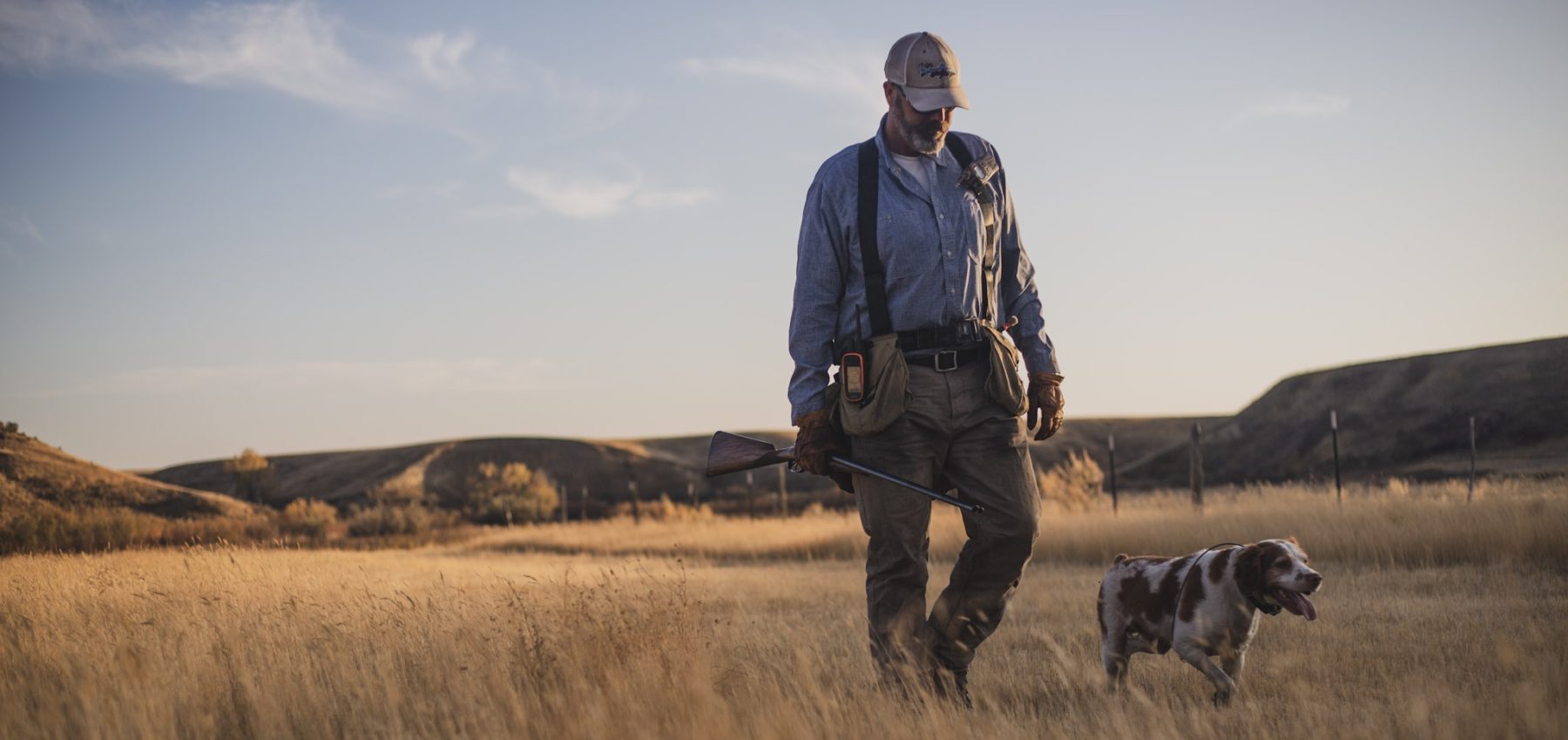
Ryan Busse is a Montana-based conservationist, public lands advocate, and former top-performing firearms executive. He’s also the author of the new book Gunfight: My Battle Against the Industry that Radicalized America, which has received advanced praise from everyone from Publishers Weekly to Senator Jon Tester. Ryan is a life-long hunter and angler, as well as a proud gun owner, and he brings a unique, nuanced perspective to our country’s ongoing debate about guns and the Second Amendment. Gunfight is in no way an “anti-gun” book– rather, it’s an insider’s examination of how and why the firearms industry transformed from a sportsman-centered business into a politically driven machine that uses decisiveness and fear to grow profits exponentially. From a broader perspective, Gunfight helped me to understand how we ended up at this bizarre moment in history– a moment defined by anger, misinformation, tribalism, and binary thinking.
Ryan was born in western Kansas and grew up on his family’s ranch, where most of his childhood was centered around hunting, fishing, and a close connection to the land. After college, Ryan focused his energy on building a career in the sporting goods industry, first working for an optics company and then moving into the firearms business. Ryan found his calling as a gun salesman, and, over the course of his career, he helped transform a small firearms company named Kimber into an internationally recognized brand. But as you’ll hear in our conversation, Ryan’s advocacy for public lands and conservation created a rift between him and the firearms industry– a rift that eventually exposed the industry’s authoritarian power structure that does not tolerate independent thinking or deviations from industry dogma. Ryan refused to be bullied or told what to think, and he eventually quit his lucrative job selling guns and decided to tell his story and that of the industry’s transformation. The result is his book Gunfight, which we are discussing here today.
I was lucky enough to receive an advanced copy of Gunfight, and I was thrilled to have a chance to discuss it with Ryan. We started out talking about his upbringing on his family’s Kansas ranch and how his father introduced him to the writings of conservation luminaries, including Aldo Leopold and Theodore Roosevelt. We then discussed his life-long love of hunting and guns, and why he chose to pursue a career in the gun industry. We discussed the exact moment when he realized that his personal devotion to public lands was at odds with his industry’s stance and the unraveling that occurred over the course of the following years. We talk about why gun sales soar during Democratic administrations, the industry’s shift from hunting rifles to assault rifles, some very disturbing stories from industry events, Ryan’s public land advocacy, the positive influence of his wife, and much more.
I thoroughly enjoyed this conversation, and I learned a lot. I really appreciate Ryan taking the time to chat, and I hope you find it enlightening. Be sure to check out the episode notes for a complete list of topics and links to everything we discussed. Enjoy!
Photos courtesy of Ryan Busse
—
Download on Apple Podcasts
—
Download on Spotify
—
Download on Google Podcasts
—
Download on Overcast
—
EPISODE NOTES
Topics Discussed:
- 5:00 – Ryan’s background
- 8:30 – Ryan discusses his father and his impact on Ryan’s conservation ethic
- 12:45 – Ryan talks about what he was like in high school
- 15:00 – Ryan discusses when he felt like his role in the firearms/optics industry was a good career path for him
- 17:00 – Ryan tells the story of the experience that made him second guess his career
- 22:00 – Following his falling out with the leaders in firearms industry, Ryan explained why he stayed in the industry
- 26:00 – Ryan describes an uncomfortable moment when he went to an NRA conference
- 32:30 – Ryan describes a moment where a journalist showed up to an interview armed with an AR-15
- 37:30 – Ryan discusses the phenomenon that gun ownership/purchases sky rocket during Democratic presidential administrations
- 41:30 – Ryan explores why gun enthusiasts or industry personnel may disagree with him
- 45:30 – Ryan talks about his wife
- 48:00 – Ryan talks about Backcountry Hunters and Anglers and his role with them
- 1:02:30 – Ryan’s book recommendations
- 1:05:00 – Ryan’s parting words of wisdom
Information Referenced:
- Ryan Busse
- Burlington, CO
- Burris Optics
- Kimber
- The Conservation Reserve Program
- Smith & Wesson
- Adam Grant
- Badger Two-Medicine area
- Cheney Energy Plan
- Trout Unlimited
- Roan Plateau
- National Riffle Association
- National Shooting Sports Foundation
- AR-15
- Assault Weapons Ban of 1994
- Q-Anon
- Sam Harris
- Backcountry Hunters and Anglers
- National Audubon Society
- Martin Heinrich
- Timothy Egan
- Patrick Radden Keefe
Enjoy this episode? Then you might like these too:
- Hal Herring – A Man of Words & Wild Places
- Adam Gall – A Reverence for Wildlife & Wild Places
- Rachel VandeVoort – Harnessing the Power of Outdoor Recreation
- Mark Kenyon – A Passion for Public Lands
- Antonia Malchik – Exploring Culture & Complexity
- Gabe Vasquez – Advocate for Equity in the Outdoors
- Dan Prenzlow – Generous Service, Humble Leadership
- Alexis Bonogofsky – Taking a Stand for the West
- Adam Foss – Lessons Learned From a Life Afield
Lesli Allison & Tuda Libby Crews – Durable Conservation in the West… and Beyond
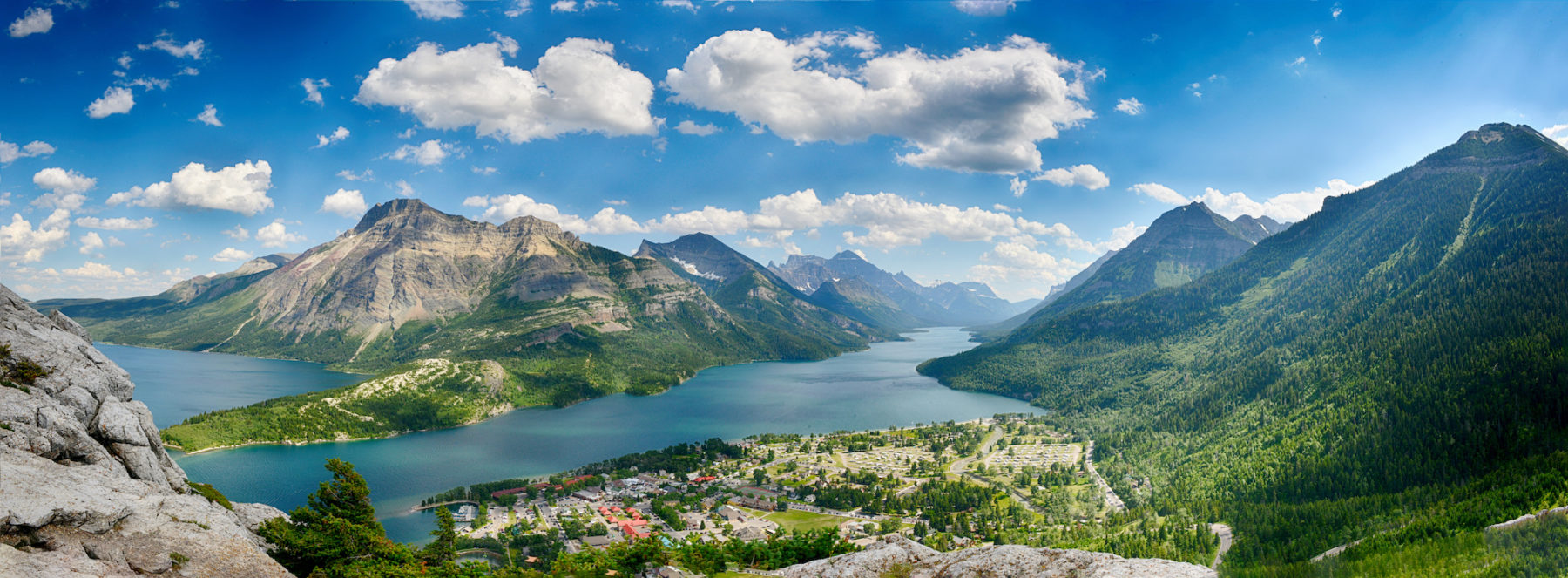
Lesli Allison and Tuda Libby Crews join me to discuss the critical role of private and working lands in achieving durable conservation outcomes in the United States. Lesli is a founding member and the Executive Director of the Western Landowners Alliance, a nonprofit organization that advances policies and practices that sustain working lands, connected landscapes, and native species. Tuda is a rancher and owner of Ute Creek Cattle Company, a conservation-focused ranching operation in northeastern New Mexico that has been in Tuda’s family for more than 200 years. Whether discussing on-the-ground stewardship practices or the intricacies of federal conservation policy, Lesli and Tuda are uniquely qualified to offer informed and thoughtful perspectives on all aspects of private land in the West.
While ranchers, farmers, and conservation stakeholders have long understood the critical importance of private land stewardship and conservation, the Biden administration’s 30×30 conservation goal has brought the topic to the forefront of American politics and mainstream media. 30×30 has prompted challenging conversations about what it means to conserve land, and it has sparked healthy debates about the government’s role in private land stewardship. 30×30 is a bold initiative and its implications for private landowners, particularly agricultural producers, are enormously complex– we’ll never find sufficient answers in pithy Tweets or surface-level news stories. So, I was excited to have Lesli and Tuda join me for an in-depth, hour-long conversation about 30×30 and private lands’ role in large-scale conservation.
Lesli, Tuda, and I connected via Zoom and enjoyed a wide-ranging conversation, covering everything from Tuda’s family history in New Mexico to the intricacies and realities of the 30×30 initiative. We started out discussing the vital role private lands play in conservation and environmental health here in the United States. Tuda talks about her family’s process of restoring her family’s ranch in New Mexico and the many environmental benefits that they have experienced. We obviously dig into 30×30, discussing its pros and cons and its opportunities and challenges. We talk about the importance of garnering local support for all land-related initiatives, and they each discuss their thoughts on the odds of success for an initiative as ambitious as 30×30. And as usual, they each offer up some excellent book recommendations that I think you’ll enjoy.
Please check out the episode notes for a full list of topics we discuss and links to all of the information we reference. Enjoy!
Photos courtesy of the Salazar Center, Lesli Allison, and Tuda Libby Crews.
—
Download on Apple Podcasts
—
Download on Spotify
—
Download on Google Podcasts
—
Download on Overcast
—
This episode is brought to you in partnership with Colorado State University’s Salazar Center for North American Conservation.
On Sept. 28-29, 2021 the Salazar Center will host its third annual International Symposium on Conservation Impact. The virtual event will serve as the first major public convening focused on next steps for the Biden administration’s America the Beautiful initiative, with Secretary of Agriculture Tom Vilsack, Secretary of Interior Deb Haaland, and White House Council on Environmental Quality Chair Brenda Mallory joining on the second day.
The two-day event will also feature researchers, practitioners, and political leaders from Canada, Mexico, and Indigenous territories, who—along with their U.S. counterparts—will explore the state of progress toward large landscape conservation goals throughout North America, and highlight lessons learned from other national-level efforts, such as Canada’s Pathway to Target One. In this context, the symposium will address critical themes such as transboundary partnerships, Indigenous leadership, and climate impacts, with former Vice President Al Gore providing remarks on the urgency of efforts to mitigate climate change.
Please follow the link in the episode notes to learn more, or go directly to salazarcenter.colostate.edu. Thank you.
—
EPISODE NOTES
Topics Discussed:
- 4:40 – Lesli’s introduction
- 6:25 – Tuda’s introduction
- 9:55 – Lesli discusses private lands’ role in conservation
- 13:25 – Tuda describes her ranch and her family’s conservation work there
- 19:40 – Lesli talks about performing private land conservation work at scale
- 24:40 – Tuda describes her process of arriving at creative land stewardship solutions
- 28:55 – Lesli and Tuda discuss 30 by 30
- 39:40 – Lesli discusses means of protecting agricultural property from subdivision
- 44:10 – Nodding towards public land conservation efforts, Leslie and Tuda discuss was to garner public support for private land stewardship efforts
- 51:40 – Lesli and Tuda talk about how they see our odds for success in these efforts
- 55:40 – Book recommendations
- 59:40 – Lesli mentions what WLA is doing from a media perspective
Information Referenced:
- Salazar Center
- Western Landowners Alliance
- Ute Creek Cattle Company
- Saltcedar (tamarisk)
- 30 by 30
- Nikki Silvestri
- Chaffee County
- Scott Momaday
- Aldo Leopold
- David Epstein
- John Steinbeck
- Timothy Egan
- Norman MacLean
- Dan Dagget
- Tracy Kidder
- Khaled Hosseini
Enjoy this episode? Then you might like these too:
- Dr. David Hewitt – The Science of Wildlife Conservation
- Carlos Fernandez – The Power of Partnerships
- Daniela Ibarra-Howell – Healing the Land Holistically
- NEW WEST DISPATCH – Marci McLean & Cora Neumann on COVID’s Impact on Native Communities
- NEW WEST DISPATCH: Matt Skoglund – Ranching in the Age of COVID
- Duke Phillips III – A Vision for the New West
- Duke Phillips IV – Living with the Land
- Russ Schnitzer – A Life Devoted to Western Landscapes
Hampton Sides, Part 3 – Tales from a Most Excellent Adventure
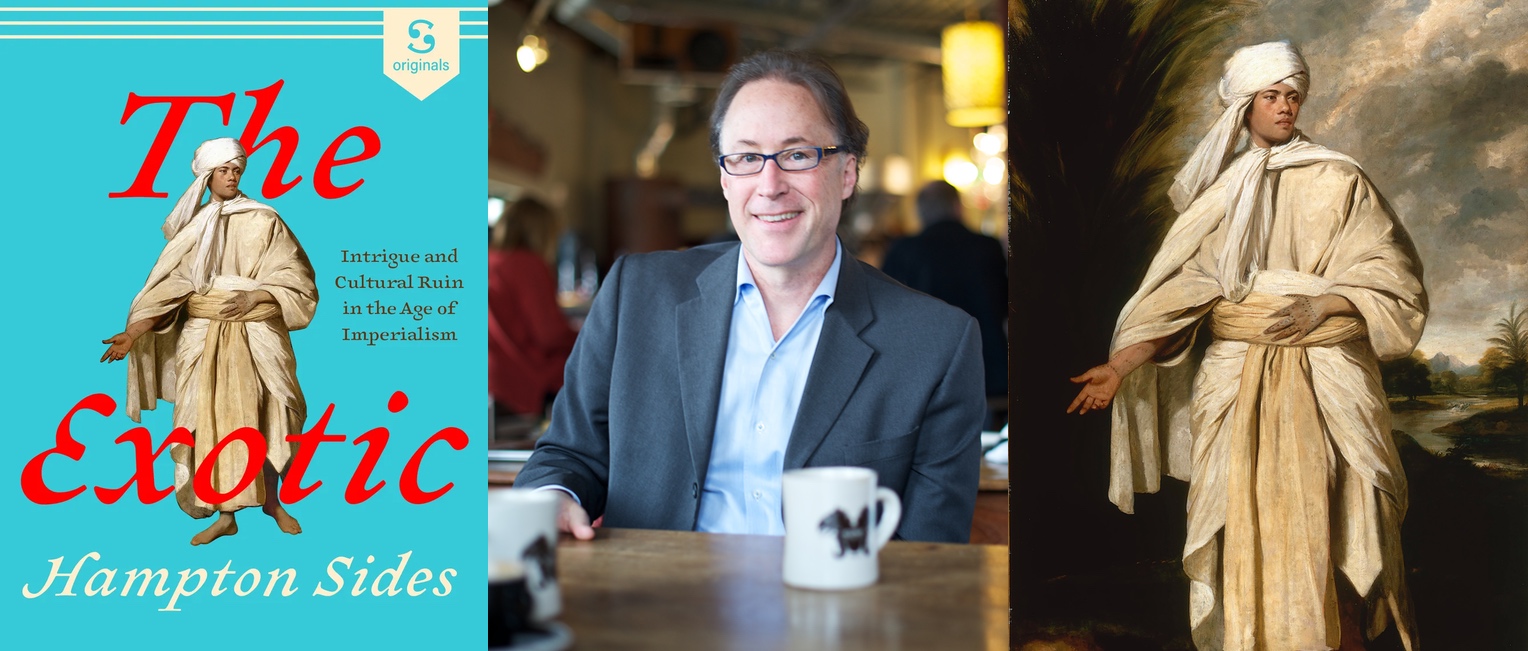
Hampton Sides is a historian and New York Times bestselling author who is best known for his engaging works of narrative nonfiction, including the books Blood and Thunder, Ghost Soldiers, On Desperate Ground, and more. His latest project is an ebook and audiobook titled The Exotic: Intrigue and Cultural Ruin in the Age of Imperialism, which details the life and unbelievable adventures of a man named Mai, who was the first Polynesian to set foot on British soil. The Exotic is much shorter than Hampton’s previous books but much longer than a magazine article, giving the reader a chance to enjoy Hampton’s one-of-a-kind historical storytelling in only a few hours of reading.
Longtime listeners of Mountain & Prairie will remember Hampton’s two previous appearances on the podcast. The first was an in-depth discussion of his book Blood and Thunder and the history of the American West, which was recorded live and on stage at the Aspen Institute. In his second appearance, we focused on his writing and research process, and his career progression from journalist at Outside magazine to becoming a best-selling historian. Today’s conversation takes us far beyond the American West, everywhere from remote islands in the South Pacific to King George’s court in England. So if you’re a fan of adventure, history, and profiles of Indigenous people who have often been overlooked by mainstream history, you’ll love this book.
Hampton and I connected virtually and had a fun conversation about the book and his process for writing it. We talked a lot about Mai’s unbelievable journey from Polynesia to England and back again, as well as the opportunities and challenges of exploring history from an Indigenous perspective. We talked about Hampton’s process for researching the book and how COVID has forced him to adjust his usual approach. Hampton was actually in the South Pacific researching the book in March 2020 when the pandemic hit, which, as you’ll hear, added an extra layer of adventure to an already adventurous trip. And as usual, Hampton offers up some great book recommendations that I think you’ll enjoy.
The Exotic is available exclusively on Scribd, which is an online service that gives you instant access to ebooks, audiobooks, articles, podcasts, and more. I’ve thoroughly enjoyed Scribd over the past few weeks, and I’d encourage you to give it a shot. You can access it for free for 30 days by following this link. And I’m not being paid for this endorsement– I’m just a fan of what Scribd is doing and the unique forms of writing that they are bringing to the world.
I hope you enjoy this episode, and I hope you’ll invest a few hours reading The Exotic. And if you haven’t already, go back and listen to my past episodes with Hampton– they are fun and educational conversations. Thanks so much.
Hampton’s headshot by Sergio Salvador.
—
Download on Apple Podcasts
—
Download on Spotify
—
Download on Google Podcasts
—
Download on Overcast
—
EPISODE NOTES
Topics Discussed:
- 4:00 – How Mai got Hampton’s attention
- 11:45 – Hampton discusses who Mai was
- 22:00 – Hampton walks us through what Mai did while he was in England
- 31:30 – Hampton explains what happens when Mai returns home
- 36:30 – Hampton describes doing his research while COVID-19 took off and discusses how the pandemic affected his writing
- 43:30 – Hampton talks about Captain Cook
- 51:15 – Hampton’s book recommendations
Information Referenced:
- Hampton Sides
- Hampton’s first and second M&P episodes
- 30-day free trial of Scribd
- Context about Mai
- Captain James Cook
- Scribd
- Sir Joshua Reynolds
- John Magnier
- Tahiti
- Raiatea
- Bora Bora
- Captain Samuel Wallace
- Motavai Bay
- Tobias Furneaux
- Jean-Jaques Rousseau
- Sir Joseph Banks
- The Kew Gardens
- King George III
- Dr. Thomas Dimsdale
- Samuel Johnson
- James Boswell
- Hyde Park
- Captain William Bligh
- Louis Antoine de Bougainville
- Bougainvillea
Enjoy this episode? Then you might like these too:
- Hampton Sides – Live at the Aspen Institute
- Hampton Sides, Part 2 – How to Tell a Damn Good Story
- Peter Heller – Chasing the Flow
- William deBuys – Sage of the Southwest
- Heather Hansman – Demystifying Water in the West
- Chris Dombrowski – Words, Water & the West
- Sara Dant – A Deep Dive Into the History of the West
- Hal Herring – A Man of Words & Wild Places
- Nickolas Butler – The Craft of Creativity
Luke Smithwick – A Life in High Places
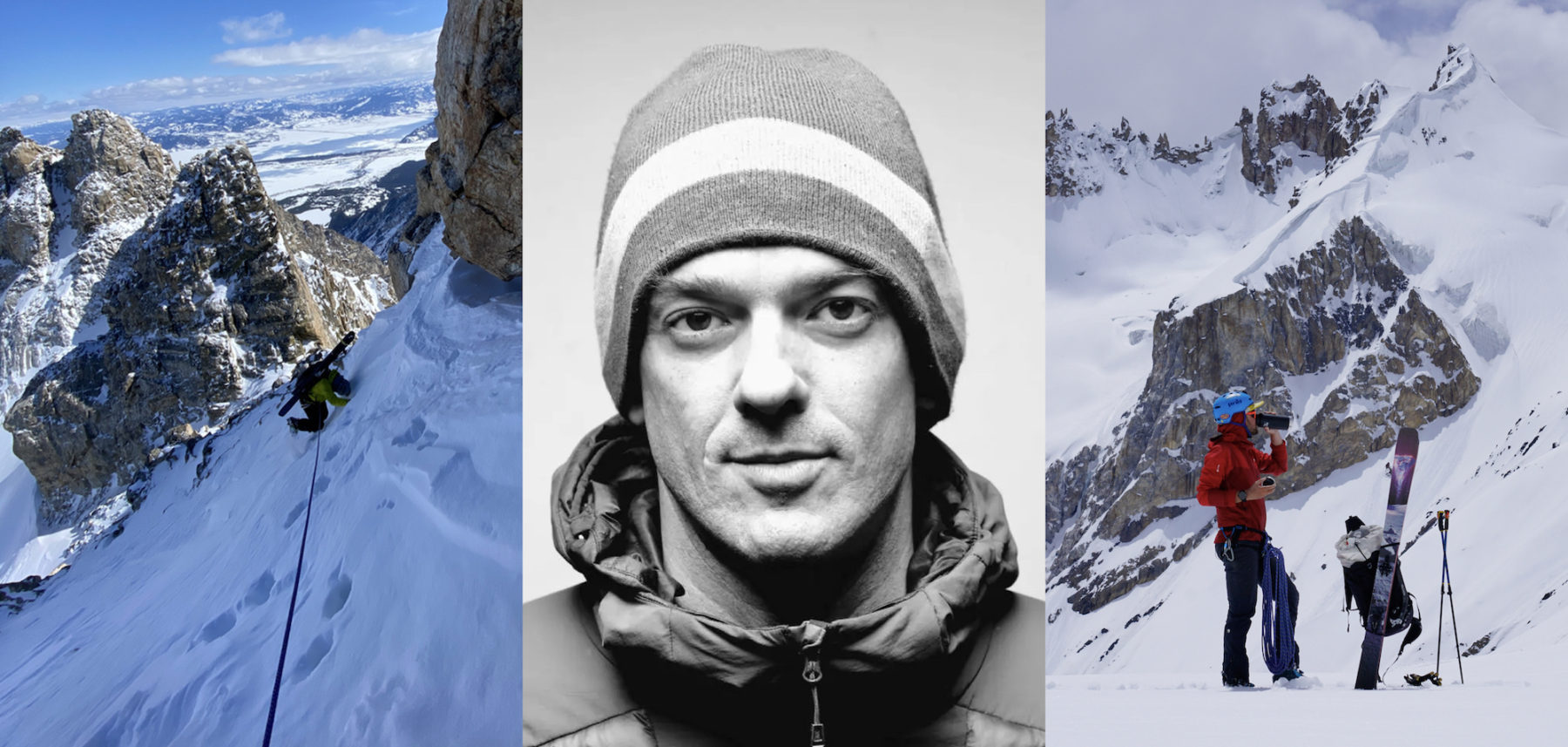
Luke Smithwick is a professional alpinist, ski mountaineer, and mountain guide best known for his cutting-edge climbs and descents in the world’s wildest mountain ranges. Luke is based in Victor, Idaho, in the shadow of the legendary Teton Range, but he spends large portions of each year deep in the Himalayas, guiding clients on remote peaks or pursuing personal climbing and skiing objectives on 7-8,000-meter peaks. He is currently hard at work on a multi-year skiing project called The Himalaya 500, which is his personal quest to ski 500 aesthetic ski lines throughout the greater Himalayan Range.
Luke was born and raised in North Carolina, and he moved to Colorado for college, where he attended CU Boulder and studied environmental biology and cultural anthropology. When not in class, Luke immersed himself in outdoor sports and soon began working as a guide– first a river guide on Colorado’s Upper Arkansas River and then a climbing guide. After graduation, Luke completely committed himself to the mountains, and his adventures have since taken him everywhere from the Alaska Range to his current work in the Himalayas. His company, Himalaya Alpine Guides, focuses on trips to some of the lesser-known (and less crowded) peaks in the Himalayan Range, where his clients can enjoy completely unique climbing and cultural experiences that cannot be found on more mainstream, well-known mountains.
Luke and I went to high school together back in the mid-1990s, and I was a couple of grades ahead of him. After graduation, we lost touch but have reconnected during the past few years thanks to shared interests and common friends. I was so happy that he joined me on the podcast, because I had lots of questions about how a guy from small-town North Carolina has become one of the world’s most accomplished Himalayan skiers. We had a wonderful conversation, discussing everything from his career trajectory to this season’s climbing objectives. We talked about how he picks ski lines, how climate change is affecting the Himalayas, the unique nature of his guiding company, how he trains, why he has made his home in the American West, and his deep respect for the people, history, and cultures of the Himalayas.
I loved catching up with my old friend Luke. I was blown away by all he has accomplished in the past 20 years, and I have the utmost respect for his understated, humble approach to life, learning, and adventure. Be sure to check the episode notes for links to everything we discussed. Enjoy!
Photos courtesy of Luke Smithwick.
—
Download on Apple Podcasts
—
Download on Spotify
—
Download on Google Podcasts
—
Download on Overcast
—
EPISODE NOTES
Topics Discussed:
- 4:00 – Luke walks us through his trajectory post high school and how he became a professional outdoor guide
- 7:30 – Luke talks about his work and his guide company in the Himalayas
- 9:45 – Luke explains why he focuses on a deep understanding of mountain ranges instead of just the principle summits of a range
- 13:15 – Luke discusses how he finds his clientele
- 15:30 – Luke explains the importance of local relationships for his business
- 17:45 – Luke discusses his project, the Himalaya 500
- 21:15 – Luke explains how he picks his ski lines
- 23:00 – Luke talks about the information age and its impact on the availability of “secret spots”
- 25:00 – Luke talks about the people he has met in his travels around the Himalaya
- 27:45 – Luke talks about how current action in Afghanistan may affect his work
- 28:45 – Luke discusses the impacts of climate change that he sees in his work
- 32:00 – Luke explains how he trains for his work and play in the mountains in order to make it a sustainable lifestyle
- 36:00 – Luke talks about his current 8,000 meter peak goal
- 39:00 – Luke discusses how he balances humility and the need for self-promotion in his field
- 44:45 – Luke talks about training for alpine trips in his forties
- 48:00 – Luke talks about his family
- 49:15 – Luke discusses his hometown and the significance of Boy Scouts in his upbringing
- 51:30 – Luke’s book recommendations
- 53:30 – Luke’s film recommendations
- 54:30 – Luke talks about the most powerful experience in his life
- 56:45 – Luke’s parting words of wisdom
Information Referenced:
- Luke Smithwick
- Arkansas River Valley
- Colorado Outward Bound School
- Woodberry Forest School
- Berthoud Pass
- Rollins Pass
- Denali
- Anchorage, AK
- Aconcagua
- Tibet
- Manali, India
- Sherpa
- Nepal
- Khumbu Region of Nepal
- K2
- Karakoram
- Pakistan
- Bhutan
- Tamotsu Nakamura
- Islamabad
- GLOFs (glacial lake outburst floods)
- Indo-Gangetic
- Hunza, Pakistan
- Dhaulagiri
- Kashmir
- Victor, ID
- Laurinburg, NC
- Tarboro, NC
- Kathmandu
- McNair Evans
- Camp Sea Gull
- Herman Hesse
- Barry Lopez
- Roadhouse
Enjoy this episode? Then you might like these too:
- Mitsu Iwasaki – Adventure, Advocacy, & Alpinism
- Mike Foote – Perfection Is In the Process
- Steve Casimiro – Voice of Adventure
- Rachel VandeVoort – Harnessing the Power of Outdoor Recreation
- Kyle Richardson – Mountains & Music
- Live in Bozeman – Cate Havstad, Jillian Lukiwski, Becca Skinner & Juanita Vero
- Jessica Lewis – Doing More With Less
Shane Doyle – Reverence for the Past, Hope for the Future
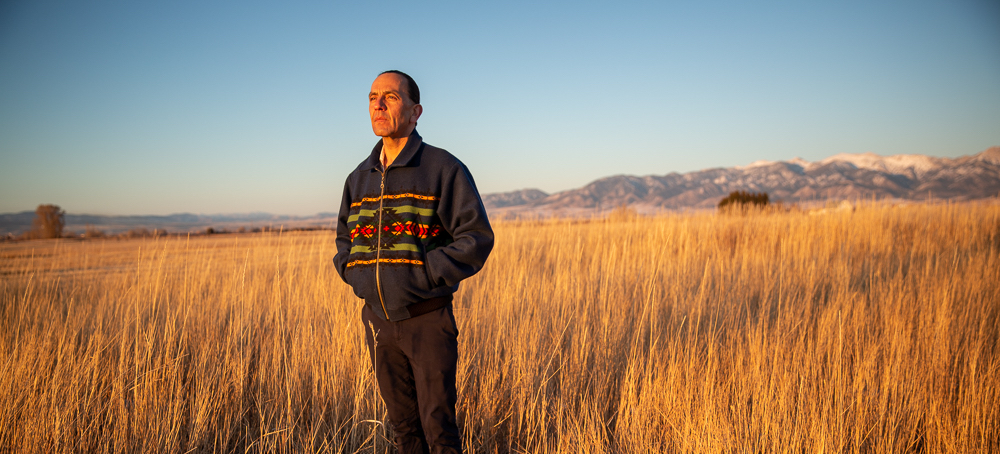
Shane Doyle is a Montana-based scholar, teacher, and community advocate whose work focuses on the history and heritage of Native American tribes of the Northern Great Plains. Shane is an enrolled member of the Apsáalooke Nation (also known as the Crow Tribe), and he holds a doctorate in Curriculum and Instruction from Montana State University. His unique personal and professional experiences, combined with his deep curiosity and seemingly endless energy, have made Shane a well-known leader in many fields, including education, land use advocacy, and the arts.
Shane grew up in Crow Agency, Montana, and he did not have an interest in history until college, when a road trip with a professor opened his eyes to Montana’s rich Native American past. From that moment onward, Shane’s curiosity has continued to grow, and he has built his career around making Native American history a cultural mainstay in everything from Montana’s educational system to governmental land management decisions. Whether designing educational curriculums, making films, or singing Northern Plains tribal music, Shane is always focused on serving his community.
Whether you’re a long-time listener or this is your first episode, I know you’ll enjoy getting to know Shane. We started out discussing his youth on the Crow reservation, and he talks about that fateful road trip when he fell in love with history. We talk about his family and the important life lessons that he learned from his grandmother. We discuss the history of the Apsáalooke, and the importance of the Crazy Mountains from a cultural and historical perspective. We also discuss his consulting business Native Nexus, some of his film projects, and his plans for the future. And Shane obviously has plenty of excellent book recommendations, so be sure to check out the episode notes for links to all of those.
As you’ll hear in this conversation, Shane is doing so much excellent work and has many more projects in the pipeline. I’ll look forward to a part 2 with Shane in the future so we can hear updates on everything that he’s working on. Hope you enjoy!
Photos courtesy of Shane Doyle.
—
Download on Apple Podcasts
—
Download on Spotify
—
Download on Google Podcasts
—
Download on Overcast
—
This episode is brought to you by The Arthur M. Blank Family Foundation and its Montana-based AMB West Philanthropies, both of which embody the values-based approach to philanthropy and business of their Chairman Arthur M. Blank
EPISODE NOTES
Topics Discussed:
- 3:15 – Shane’s childhood and how he pursued Indigenous history in his youth
- 7:45 – Shane describes how he engaged in studying the Indigenous history of Montana
- 10:30 – Shane discusses Asaalooke Nation history
- 14:30 – Shane discusses his thoughts regarding a history of broken treaties
- 18:15 – Shane talks about the service element of his work
- 21:00 – Shane discusses the significance of the Crazy Mountain Range, including his own experience fasting in that mountain range
- 27:15 – Shane explains regularity of his meditation ceremonies
- 30:15 – Shane mentions some resources for people interested in Northern Plains Indigenous culture
- 34:00 – Shane discusses the book he is writing, Messages from Medicine Wheel Country
- 38:00 – Shane talks about his film regarding the Crazy Mountains
- 41:45 – Shane explains how folks can get involved in the protection of the Crazy Mountains
- 43:30 – Shane discusses his business, Native Nexus
- 47:15 – Shane talks about where he thinks his career is going next
- 51:45 – Shane’s book recommendations
- 55:45 – Shane’s film recommendations, as well as some films he feels less enthusiastic about
- 1:01:30 – Shane’s parting words of wisdom
Information Referenced:
- Arthur M. Blank Family Foundation
- AMB West Philanthropies
- Apsáalooke Nation (Crow Tribe)
- Film: Awaxaawippíia: The Crow Nation’s Sacred Ties
- Crazy Mountains
- Native Nexus
- Crow Agency, MT
- Little Bighorn River
- Battle of Little Bighorn
- Flathead Lake
- Blackfeet Nation
- Cheyenne Nation
- Lakota Nation
- Confederated Salish and Kootenai Tribes of the Flathead Reservation
- Bighorn Range
- Musselshell, MT
- Black Hills
- Three Forks Headwaters of the Missouri River
- Fort Laramie
- Virginia City
- Plenty Coups
- John G. Neihardt
- Joseph Medicine Crow
- Alma Hogan Snell
- Sun Dance
- Sweat Lodge
- Frederick E. Hoxie
- Elliot West
- Fred W. Voget
- Little Big Man
- The Outlaw Josey Wales
- Reservation Dogs
- The Revenant
- Killers of the Flower Moon
- Osage Nation
- James Welch
- Frederick Voget Lefthand
- Nathaniel Philbrick
Enjoy this episode? Then you might like these too:
- Marci McLean & Cora Neumann on COVID’s Impact on Native Communities
- Chris Douglas – An Unexpected Artistic Journey
- Juanita Vero, Part 2 – A Deep Desire to Serve
- Becky Edwards – Amplifying the Power of Women in the West
- Rachel VandeVoort – Harnessing the Power of Outdoor Recreation
- Hal Herring – A Man of Words & Wild Places
- Antonia Malchik – Exploring Culture & Complexity
- Len Necefer – Indigenous Advocate
- Callan Wink – A New Voice for the New West
